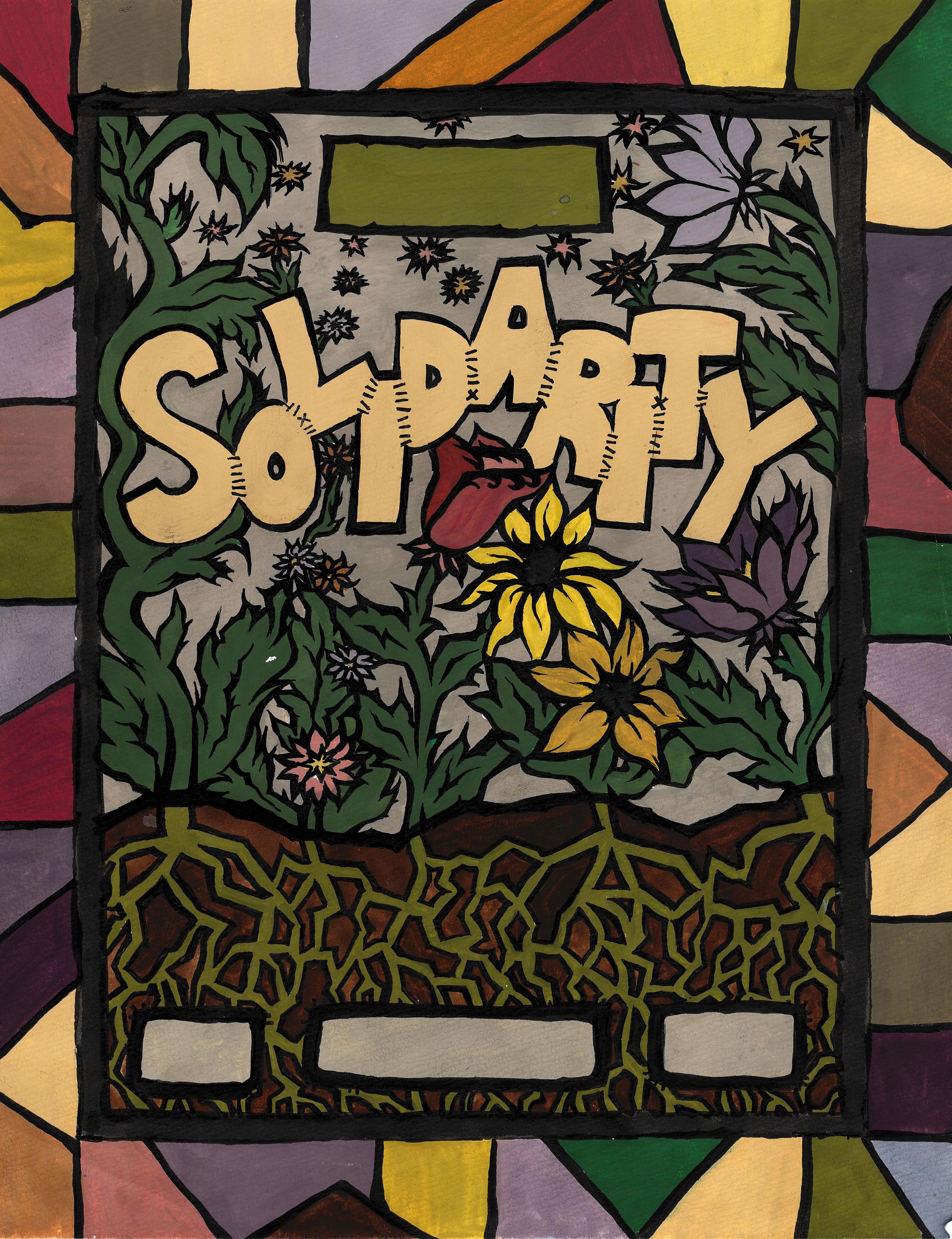
Tribune Published by the SPT, a student society of McGill University Vol 43, Issue 25 thetribune.ca @thetribuneca
The
Table of Contents
• 3-5 : News
• 5 : Open Letter
• 7-9 : Opinion
• 10-11 : Photo Spread
• 12-13 : Feature
• 14 : Design Spread
• 15-17 : Student Life
• 18-19 : Arts & Entertainment
• 20-21 : Science & Technology
• 22-23 : Sports
• 24 : Highlights
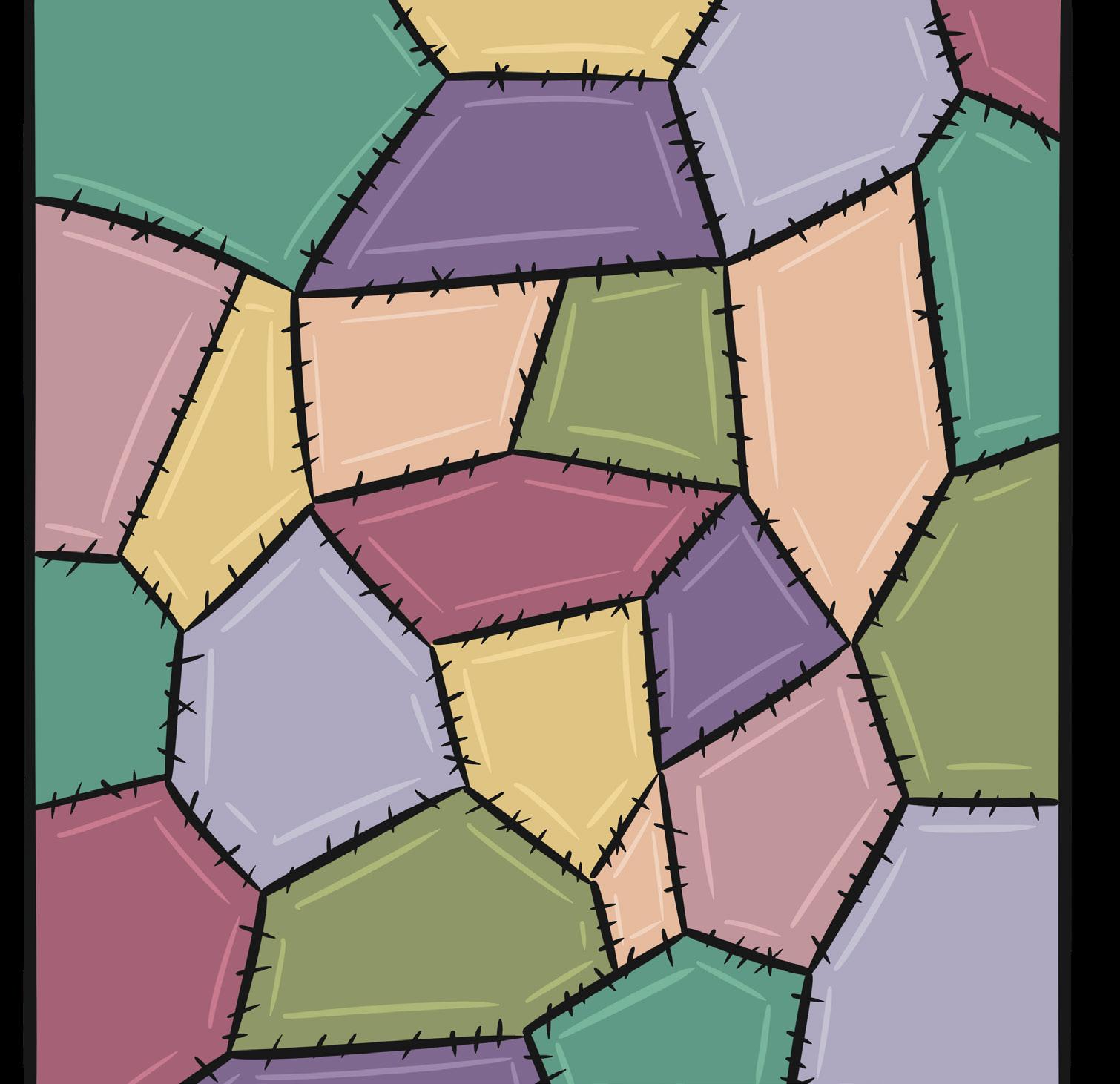
TThank You
he Tribune is proud to present its final issue with the special theme of solidarity. We begin by publishing our anti-oppressive mandate. This document builds from years of work and dialogue. Though it appears for the first time in this issue, it is a collaborative and intergenerational effort that cuts across editorial boards.
While this year comes to an end, we ask you in these pages to reconsider solidarity. Solidarity as an extension of love, protest, and liberation. Solidarity in and against differences and institutions. Solidarity with ancestors and inheritors. What does solidarity mean during the genocides, settler colonialism, and imperialism that mark the present? How might you practice the care and regard required of acting in solidarity with another? We hope that these invitations and questions offer reflection in your own thinking on the theme.
Many thanks are in order. Thanks to you, the reader. Whether this is your first time picking up a copy or you are a regular, we appreciate your engagement with the paper. Thank you to our contributors, writers, and creatives for coming to our meetings, picking up pitches, and participating in our community. Thank you to our Board of Directors for all the administrative work that keeps our paper afloat. Thank you to our editors for the leadership, dedication, and teamwork that defines our mission. We are grateful.
25 issues in this academic year. Onwards and upwards, with anti-oppression and solidarity as our guides forward.
Anti-Oppressive Mandate
The Tribune is an independent, student-run newspaper that covers stories of interest and impact to the McGill community. McGill has no journalism program, and we strive to make The Tribune a place of learning for all journalists, whether reporters, commentators, illustrators, photojournalists, or sports analysts. As both journalists and community members ourselves, we are immersed in and affected by the events we cover, and we are committed to working closely with activists, organizers, and studen ts to call for change. We acknowledge that every article we produce is published on the unceded land of the Kanien’kehá:ka, and that the violent histories of settler-colonial institutions like McGill University must inform both the writing of this mandate and ever y action we take at The Tribune.
This mandate is written in the midst of a transitional period for The Tribune. We write this document to reaffirm our commitmen t to liberation and anti-oppression after the publication of our Statement of Changes in 2020 and our name change in 2023. Black, Indigenous, and Palestinian students and students of colour on campus have repeatedly shown us the limits of our traditional reporting, and their longstanding contributions to our paper have guided us here.
We cannot risk taking the progress we have made for granted. We will not simply mirror the mainstream media. We must anchor ourselves in the unique culture of dissent and protest that flourishes on university campuses. We reaffirm our commitment to re cognizing what stories we have not told, encouraging young journalists to carry forward the project of anti-oppression and ultimately wor king toward a better future.
Oppression is the exercise of power to silence, exclude, and disenfranchise individuals outside of that power. Oppression is bu ilt into, and continuously reproduced, within institutions, including our government, our university, and our paper itself. We see our commitment to anti-oppression as a commitment to actively challenging oppression in all of its forms while building more sustainable, equitable, and accessible spaces for students—to centre anti-oppression in our coverage, our editorials, our hiring, and our wo rkplace practices.
We write in the midst of a climate crisis, ongoing genocides, rising white supremacy, fascism, imperialism, unjust policing and surveillance, and the ripple effects of the COVID-19 pandemic. As a newspaper, we must call out and expose the many ways that oppression influences these crises, with the hope that unity, awareness, and action can help achieve a more just future. To this end, we have covered and will continue to energetically cover labour organizing, Indigenous struggles against settler colonialism, femi nisms, 2SLGBTQIA+ activism, and the environmental movement, among many, many others.
We see this mandate as a starting point and site of accountability, as a document we will return to time and time again, and as a challenge to ourselves to continuously grow and improve. To begin, The Tribune will enact policies to make space for Black, Ind igenous, racialized, 2SLGBTQIA+, and disabled writers and creatives, to ground ourselves in community struggles, and to empower students to create change on our campus. Throughout our reporting, we will centre care, listen to community members, and build relationship s with local activists. Curiosity, energy, and compassion will drive this mandate’s vision, and we are excited to continue workin g toward change, within the university and beyond.
2 TABLE OF CONTENTS | TUESDAY, APRIL 9 2024
Arts professors and faculty lecturers form McGill’s third and largest faculty union
McGill community braves blizzard to celebrate the union of 378 members at launch rally
Ghazal Azizi Contributor
With over 9,000 students and more than 300 staff members, the Faculty of Arts is the largest on campus. Despite its size, the Association of McGill Professors of the Faculty of Arts (AMPFA) surpassed the number of signed union cards necessary to file for certification at the Tribunal Administratif du Travail (TAT) within three months of active organizing. On April 4, a day after AMPFA submitted its application to the TAT, the McGill community gathered by the snowy stairs of the Arts Building to celebrate the launch of the union, which, if certified, will represent all tenure-stream professors and faculty lecturers.
AMPFA emerges on the heels of other faculty unions forming at McGill.
The Association of McGill Professors of Law (AMPL) won its battle for certification against the university in 2022 and the Association of McGill Professors of Education (AMPE) is currently fighting for certification at the TAT. Barry Eidlin, an associate professor in the Department of Sociology, attributes the current wave of faculty unionization at McGill to a broader labour movement against corporatization and precarious academic employment across North American universities.
“There’s been [a] sort of corporatization of higher education, where the administration has [...] cut itself off from the faculty, so this idea of [...] collegiality and
faculty governance has been eroded,” Eidlin said in an interview with The Tribune. “The shift in the university has been towards more casualized forms of academic labour, so more reliance on teaching assistants, on contingent [...] course lectures and faculty lectures,[...] and that’s what’s been [...] driving a lot of this push towards unionization [....] People are realizing that [...] that these academic jobs are not as secure as they used to be [....] So what we’re trying to do is to make collegiality real again by levelling the playing field.”
AMPFA diverges from its other faculty union counterparts by including faculty lecturers in its membership. Sabeena Shaikh, a faculty lecturer at the Institute of Islamic Studies, spoke about the significance of her membership in a speech at AMPFA’s launch rally.
“[Faculty lecturers] have limited representation and influence in institutional governance and decision-making processes, affecting our ability to advocate for our own needs and interests within the academic community,” Shaikh said. “This union represents our collective voice advocating for fair compensation, job security benefits, and professional development opportunities. Together we can ensure that the contributions of all faculty members, regardless of tenure status, are valued and respected.”
Representatives from other faculty, student, and staff unions on campus braved the elements in solidarity with AMPFA and its executives. A representative from the Association of Graduate Students Employed
at McGill (AGSEM), the union representing teaching assistants (TAs) and invigilators who are currently on strike, emphasized the need for cross-union solidarity in their address to the attendees.
“McGill seems to forget that this institution gets its name and recognition from the cutting-edge research and education that faculty and graduate students are provided every day and that [...] the extremely high salaries of the administrators also profit from this daily work,” said the representative from AGSEM who wished to be unnamed. “We are showing now that McGill works because we do [....] We’re showing McGill that they will not divide us. Workers, faculty, and TAs will fight together for better working conditions, higher pay, pension benefits, [and] parental leaves among many other improvements to their contracts.”
In a post-rally interview with The Tribune, English professor and Interim Secretary of AMPFA Derek Nystrom echoed the rally’s speakers and chants—such as “Our unions, united, will never be defeated”—to
highlight the timely nature of the Arts faculty’s unionization given the university’s response to the TA strikes.
“One of the things that I found again, and again [...] is that when one of the unions on campus goes on strike, there’s this expectation that the faculty will pick up the slack, and in that way, put less pressure on the university to resolve the strike and bargain in good faith,” Nystrom told The Tribune. “Becoming certified as a union will allow us to say, ‘We can’t be used as a pawn anymore,’ [...] that we’re actually going to stand with our fellow workers and you can’t add to our workload in the expectation that we going to do the work for you.”

“[The union] has been a long time coming but you know, there’s nothing wrong with being fashionably late,” Professor Tari Ajadi said in his speech at the rally. (Abby Zhu / The Tribune)
Queer McGill launches petition demanding removal of Provost and Executive Vice-President Christopher Manfredi Petition denounces Manfredi’s like of transphobic tweet
Eliza Lee News Editor
On April 1, Queer McGill launched a petition calling for the university’s Board of Governors to remove Christopher Manfredi from his position as Provost and Executive Vice-President (Academic). The petition came after Manfredi liked a post on X, formerly Twitter, which defended comedian Dave Chappelle for his use of transphobic jokes. He has since unliked the post. The petition also criticizes Manfredi’s recent email communications justifying police presence on campus in response to student demonstrations.
As of April 8, the petition has over 290 signatures.
Abe Berglas, the administrative coordinator of Queer McGill and the incoming Students’ Society of McGill University (SSMU) Vice-President University Affairs, told The Tribune that the group created the petition after several of their constituents asked them to do so. They spoke to the importance of the petition as a way of holding administrators accountable for systemic transphobia.
“The petition is important to me because we’ve seen so many instances of [...] high-ranking people within McGill getting away with having blatantly transphobic beliefs, which I think is really dangerous,” Berglas said. “So you’re seeing [...] institutional transphobia [...] coming from so many different sources, and there are no repercussions for the people who are saying it.”
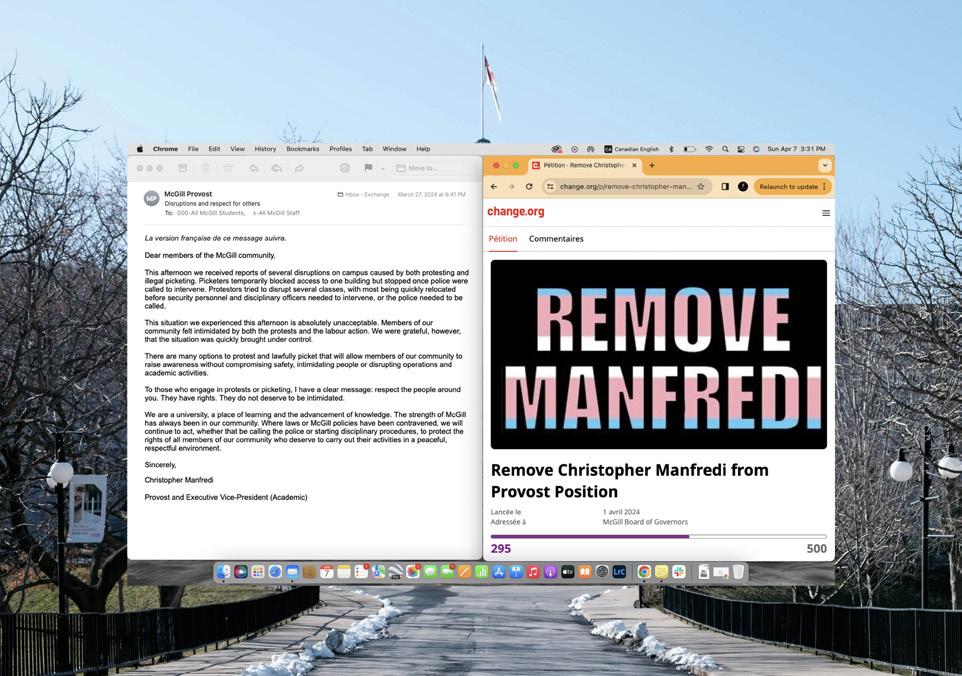
One example Berglas gave of institutional transphobia is that Associate Director of Residence Life Daniel Fournier prohibited Queer McGill from putting up posters regarding institutional deadnaming at McGill in the winter 2024 semester.
McGill’s Media Relations Office wrote to
The Tribune that the group’s posters violated the policy surrounding posters in residences by targeting university administration and that “Residence Life is sensitive to the issue of deadnaming.”
In a comment below Queer McGill’s Instagram post announcing the petition, Manfredi apologized for “any hurt that [the like] has caused” and stated that he had contacted Queer McGill to offer an apology in person.
“Recently, I became aware that my X account had ‘liked’ the post mentioned [by Queer McGill]. It is unclear to me how this happened, but I may have clicked it accidentally. No matter what happened, I sincerely apologize,” Manfredi wrote. “That action does not reflect who I am or what I believe. I take full responsibility for this error.”
The petition also condemns the university’s choice to have police intervene in recent student demonstrations.
On March 28, students protested against McGill’s complicity in the genocide against Palestinians through actions such as blocking entrances to several classrooms. The same day, the Association of Graduate Students Employed at McGill (AGSEM)— the union that represents Teaching Assistants (TAs)—picketed in support of the ongoing strike.
In the evening of March 28, Manfredi sent an email to staff and students stating that the university had called police to campus because some protestors and picketers had allegedly engaged in behaviour in violation of the law and university policies. Manfredi
noted that the police made at least one arrest and that McGill will press charges.
Dallas Jokic, a member of the AGSEM TA bargaining team, explained that TAs have reported feeling less safe on campus due to police presence on campus in an email to The Tribune
“McGill’s attempt to intimidate picketers by calling the police on peaceful labour actions is deeply disturbing,” Jokic wrote, adding that “Provost Manfredi’s defence of calling the cops on your own students and workers in the name of ‘respect for others’ is insulting and reckless.”
In a statement to The Tribune McGill Media Relations Officer Frédérique Mazerolle emphasized that while the university supports the right to free speech and assembly, this must remain within the limits of McGill’s policies and the law.
“No one wants to see situations where police must be called to campus, but if people choose to engage in unlawful activity, McGill will take the necessary measures to keep its community members safe,” Mazerolle wrote.
Berglas also noted that Queer McGill plans on taking up Manfredi’s offer to meet in the hopes of improving the safety of queer students on campus.
“I think I’m going to continue to try to act in a way that is best for queer students,” Berglas said. “[I]n this case, that is going [...] to meet with him [...] to see what we can come up with to make this campus safer for the people I represent.”

3 news@thetribune.ca | NEWS TUESDAY, APRIL 9 2024
Queer McGill also created a deadnaming dashboard earlier this academic year, which tracks instances of misgendering and deadnaming in the university’s IT services, such as Minerva, MyCourses, and Office 365. (Mason Bramadat / The Tribune)

AGSEM claims misinformation, unjust treatment from McGill amid TA strike
Safeguard order denied, McGill and AGSEM meet for second bargaining meeting since start of strike
Jasjot Grewal News Editor
Lily Cason Managing Editor &
Chants and ringing bells, echoed by supportive honks from passers-by, can be heard daily at the Roddick Gates as teaching assistants (TAs) enter their third week of striking and picketing for higher pay, better working conditions, and healthcare.
Since TAs’ previous collective agreement (CA) expired on July 31, 2023, the Association of Graduate Students Employed at McGill (AGSEM)—the union that represents TAs and invigilators— and McGill have been in talks to come to a new CA. After McGill failed to meet AGSEM’s demands, the union passed a strike mandate during the week of March 11 and TAs subsequently began an eightweek strike on March 25.
AGSEM’s Mobilization Officer Emma McKay told The Tribune that the strike has helped AGSEM get concessions at the bargaining table after almost a year of unfruitful negotiations.
“The point of a strike is to withhold labour and disrupt the actions of an employer,” McKay said. “We’ve gotten so much more movement at the table than we would have otherwise. So we know that what we’re doing is putting pressure on McGill in a good way, and while we’re not yet at a deal that we deserve, we are way beyond what we would have gotten if we hadn’t gone on strike.”
In a newsletter published by AGSEM, its bargaining committee outlined their April 2 bargaining session with McGill. AGSEM presented a new proposal concerning harassment, discrimination, and sexual violence; indexed working hours to avoid a reduction of TA hours while class enrollment remains the same; a new letter of agreement (LoA) on protecting the rights of transgender TAs; and two options regarding rates of pay— 14 per cent over three years or 21 per cent over four years.
According to AGSEM’s newsletter, McGill’s counter-proposal incorporated only one item from AGSEM’s original proposal—to hold an annual meeting with all relevant parties to discuss teaching support budgets and the allocation of TA hours—but limited the attendance to one Union Delegate per faculty.
In response to McGill’s proposal, AGSEM drafted another counterproposal, including the original LoA protecting transgender TAs’ rights; amendments to McGill’s proposal of annual meetings to discuss teaching support units, with the modification that attendance would be open to one Union Delegate per Hiring Unit rather than one per faculty; and an increase in wages by 8.5 per cent the first year and 3 per cent per year for the following three years, for a total of 17.5 per cent over four years.
The two parties then entered a discussion about AGSEM’s counterproposal, beginning with discussing the LoA on protecting transgender TAs’ rights. The preamble of the proposed LoA states: “Whereas, transphobia is on the rise around the world.” According to the newsletter, McGill believed this phrase was controversial.
“[McGill has] argued that misgendering and deadnaming are already implicitly included as forms of harassment in their policy. We presented this case to TAs in January, and asked: should we keep fighting on this? The answer was a resounding yes. The bargaining team works for TAs, so we continue to fight for this,” Nick Vieira, a member of the bargaining committee
and AGSEM delegate, wrote in an email to The Tribune AGSEM and McGill then discussed TA hour reductions, leading to a stalemate. After a brief recess, McGill presented a “final global offer.” McGill proposed allowing one Union Delegate per Hiring Unit to attend the annual meeting; a letter of intent with goals of establishing an item on the agenda of the Labour Relations Committee to address TA workload and examine workload issues; no LoA on transgender TAs’ rights; and an increase in wages of 5.5 per cent the first year and 3 per cent per-year for the following three years, for a total of 14.5 per cent over four years.
While this was lower than AGSEM’s original demands, the bargaining team was content to see that McGill proposed one Union Delegate per Hiring Unit, as opposed to one per faculty.
“The inclusion of this amendment suggested that McGill might in fact be getting serious about a deal. We were still far away on many items, but it reflected movement that we were grateful to see,” AGSEM wrote in the newsletter.
However, shortly after AGSEM convened to discuss this proposal, McGill sent the committee a follow-up email stating that they had made a typo and instead maintained their original proposal of one Union Delegate per faculty.
“Their offer left much to be desired, but AGSEM was actively considering the proposal before we received McGill’s clarifying email. McGill’s mistake made it clear there was no more room for useful negotiations on Tuesday,” Vieira wrote.
After this typo, AGSEM decided that they had lost the opportunity to find a deal that day and reaffirmed that TAs deserve to be taken seriously by McGill.
On April 5, McGill’s Director of Labour and Employee Relations Francis Desjardins sent an email about the ongoing negotiations with AGSEM to all staff and students. In the email, Desjardins addressed TA wages, the legal case AGSEM has filed over instructors doing TA work during the strike, TA hours, and access to McGill accounts for striking employees.
In the email, McGill once again discussed picketing, reaffirming the university’s stance that “while peaceful picketing is lawful, obstructing academic activities, intimidating students and instructors, and damaging property is not.” Desjardins claimed that members of the community have been “unnerved” by the disruptions caused by picketers and felt “intimidated” when going to class.
The email also addressed the safeguard order that AGSEM applied for with the Tribunal administratif du travail, which, if granted, would have forced instructors to stop performing the work of striking TAs in their absence, which McGill has told them to do, but AGSEM maintains is scabbing. The injunction was not granted, so instructors are able to continue doing this work for the time being.
“McGill’s email on the [safeguard order] was also misleading,” Vieira wrote. “The case is not resolved and there has been no ruling for [or] against McGill [or]
AGSEM. Rather, the court did not see the urgency in resolving this issue when the case was heard [....] There will be further hearing(s) in the coming weeks [or] months. AGSEM maintains its position that professors and lecturers (except for department chairs) are not managers and that it is illegal scabbing for them to do work which was originally assigned to TAs.”
McGill did not answer questions about whether future hearings will take place.
Desjardins also compared TA wages across Quebec in the April 5 email, pointing out that while AGSEM believes their members deserve higher wages, TA pay at McGill is higher than the Quebec average of $26.50. McKay feels that McGill strategically compared TA wages across Quebec—where they are lower—rather than across Canada. AGSEM has printed out comparisons of TA wages across Canada and displayed them prominently while they picket.
“So we know that the average wage at York, UofT, UOttawa, Carleton, Western, McMaster, and Queen’s was recently $46.36. Now it’s higher because the TAs at UofT just won to raise to $53 an hour,” McKay said. “McGill was so threatened by our very legitimate comparison to other universities that they like to compare themselves to, that they had to say: ‘No, we think that the way that TAs are poor in Quebec is the right way. Look at how poor these other people are. And we want our TAs to remain that poor as well.’”
Desjardins further wrote that TAs “feeling the need to work beyond what is stipulated in their letter of offer should speak with their Course Supervisor to address the situation.” McKay thinks this, too, is not the full story. They said that TAs requesting additional hours is not the solution to the systemic problem that McGill has created by cutting TA hours and ignores the “complex supervisory relationships” that TAs are in. They also noted that course supervisors and McGill often reject valid requests for more hours, resulting in TAs doing unpaid labour.
Desjardins’ email additionally addressed TAs’ access to their McGill accounts, stating that “system accesses required for the performance of work, including work email, will only be restored once the strike is over.” However, he went on to say that TAs still have access to their student accounts
and tax slips. According to McKay, while McGill’s statement is technically true now, it lacks context; AGSEM has heard from members who were locked out of their student accounts and unable to view their tax slips when the strike first began.
“They locked us out of Workday immediately, including locking us out of getting our tax information [...] which is an illegal thing to do,” McKay said. “We [also] can’t file for hours worked in other [McGill] jobs, even if those hours were worked before the strike.”
In an email to The Tribune, McGill Media Relations Officer Frédérique Mazerolle reaffirmed that TAs currently have limited access to McGill staff accounts, but claimed that they are still able to file for hours worked before the strike.
“Teaching Assistants still have access to their student accounts and to Workday to view their pay stubs, tax statements, and enter time for work performed prior to the beginning of the strike,” Mazerolle wrote.
TAs who work multiple jobs at McGill have all been fired or suspended from their other McGill positions due to section 109.1c of the labour code, putting many TAs in financial peril.
“We sent a letter of request for a negotiation for a letter of agreement between the union and McGill which would allow TAs to continue in their other work, which is an option in section 109.1 [...] to allow for striking workers to maintain their other roles,” McKay explained. “McGill never even acknowledged that we asked them for this. So they continue their cruel behaviour, some people have lost their entire income, for no reason.”
McGill did not respond to questions about whether the university has responded to efforts to come to an agreement so that TAs with second jobs at McGill can keep working.
Vieira explained that since the April 2 bargaining session, there has been “radio silence from McGill,” excluding Desjardins’ email. He echoed McKay’s frustration toward the information presented in the email and hopes to get back to the negotiating table as soon as possible.
“We hope that McGill will soon spend less energy on lengthy, misinformed emails and instead spend that energy on negotiations,” Vieira wrote.
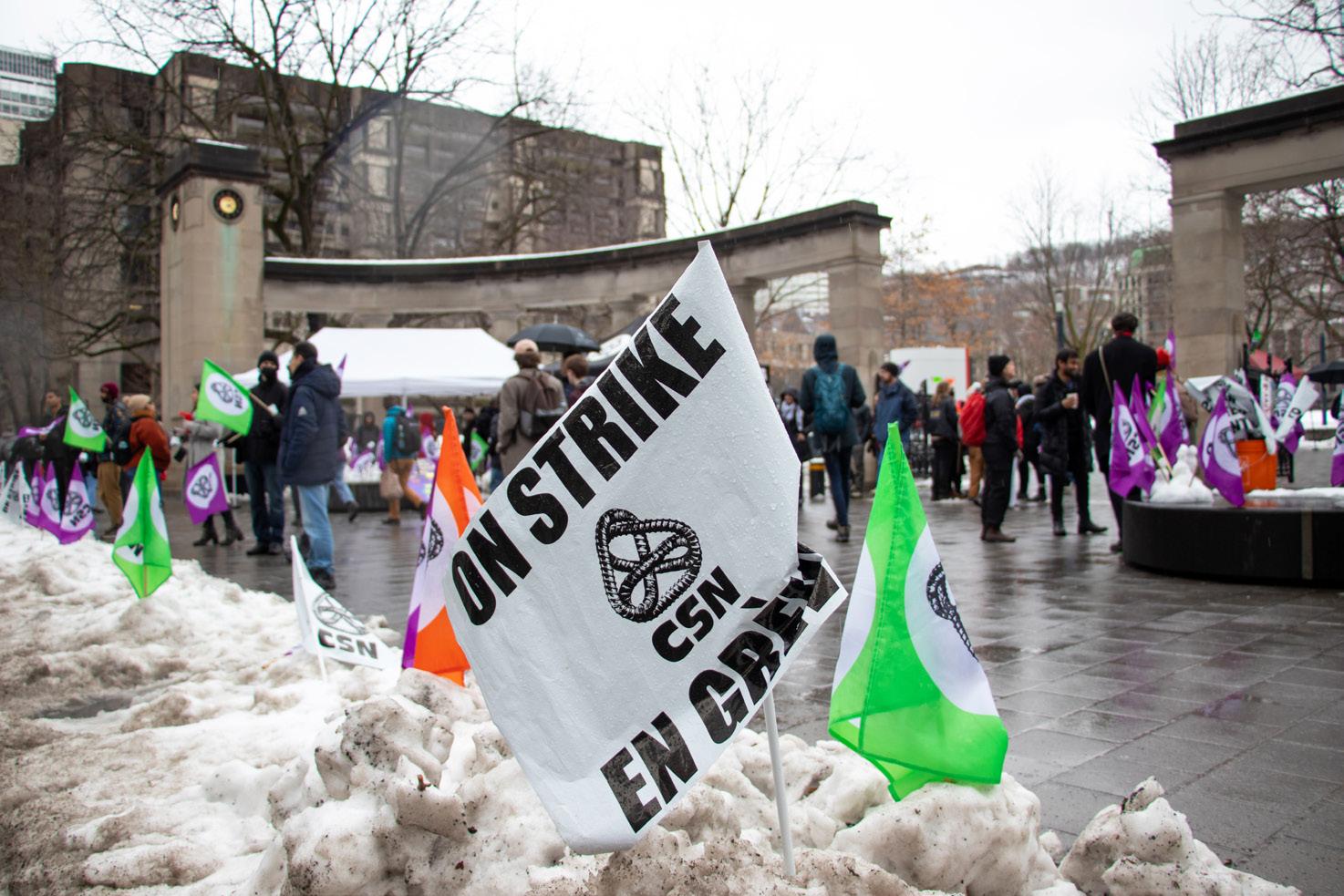
4 TUESDAY, APRIL 9 2024
AGSEM and McGill’s previous bargaining session was held on March 26. (James Knechtel / The Tribune
)
SSMU Legislative Council learns SACOMSS failed internal review of services
2024-2025 SSMU budget proposal plans for $460,000 deficit
Sara Escallon Sports Editor
The Students’ Society of McGill University (SSMU) Legislative Council convened for its secondto-last meeting of the 2023-2024 academic year on Thursday, April 4. The meeting saw reports on the First Year Council (FYC), Library Improvement Fund Committee, Environment Committee, Services Review Committee, and Varsity Council; a presentation of the 2024-2025 SSMU budget by the Vice-President (VP) Finance; and executive reports from the VP Internal and VP Sustainability and Operations. All motions put forward during the meeting were passed.
VP Internal Jon Barlas presented a report on the FYC, discussing the various events and meetings that happened between Feb. 29 and April 4, such as a clothing swap and McGill’s Got Talent, which was held on April 2 in the New Residence Hall Ballroom.
Next, VP University Affairs Lalia Katchelewa presented the end-of-year report for the Library Improvement Fund Committee. Katchelewa discussed the changes made throughout the year to increase student hires and library hours as well as proposals to improve the libraries next year, including updating the charging stations in Schulich Library.
The Services Review Committee gave a lengthy presentation on all 15 SSMU Services offered during the 20232024 academic year. Nadia Dakdouki, VP Student Life, stated that the Services Review is crucial for ensuring that SSMU Services are fulfilling their mandate. Reviews are created using self-reports, interviews, and external surveys.
The only service to receive a failing mark from the Committee was the Sexual Assault Centre of McGill’s Student Society
(SACOMSS).
“[SACOMSS] struggles with the services they provide because they’re not professionals. It’s very difficult in some cases to provide support without providing straight-up therapy or trained professional support,” Dakdouki said.
As they were deemed to have not fulfilled their mandate, this mark identified the organization for intervention to improve the services they provide. In an email to The Tribune, SACOMSS stated that it announced a pause in services on Feb. 1 “due to significant concerns about capacity to provide quality support.”
“In response to the grade, we met with the VP of Student Life and the Services Coordinator, Nadia and Stella, this past Friday, who were satisfied with our explanation and restructuring plan, and will be bringing it to the committee. Ultimately, we believe it is necessary and long overdue for SACOMSS to internally restructure, and hope that we will soon be able to provide the quality services McGill students deserve,” the organization wrote.
Following this report, Sustainability Commissioner Jaanashee Punjabi detailed the Winter semester’s Environment Committee report.
“We identified [that] an issue on campus was that a lot of sustainability clubs were looking for volunteers and outreach and communication,” Punjabi said. “So, our aim was to promote sustainability in student groups and student initiatives amongst McGill students, and bring together resources that sustainability initiatives in groups can use under one umbrella.”
The Environment Committee unified all environment and sustainability clubs and initiatives across campus, including Campus Crops, Little Forests McGill, and the McGill Environment Students’ Society. The Committee created a smaller
environment executive committee which does structural and procedural administrative work to provide resources for these clubs and organizations.
After a brief recess, the Motion Regarding the Renewal and Amendment of the Climate Justice Policy, the Motion Regarding the Approval of the Environment Committee Funding Request for Trash 2 Treasure, and the Motion Regarding the Renewal of the Milton Parc Relations Working Group were all approved without debate.
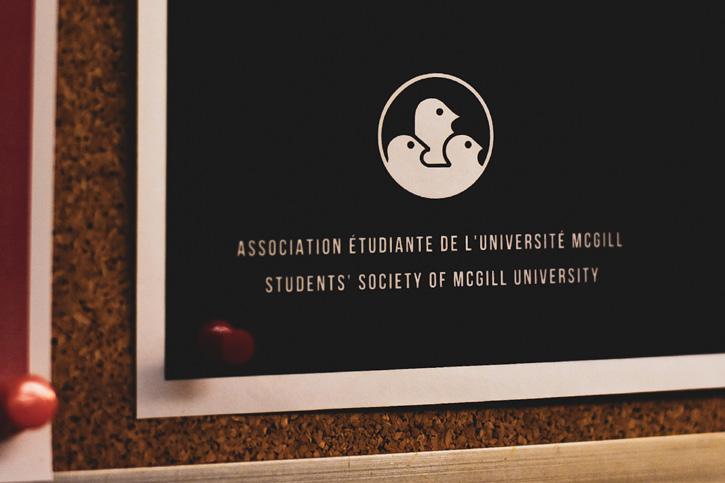
Athletics Councillor Melanie Renaud presented the first Athletics report for the 2023-2024 academic year and discussed the development of an “athletes’ survival guide.” (Yoojung Kim / The Tribune)
VP Sustainability and Operations Hassanatou Koulibaly presented the Motion Introducing the Internal Regulations of Sustainability and Operations. This motion related to the governing of the portfolio of the VP Sustainability and Operations and passed after a brief question period.
VP Finance Amina Kudrati-Plummer outlined two proposed changes to the Internal Regulations of Finance. First, limiting the power that the VP Finance has to make revisions to the budget and second, removing the mandate to revise the operating budget, which the motion deemed inefficient and unnecessary. The motion was approved.
The final motion for the day was the proposed 20242025 budget. The 2023-2024 budget accounts for a $723,000 deficit, whereas the following year’s budget accounts for a $460,000 deficit. KudratiPlummer explained that 92 per cent of next year’s proposed budget will go toward salaries,
and the remaining 8 per cent accounts for other fees and costs.
On April 7, SSMU sent a message to all its members stating that the union will reduce some of its services and close both the SSMU offices and the University Centre from April 8 to 19 due to budget constraints.
Moment of the Meeting:
At the end of the meeting, the Council discussed the need for more candidates to come forward for the positions of 2024-2025 SSMU President and VP Finance. While the position of President has received three nominations, Kudrati-Plummer noted that the VP Finance position had only received one nomination. They expressed that a multitude of candidates is needed for the “democratic health” of SSMU.
Soundbite:
“I’ve been very careful to make sure [...] we don’t expand any of our services, both internally and externally. [The proposed 2024-2025 budget is] limiting [...] but it’s kind of what we have to work on. As long as we are operating in such a large deficit, essentially, there’s very little I can do within the budget to reduce costs any further.”
— Kudrati-Plummer, explaining the reasoning behind the proposed 2024-2025 budget.
A conversation with Arts Senator-Elect Víctor Muñiz-Fraticelli
Ghazal Azizi Contributor
Víctor Muñiz-Fraticelli is an associate professor of Political Science and Law at McGill, making him jointly appointed in both the Faculty of Law and the Faculty of Arts. His union membership card pledges the Association of McGill Professors of Law and he will serve as one of the representatives of the Arts Faculty at the Senate starting in September 2024. The Tribune spoke with Muñiz-Fraticelli hours before the results of the election were announced.
Ghazal Azizi: First, let’s talk about why you decided to run for McGill Senate.
Víctor Muñiz-Fraticelli: I have been VicePresident (VP) External of MAUT [the McGill Association of University Teachers] for two years [....] I decided not to run again as VP External for MAUT because I expect the law union to which I belong to get a collective agreement with the university, at which point the MAUT Constitution makes me ineligible for MAUT membership. But I still wanted to be involved in university governance. I have an academic interest, not just an interest as an employee of the university [...] in the history and justifications of university governance.
Currently, TA strikes and three different faculties are pushing for collective agreements with McGill. How do you see the university labour landscape changing?
I’ll give you the scholarly pitch here. Universities in Europe organized around the 11th and 12th centuries as either student associations or faculty associations. The first university in Europe, the University of Bologna, start[ed] as basically a student union [...] and what they used as a legal institution to organize is the Roman corporation [or] universitas. So we’d like to think that the university is this universal thing, but it actually just means “turned into one thing.”
Today, what we see is a system of supposed shared governance, where academic matters are decided by the Senate and financial and administrative matters are decided by the Board of Governors [BoG]. The BoG is overwhelmingly controlled by non-academics [....] Meanwhile, in the Senate, what you see is [the] control of the agenda by high-level administrators [...] who answer ultimately to [...] that same BoG [....] And my sense is that, in order to return to the original idea of the university, faculty members need to use the institutional means at their disposal, which today are labour unions, to organize a body that only answers to faculty.
With student unions, we’ve reached the point where it’s difficult to get students engaged. Do you foresee this disengagement happening with faculty unions?
There are roughly two models that labour unions have followed. One [...] is an activist model [...] where the labour unions mostly relate to their membership
in a constant organizing mode. So we’re always organizing for the next collective agreement negotiation [...] which means that you need to get people constantly involved, constantly writing, and governance has to be horizontal. The other model has been the service model [...] where the labour unions mostly relate to their members in terms of the services they can provide for them [....] All labour unions still have to offer some of those services, but the problem is that if you go too far towards the service side, people become disengaged [....] The idea, for me, is to see the faculty more seriously as your identity [....] This is one of the main sources of satisfaction for you as a person, so you should cultivate membership to the faculty as a body.
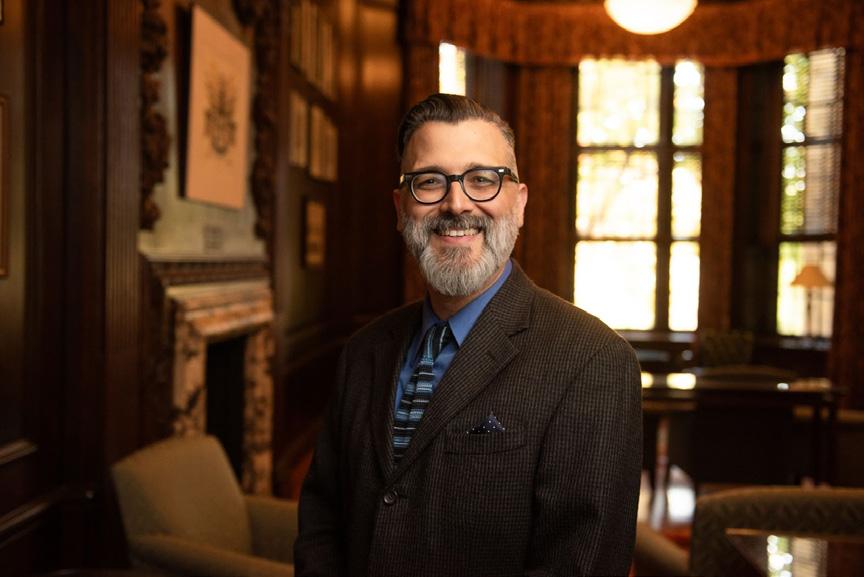
In 2019, Professor Víctor Muñiz-Fraticelli received the Andrew W. Mellon Foundation’s New Directions Fellowship to pursue research in ecclesiology. (Alex Tran)
have expressed not only support in social media for the Faculty of Arts Union but are also going to [...] brave the elements to show solidarity for them.
What are your hopes for the Arts Professors Union’s launch rally today?
What I’m mostly hoping for, quite frankly, is a show of solidarity from the other associations on campus [....] Right now we have 15 certified unions [...] plus two that are seeking certification, in addition to two non-unionized associations [...] MAUT and MUNASA [the McGill University NonAcademic Staff Association]. [A] lot of them
This is a sea change in terms of the way that professors perceive themselves in the university and the way they perceive their relationship to others [....] Professors now realize they have [...] a reconfigured common interest with all these other people on the campus, because [...] everybody’s doing an essential job [...] from the maintenance of the power plant to the data centres to all the administrative support we have, to, of course, [teaching assistants]. We cannot do our job without everybody else, which means that we need to be in solidarity with them, just as they are in solidarity with us.

5 news@thetribune.ca | NEWS TUESDAY, APRIL 9 2024
Open Letter to McGill Administration Regarding the Teaching Assistants’ Strike
On Friday, April 5, just before 2 p.m., a few signatories of the below open letter walked over to the James Administration building to deliver it in person, accompanied by about a dozen members of AGSEM. The plan was for three professors to walk in and deliver seven copies of the letter – one for each addressee. We did not really expect to meet with any of the addressees, but figured we would ask, and then simply leave the letters at the front desk, to be. To our surprise, our modest plan was quickly foiled: the door was locked. There was no doorbell, and no one inside to let us in. One of us tried the keycard entry reader. Red light, no luck. A security guard approached from outside and asked who we were. We explained the situation. “Do you have an appointment?” “No.” “You cannot enter the building without an appointment.”
Perplexed that three McGill professors require an appointment in order to enter the administration building, we put our learned heads together and decided to try calling some members of the administration. Perhaps an administrative assistant would pick up, take pity on us, and come downstairs to collect our now rain-splashed letters. After a couple unanswered calls, we did finally really reach a member of the senior administration, who eventually authorized us to hand the letters to a security guard, who would carry them into the building for us.
Perhaps the experience was just a fluke and if we had delivered the letter on a different day, it would have gone differently. But it certainly left us with a sinking sense of teaching at a university whose administration has walled itself off from students and professors alike, where collegial governance is so far gone that few can even remember its existence, if it ever had one.
To: Deep Saini, President and Vice-Chancellor
Christopher Manfredi, Provost and Executive Vice-President (Academic)
Diana Dutton, Interim Vice-President (Administration and Finance) and Associate Vice-President (Human Resources)
Angela Campbell, Associate Provost (Equity and Academic Policies)
Fabrice Labeau, Deputy Provost (Student Life and Learning)
Francis Desjardins, Director, Labour and Employee Relations
Étienne Clark, Labour and Employee Relations Advisor
Dear Colleagues, We write as McGill professors who are deeply concerned about the university administration’s handling of negotiations with the Association of Graduate Students Employed at McGill (AGSEM). In the last two weeks, in response to the strike, the administration has resorted to intimidation of faculty and graduate students alike. We fear the campus climate will continue to deteriorate unless there is a change in attitudes and tactics.
The administration’s communications to faculty have been heavy-handed and, in some cases, inappropriate. McGill has directed professors and other course instructors that they have no choice but to perform the labour of striking student-employees or be placed on unpaid administrative leave. McGill has justified its position by arguing that instructors are managers (despite the fact that we don’t hire, fire, or set the hours of TAs), as if this is settled case law, and not in fact the subject of an ongoing legal dispute before the Tribunal administratif du travail.
Sincerely,
1. Alanna Thain, Associate Professor, English
2. Barry Eidlin, Associate Professor, Sociology
3. Catherine Leclerc, Associate Professor, Littératures de langue française, traduction et création
4. Daniel Schwartz, Assistant Professor, Languages, Literatures, & Cultures
5. Darin Barney, Professor, Art History & Communication Studies
6. Debra Thompson, Associate Professor, Political Science
7. Derek Nystrom, Associate Professor, Department of English
8. Don Nerbas, Associate Professor, History & Classical Studies
9. Edward Dunsworth, Assistant Professor, History & Classical Studies
10. Emily Carson, Associate Professor, Philosophy
11. Emma Teitelman, Assistant Professor, History & Classical Studies
12. Eric Lewis, Associate Professor, Philosophy
13. Evan Fox-Decent, Professor of Law & Canada Research Chair in Cosmopolitan Law & Justice
14. Hasana Sharp, Professor, Philosophy
15. Ipek Tureli, Associate Professor, Architecture
16. Jake Blanc, Associate Professor, History & Classical Studies
17. Joshua Nichols, Assistant Professor, Law
18. Kirsten Anker, Associate Professor, Law
19. Kyle Kubler, Faculty Lecturer, McGill Writing Centre
20. Louigi Addario-Berry, Professor, Mathematics & Statistics
21. Malek Abisaab, Associate Professor, Department of History & Classical Studies and Institute of Islamic Studies
22. Marianne Tarcov, Assistant Professor, East Asian Studies
23. Marion Vergues, Senior Faculty Lecturer, French Language Centre
24. Michael Hallett, Full Professor, Philosophy, Faculty of Arts
25. Richard Gold, Professor, Law
26. Robert Hasegawa, Associate Professor, Music Research
27. Sandeep Banerjee, Associate Professor, English
28. Stephen Menn, Professor, Philosophy
29. Tari Ajadi, Assistant Professor, Department of Political Science
30. Tassos Anastassiadis, Associate professor, History & Classical studies
31. Victor M. Muniz-Fraticelli, Associate Professor, Political Science and Law
32. William Clare Roberts, Associate Professor, Political Science
33. Aaron Bartels-Swindells, Faculty Lecturer, McGill Writing Centre
34. Michelle Hartman, Professor, Institute of Islamic Studies
35. Subho Basu, Associate Professor, History & Classical Studies
36. Francesco Amodio, Associate Professor, Economics and Institute for the Study of International Development
37. Jorge Alonso Gamarra, Sessional Lecturer, Anthropology
38. Michael Hendricks, Associate Professor, Biology
39. Amy Janzwood, Assistant Professor, Political Science
40. Dennis Wendt, Associate Professor, Educational & Counselling Psychology
41. Kevin McDonough, Associate Professor, Integrated Studies in Education
42. Aron Rosenberg, Faculty Lecturer, Department of Integrated Studies in Education
43. Richard Janda, Associate Professor, Law
44. Priya Gupta, Associate Professor, Faculty of Law
45. Steven Jordan, Associate Professor, Integrated Studies in Education
46. Allison Gonsalves, Associate Professor, Integrated Studies in
Rather than acknowledging this dispute and awaiting a ruling, the university has doubled down on its narrative, while also promising to pay for any fines and legal fees we might incur for following orders and breaking the law. (One wonders which budget line can be so easily diverted to covering these costs.)
Just as disturbingly, the McGill administration’s position pushes faculty to prioritize the needs of undergraduate students over the needs of graduate students. The TAs who are on strike are graduate student-employees. As professors, we care about the needs, learning, and wellbeing of our undergraduate and graduate students, alike. On this note, we are seriously troubled by the administration’s decision to revoke teaching assistants’ access to their work email addresses. Though officially TAs have “work” and “student” emails, in practice many TAs use their work email for a range of scholarly and professional correspondence. Cutting off access to these email accounts will likely result in McGill graduate students missing important correspondence related to publications, conferences, grants, and job applications. Also alarming is the administration’s unwillingness to allow AGSEM members to continue to perform non-TA jobs at the university for the duration of the strike, something that AGSEM has repeatedly requested.
We are very concerned that the university’s tactics could undermine trust and relationships between graduate students and faculty within departments, and we resent being placed in this position by the university. Sowing these divisions threatens to seriously poison the campus climate and our ability to do our jobs.
Intensifying this divisiveness are the administration’s inflammatory campus-wide emails about picketing AGSEM members. These emails have exaggerated the disruption caused by striking teaching assistants, creating an illusion of disorderly and even violent chaos that has no basis in reality. Strikes are a normal occurrence in democratic societies, and participating in strikes is part of individuals’ Charter-protected right to freedom of assembly. Disruptions to everyday routines are an essential part of strikes. While it is always possible that individual strikers might engage in inappropriate behaviour, it is in turn grossly inappropriate for the administration to use individual allegations to paint all picketing workers as threats to campus safety. Whatever their stated intent, these emails are themselves intimidating. Unlike the administration, AGSEM does not have the ability to send campus-wide emails and cannot, therefore, correct the record.
The cumulative effect of these activities is to pit faculty, undergraduates, and graduate students against one another. We believe that it is possible to resolve this conflict without further poisoning our relationships with one another. To do that, the administration must drop the hardball tactics and lowball offers, which have demonstrated a blatant disregard for the soaring cost of living over recent years.
TAs play a vital role in undergraduate education at McGill, leading labs and tutorials, grading papers and exams, and mentoring students one-on-one. Many undergraduate students build stronger relationships with their TAs than with their professors. Many professors treat their TAs as colleagues with whom they collaborate as part of a teaching team. But TAs are not just graduate student workers. They are also junior members of our scholarly community. What sort of community treats its junior members with such lack of support and outright disrespect?
We close this letter with an urgent request to the administration: refrain from the intimidation of its employees and instead focus its energies and resources on negotiating a fair agreement with AGSEM.
Education
47. Yves Winter, Associate Professor, Political Science
48. Jill Hanley, Full Professor, School of Social Work
49. Lynn Kozak, Associate Professor, Department of History & Classical Studies
50. Nanre Nafziger, Assistant Professor, Department of integrated studies in education
51. Jennifer Elrick, Associate Professor, Sociology
52. Mela Sarkar, Associate Professor, Integrated Studies in Education
53. Margaret Levey, Faculty Lecturer, School of Continuing Studies
54. Jenny Burman, Associate Professor, Art History & Communication Studies
55. Alia Al-Saji, Professor, Department of Philosophy
56. Jonathan Sterne, Professor, Art History & Communication Studies
57. Omar Farahat, Associate Professor, Law
58. Nicholas Dew, Associate professor, History
59. Jacob Errington, Faculty Lecturer, School of Computer Science
60. Claude Crépeau, Associate Professor, School of Computer Science
61. Ross Sundberg, Faculty Lecturer, McGill Writing Centre
62. Alex Ketchum, Assistant Professor, Gender, Sexuality, & Feminist Studies
63. Pedro Monaville, Associate Professor, History & Classical Studies
64. Alex Blue V, Assistant Professor, Art History & Communication Studies
65. Gustavo Ferreira, Faculty Lecturer, Art History & Communication Studies Department
66. Sabeena Shaikh, Faculty Lecturer, Institute of Islamic Studies
67. Lyudmila Parts, Professor, Languages, Literatures, & Cultures
68. Camille Owens, Assistant
Professor, English
69. Alexis Dennis, Assistant Professor, Sociology
70. Eugenio Bolongaro, Associate Professor, Languages, Literatures, & Cultures
71. Isabel Pike, Assistant Professor, Sociology
72. David Hensley, Associate Professor, Department of English
73. Carrie Rentschler, Associate Professor, Art History & Communication Studies
74. David Rolnick, Assistant Professor, School of Computer Science
75. Narendra Subramanian, Professor, Political Science
76. David Avis, Professor Emeritus, School of Computer Science
77. Shokry Gohar, Faculty Lecturer, Islamic Studies
78. Adrian Vetta, Professor, School of Computer Science and Department of Mathematics & Statistics
79. Robert Robere, Assistant Professor, School of Computer Science
80. Jessica Ruglis, Associate Professor, Dept of Educational & Counselling Psychology
81. Ara Osterweil, Associate Professor, English, Faculty of Arts
82. Tania Islas Weinstein, Assistant Professor, Political Science
83. Griet Vankeerberghen, Associate Professor, Department of History & Classical Studies
84. Julie Charlotte Sénat, Faculty Lecturer, French Language Center
85. Giulia Alberini, Faculty Lecturer, Computer Science
86. Jayne Malenfant, Assistant Professor, Integrated Studies in Education
87. Alison Laywine, Associate Professor, Philosophy
88. Tim Hoheisel, Associate Professor, Mathematics & Statistics
89. G. Eric Jarvis, Associate Professor, Psychiatry
90. Armando Salvatore, Professor, School of Religious Studies
91. Elaine Weiner, Associate Professor, Sociology
92. Cristiana Furlan, Faculty Lecturer, Languages, Literatures & Cultures
93. Bobby Benedicto, Assistant Professor, Art History & Communication Studies
94. Bronwen Low, Associate Professor, Department of Integrated Studies in Education Programs
95. Sarah Brauner-Otto, Associate Professor, Sociology
96. Philip Howard, Associate Professor, Integrated Studies in Education
97. Isabeau Prémont-Schwarz, Faculty Lecturer, School of Computer Science
98. Pasha M. Khan, Associate Professor, Islamic Studies
99. Diana Allan, Associate Professor, Department of Anthropology and Institute for the Study of International Development
100. Mohamed El Sherbini, Associate Professor, Surgery
101. Jeehee Hong, Associate Professor, East Asian Studies and Art History & Communication Studies
102. Adrienne Hurley, Associate Professor, East Asian Studies
103. Elizabeth Elbourne, Associate Professor, History & Classical Studies
104. Wendell Adjetey, Assistant Professor, History & Classical Studies
105. Edward Klorman, Associate Professor and Canada Research Chair (Tier II), Music Research
106. Ahmed El-Geneidy, Professor, School of Urban Planning
107. Anna Kramer, Assistant Professor, School of Urban Planning
108. leslie sabiston, assistant professor, anthropology
109. Daviken Studnicki-Gizbert, Associate professor, History & Classical Studies
110. Nicole Biamonte, Associate Professor, Music Research
111. David Austin, Lecturer, Institute
for the Study of Canada
112. Gwyn Campbell, Professor, Department of History & Classical Studies
113. Daniel Douek, Faculty Lecturer, Political Science
114. Marta Kobiela, Associate Professor, Department of Integrated Studies in Education
115. Lucia Chamanadjian, Faculty Lecturer, Languages, Literatures, & Cultures
116. Patrick Allen, Associate Professor, Mathematics & Statistics
117. Lisa Barg, Associate Professor, Schulich School of Music
118. Elizabeth Patitsas, Assistant Professor, Department of Integrated Studies in Education and School of Computer Science
119. Rula Jurdi, Professor, Institute of Islamic Studies
120. Linan Chen, Associate Professor, Mathematics & Statistics
121. Jérôme Fortier, Faculty Lecturer, Mathematics & Statistics
122. Zoe Thomas, Assistant Professor, Psychiatry
123. Setrag Manoukian, Associate Professor, Islamic Studies and Anthropology
124. Kaleem Siddiqi, Professor, School of Computer Science
125. Rosalie Bélanger-Rioux, Faculty Lecturer, Mathematics & Statistics
126. David Wachsmuth, Associate Professor and Canada Research Chair (Tier II), School of Urban Planning
127. Sandra T. Hyde, Associate Professor, Anthropology, Faculty of Arts
128. Audrey Coussy, Associate Professor, French Language & Literature
129. Fiona Ritchie, Associate Professor, Department of English
130. Peter McMahan, Assistant Professor, Department of Sociology
131. Jean-Christophe Nave, Associate Professor, Mathematics & Statistics
6 OPINION | opinion@thetribune.ca TUESDAY, APRIL 9 2024
Campus Conversations: Solidarity

Solidarity beyond interest-convergence Fanta Ly, Features Editor
Solidarity is trending at McGill. The “historical anomaly” of the current mobilization lies in the diversity of positionalities standing against power. As a result, the face of those calling for solidarity is diversifying beyond specific student groups to encompass large portions of the student body as well as professors who are unionizing. Though the engagement of this ever-increasing coalition is commonly credited to rising solidarity, the more adequate term capturing this moment is interest convergence. This is not a pedantic distinction, but an essential one to understand. During times of interest aligning between different groups across campus, solidarity must be met with critical engagement on how interests and positionality shape this mobilization.
In his theory of the interest-convergence dilemma, Derrick Bell, an American lawyer, legal scholar, and civil rights activist, argues that the interests of Black people, the minority group, only advance when they converge with those of white people, the dominant group. This theory is an interesting framework for understanding the current moment, highlighting the nascent alignment of interests between professors and other groups on campus. However, it is also essential to reflect on past periods when this level of convergence and solidarity was not as widespread to engage authentically with the dynamics of change on campus.
This wave of mobilization and calls for solidarity unexpectedly includes white McGill professors, many of whom are getting their first taste of administrative violence, a novel and certainly unpleasant experience for many of them. Given this context, it is crucial for these professors to reflect on their involvement, whether it manifests as apathy, excitement, complacency, or continuous support. They should consider both their historical and current acts of solidarity, along with their reactions or lack thereof to the institutional violence they have undoubtedly observed before. This reflection can be bolstered through coalescence with organizations
Solidarity and selflessness
Isaiah Albert-Stein, Opinion Editor
Working to serve others can never be truly selfless. No matter how difficult the work is, when you find yourself helping someone else, the sense of accomplishment and goodwill benefits you in return. The same is true for solidarity—it feels good to stand up for what’s just, especially when you are standing with others. A close friend explained this to me when I was 18. Or at least they told me something along those lines. But as an idealistic teenager trying to figure out my place in the world, I internalized a flawed message: Solidarity and selflessness are incongruent, and we have to make every effort to avoid being self-serving as we engage in activism.
In the years that followed, I fixated on instances of what I considered “selfish” solidarity. I grimaced as friends discussed the need to snap Instagram stories at a protest or the importance of adding experience with an advocacy group to their resume.
On June 2, 2020, I encountered the most obvious example of selfserving solidarity: A feed full of people posting #BlackoutTuesday. For many, a black box with the hashtag as a caption served to solidify their status as a “good person” forever, as if a social media post would end racism immediately. Encountering activism

Nurturing Arab culture
Yusur Al-Sharqi, Staff Writer

like the Black Students’ Network (BSN), Solidarity for Palestinian Human Rights (SPHR) at McGill, and Queer McGill among others. These groups have a long history of advocating for solidarity and improving campus life for marginalized students and others who have experienced the same violence. Despite facing continuous harm, they remain committed to fostering unity and support. For many, solidarity is both a means and an end. Recognizing the different stakes, both material and psychological, faced by those well-acquainted with solidarity is the starting point.
The current wave of unionization underscores how the privileged position of white professors has rarely led them to challenge the administrative violence that historically protected their interests. However, recent actions by McGill administrators seem to have disrupted the previously aligned interests between these professors and the administration. This shift places professors in a position all too familiar to those who have been marginalized by the same administration: an ongoing struggle to demand better and equal treatment. To be clear, demanding better working conditions differs fundamentally from defending one’s humanity against administrative violence. But the focus here is not comparing the scope of administrative violence, but emphasizing that it stems from the same source. Ending up side by side due to shared adversity is not the same as making a conscious decision to stand in solidarity.
Nevertheless, even this small commonality serves as a foundation for mutual support. Sustaining solidarity requires extending the love we show to ourselves when we demand to be treated better to others pursuing the same, regardless of our ability to relate to their experiences. This extension must be free from tone and policing, or any sense of entitlement to dictate how individuals articulate their demands.
In this period of interest convergence, we will witness both the convergence and divergence of ideas on what solidarity is and ought to look like. The real challenge lies not just in generating these ideas, but in taking intentional actions to ensure that the diversity of those embracing solidarity is maintained well beyond the present moment.
that carried personal or professional benefits validated my naive, black-and-white view that selflessness in solidarity was ultimately unattainable. This doesn’t mean I stopped speaking out for causes I cared about or doing work to try to build a better world. If anything, I worked even harder for the things I believed in. I tried desperately to find out how anyone could be selfless, then beating myself up when I felt proud of successful organizing or when I felt fulfilled after supporting others.
Recently, I finally reached a realization that had spent years hiding behind these surface-level contradictions I kept telling myself: Selflessness should not prevent us from benefiting from solidarity. Solidarity is not transactional. It emerges from our connection with others, not from giving or receiving as if it were an object. Whether the cause is standing up for anti-racist movements, workers’ rights, or Palestinian liberation, solidarity does not exclusively benefit the people most affected. We should feel good about standing with others. When attending a protest or organizing within your community makes you feel more hopeful and less alone, it is not an intrusive feeling of selfishness; rather, that positive feeling is the whole point. To feel collective grief, mobilization, and optimism is the very core of solidarity—and selflessness means recognizing yourself as part of this collective community and working actively to make it better.
Growing up in Canada as an Iraqi immigrant, my parents were determined to preserve our Arab and Muslim heritage. Admittedly, I often resented them for this; not a Sunday went by when I did not complain about the Arabic classes my mom forced me to attend. However, a frightening realization struck me when I came to McGill. I would no longer have someone to ensure that I immerse myself in my culture. I feared that the daunting task of preserving Arab culture in my own life would rest solely on my shoulders. However, recent events at McGill in support of Palestinian liberation have shown me that I am not alone in this preservation; solidarity flows all around me, in all directions. For many Arabs, the Palestinian struggle feels inherently linked to our own countries’ struggles against colonialism and imperialism. I was reminded of this when I heard the Iraqi national anthem, Mawtini meaning homeland—at a Palestinian rally on campus. It was at that moment that I discovered it was also an anthem of Palestine. I was awestruck that a song so pivotal to Arab pride would be played aloud and with such pride on McGill’s campus, heard by non-Arab students from across the world.


I am not usually one to lavish praise to allies—not because I do not appreciate their efforts, but because I feel they receive enough credit as is—but McGill students’ solidarity with the Palestinian cause demands acknowledgement. Taking a stand against the Israeli regime is fraught with risks such as doxxing and harassment. Yet, many McGill students and organizations bravely persist. And every time they do, they make it known that McGillians from diverse backgrounds, even with no personal ties to the cause, are rooting for peace and transformation in the Arab world.
My cultural preservation did not end with my parents sending me to school with kibbeh, a Levantine roll of ground beef and bulgur wheat, in my lunchbox while my white friends got PB&J sandwiches. It continues from the Arabs around me who make Moroccan tea every night and wear abayas at dinner parties; it flows from my non-Arab friends who say mashallah every time they pay me a compliment and the non-Muslims who host iftars despite not fasting themselves. Most of all, solidarity pours from the displays of Palestinian support by various organizations and individuals at McGill. As I reflect on this, any sense of anxiety around my cultural heritage dissipates; I feel more connected and proud of my Arab identity than ever.
TUESDAY, APRIL 9 2024 opinion@thetribune.ca | OPINION 7
McGill is a Union Campus
Kiran Gill Staff Writer
Alongside the consistent mobilization of students across university campuses, union activity at McGill regularly demanded the community’s attention this semester. The newly formed Association of McGill Law Professors had a one-day strike in February.
McGill Arts Professors announced their successful unionization last week. Most prominently, the Association of Graduate Students Employed at McGill (AGSEM) has been on strike since March 25. Despite the attention toward labour organizing at McGill, the quiet organizing drive of the university’s undergraduate and graduate graders, tutors, course assistants, and other Academic Casuals is often passed over. While it can be easy to overlook, the unionization of these Academic Casuals is instrumental to building labour power at McGill.
Academic Casuals are short-term, part-time workers who help develop and deliver teaching programs. Often, this work involves grading, developing course materials, and leading tutorials. Why does McGill choose to employ academic casuals to do work that appears to be best suited for Teaching Assistants (TAs)?
It is not because Casuals are uniquely qualified for the position, but rather because McGill pays academic casuals less than half what TAs earn. Currently, McGill TAs make an abysmal $33.03 an hour, yet, despite their comparatively low wage, McGill wants to limit their hours as much as possible. Enter Academic Casuals, whose hourly wage is marginally above the provincial minimum wage at $15.50 an hour. The Academic Casual position quite simply exists to keep McGill’s labour costs to the absolute minimum.
As TAs continue their negotiations with McGill, unionizing McGill’s Academic Casuals is increasingly important. The TA strike has ramped up pressure on the administration, making it likely that AGSEM will secure substantial wage increases for its members. If the strikes achieve this pay increase, McGill is likely to further reduce TAs’ contract hours so that their total remuneration stays despicably low, and Academic Casuals will be tasked with picking up the reduced TA hours. Unionizing Academic Casuals not only increases their own labour power but TAs’ power as well, as McGill would no longer be able to substitute unionized workers for poorly paid undergraduates.
Throughout the TA strike, the administration has pitted different groups on campus against each other. The administration has forced professors to scab on their TAs, undermining both their professional and academic relationships.
Meanwhile, the Provost and Executive Vice-President (Academic) Christopher Manfredi sends almost daily emails condemning the labour action of graduate students and demonizing them to the undergraduate population. Despite acknowledging that the tasks of Academic Casuals often resemble those of striking TAs, McGill requested that they continue their work. In essence, Academic Casuals are being used by McGill as replacement workers. The Quebec Labour Code prohibits the use of replacement workers because it erodes the ability of either party to implement a meaningful work stoppage. Replacement workers are inherently at odds with striking workers because they undermine their bargaining power. Instead of being weaponized by the McGill administration as a tool to erode TAs’ labour power, unionized Academic Casuals would be able to stand in solidarity with them.
Unity has proven successful in creating change

at other universities. This January, the California Faculty Association (CFA) went on strike in response to the California State University’s refusal to pay their membership a fair wage. The CFA encompasses 29,000 professors across 23 universities, giving them a considerable amount of labour power. However, the CFA also had support from their university community, students overwhelmingly demonstrated against the administration and maintenance staff threatened to strike in solidarity. The strike ended in one day as the university capitulated in the face of united workers and students. The McGill community can use the
CFA strike as a model for a productive unified struggle. Tangibly, this means all workers at McGill need to stand in solidarity against the tyranny of the administration. The AGSEM strike demonstrates yet again how the McGill administration prioritizes its profits over the well-being of its students and employees. The McGill community, however, does not lack agency to challenge the administration’s retrenchment. Together, staff, students, and faculty have the power to assert their right to a better education and a better workplace.
Kiran is currently employed by McGill as an Academic Casual.
McGill’s policy on social injury leaves few options for protesters
Darin BarneyGrierson Chair in Communication Studies
On March 28, McGill’s Provost and Executive Vice-President (Academic) informed the campus community via email that “some protestors and picketers again attempted to disrupt University activities” and that “police made at least one arrest and the university has chosen to press charges.”
Reports suggest the disruptive actions were carried out in solidarity with McGill students engaged in a protracted hunger strike over the university’s position on the violence currently being inflicted on people in Gaza.
Addressing “those who choose to engage in protests or pickets going forward,” the Provost warned: “You have a range of legitimate, legal, peaceful options for raising awareness of your views,” and threatened that “where other options are chosen instead, consequences will follow.”
What kinds of “legitimate, legal, peaceful options” does McGill’s governance structure make available for the specific concerns expressed by these protestors?
These courageous activists are not seeking simply to “raise awareness” of their views (state-sanctioned killing and starvation of innocents because of their ethnicity
and where they live is not something about which one has “views”). They are, instead, trying to persuade the Board of Governors to withdraw McGill’s investments from companies they believe “directly or indirectly support Israel’s apartheid state and its ongoing genocide against Palestinians” and to cut McGill’s ties with the Israeli state and Israeli universities. Under the circumstances, this is not an outrageous request. Yet the university’s own mechanism for receiving expressions of concern about its investments all but guarantees the Board will never consider it.
The university’s investments are subject to review by the Committee on Sustainability and Social Responsibility (CSSR), which is mandated to ensure McGill does not invest in companies whose activities result in “grave injurious impact,” including those which “violate or frustrate the enforcement of rules of domestic or international law intended to protect individuals against deprivation of health, safety, or basic freedoms, or to protect the natural environment.”
Is petitioning the CSSR one of the “legitimate, legal, peaceful options” available to the hunger strikers and their supporters (1200 signatures, and counting), an institutional process through which they
can express concerns about the role played by companies in which McGill invests in the grave injuries being committed against the people of Gaza and the West Bank?
As it turns out, not really.
An August 2023 revision to the CSSR’s terms of reference stipulated that “a legal person [i.e., a corporation] shall not be deemed to cause ‘social injury’ simply because it does business with other legal persons which are themselves engaged in socially injurious activities.”
Under this provision, if a group of McGill students discovered the university was investing in a company that provided support to Hamas in its horrific October 7 attack on Israeli citizens, they would have a hard time bringing this before the Board as a potential violation of the university’s policy on socially responsible investing.
Sadly, hypothetical examples are not necessary. We have before us an actual case in which a significant portion of the McGill community believes that companies in which the university invests are profiting from activities implicated in the killing, maiming, forced starvation, and displacement of thousands of innocent people in Gaza. Consideration of these claims and related evidence is deliberately undermined by the rules of the very body that supposedly exists to decide

such grave questions on behalf of the university.
The option to express these concerns by “legitimate, legal, peaceful” means in a forum where this could have real impact has been effectively foreclosed. As a result, we are left with the heartbreaking spectacle of McGill students starving themselves and getting arrested, just to get the university’s attention.
The communique sent to the McGill community referred to McGill’s “ esprit rassembleur ,” a recent coinage intended to evoke a special McGillness supposedly at risk due to the unruly activities of human rights advocates, trade unionists, and the Gouvernement du Québec. But if there is a threat to McGill’s esprit rassembleur , it
is not the alleged excesses of passionate protest, labour organization, and cynical public policy. It is university governance procedures that leave serious people without genuine options for bringing legitimate concerns to forums where consequential decisions are being made.
If the university’s administration is truly concerned about the political climate on campus, it could start by asking the Board to rescind its prejudicial definition of social injury so that the options available to people acting in good faith are real, instead of imaginary.
8
Darin Barney is a professor and Grierson Chair in Communication Studies at McGill.
McGill undergraduates do TAs’ work for less than half the price. (Claire Dominici / The Tribune)
TUESDAY, APRIL 9 2024 OPINION | opinion@thetribune.ca
(Mason Bramadat / The Tribune)
Solidarity with BDS for the future of our campus
The Tribune Editorial Board
On March 21, the Université du Québec à Montréal (UQAM) became the first Canadian university to have all of its student unions adopt Boycott, Divestment, and Sanctions (BDS) mandates. This final vote follows more than six years of tireless activism from Solidarity for Palestinian Human Rights UQAM (SDHPP). In comparison, McGill’s history regarding BDS is fraught: After a 2016 BDS motion passed with 58 per cent of non-abstaining McGill student voters’ support, the Judicial Board ruled against its adoption, citing that it would be unconstitutional for the Students’ Society of McGill University (SSMU) to take positions against specific countries. The echoes of this decision resound in the legal and constitutional actions against two other democratically-elected policies, the 2022 Palestine Solidarity Policy and the 2023 Policy Against Genocide in Palestine. UQAM’s vote must be a signal to students to continue mobilizing, acting in solidarity with Palestine, and ending McGill’s complicity with Israel’s siege on Gaza.
Generations of McGill students have worked to reach a consensus on anti-colonial struggle, at home and abroad. Protests continue to garner support, with pro-Palestine students, staff, and faculty speaking up against McGill’s investments in corporations that fuel genocide and partnerships with universities that actively contribute to the militaryindustrial complex. UQAM’s student activists’ historic policy victory serves as a broader framework for change—a message that our tuition dollars make us complicit, and that as students we can and must reshape this university.
in these histories allows us to propel our solidarity and understand the limits of institutional recognition.
BDS as a movement democratizes the university and upends the normalization of complicity in the form of academic and economic investment in genocide and colonialism. Years of Black and African-led mobilizations in the 1980s pushed McGill to become the first Canadian university that divested from apartheid South Africa. This recent history, alongside the 11-year struggle to divest from direct holdings in Carbon Underground 200 fossil fuel companies, demonstrates student power and affirms that true learning can only exist alongside striving for selfdetermination, human rights, and peace. The 2021 Divest for Human Rights Campaign asserted that students’ efforts for environmental justice, racial justice, and decolonization begin on campus. On unceded land and on the exploitation of enslaved Black and Indigenous children, our university’s founding has informed this ongoing fight against white supremacy and settler colonialism. Grounding Palestinian struggle on campus
In their efforts to push for the adoption of pro-Palestine policies, activists from Solidarity for Palestinian Human Rights (SPHR) at McGill to Law Students for Palestine have worked inside and against the institution. When the injunction in November halted the Policy Against Genocide in Palestine, students continued to mobilize on campus against the ongoing genocide in Gaza. Student activists have increasingly organized successful direct action through protests in university buildings, the Bronfman blockade, and the courageous hunger strike. When their activism upsets daily procedure on campus, history emerges in popular education on the ground and it becomes impossible to view the university as apolitical. These actions necessarily refute the university’s misinformation and its monopoly on the interpretation of events. What the administration sees as disruption and hostility is the invocation of liberation from students. The chants, teachings, and care integral to these actions generate community amid the violence, recognizing that another university and another world is possible. The university acts from a powerful position of fear, weaponizing students and workers against one another by requesting police intervention and attempting to diminish student activism. To counter
Canada needs more festivals
Sainka Walia Social Media Editor
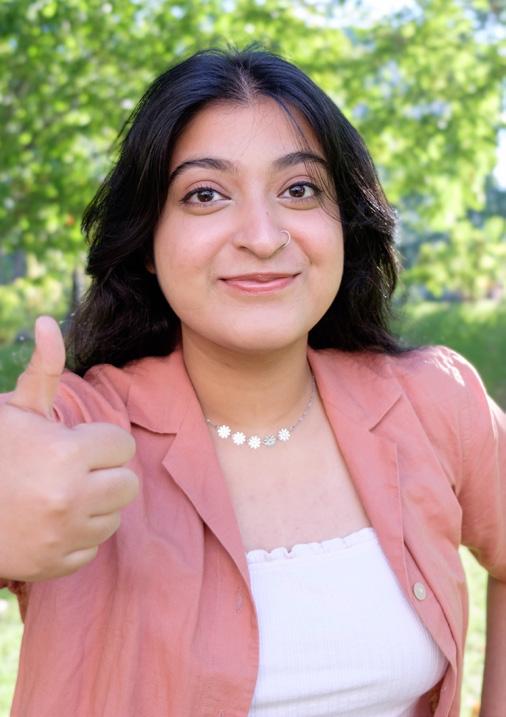
Canada needs more festivals, and let me tell you why. As someone who grew up in a multicultural country––living in the immigrant hub of New Delhi––I have celebrated almost every festival known to man since I was barely a year old. When I came to Canada at 18, my first culture shock was the scarcity of festivals. It left me wondering “What do people look forward to?” When I was in school in India, I remember hating the months of July and August because it meant no festivals and therefore school for a full two months. I still cannot fathom being a kid going to
school every day and not being given a day off every two weeks because of a festival.
With March comes Holi, a festival where you throw water balloons and coloured powder on people to celebrate spring. This means you start planning your water balloon attacks on the enemies (kids in the neighbouring apartment complex) weeks in advance. On the day of, you wake up at 7 a.m. and unleash wrath on whoever you see. This was the one day we could take revenge on the adults who banned us from playing cricket because we kept breaking their windows. Plus, if you came home without looking like you were dragged through a paint shop, then you did not play Holi. The colour would stain, and we would go to school looking like Smurfs.
July and August were joyless months of study, except for one major festival, Janmashtami (Krishna’s Birthday). Even though it was not a big festival, it was for my friends and me. We used to put on a dance performance for our entire neighbourhood. Now of course, you needed at least a month of practice for this, so that is how we coped with the sad, hot, holiday-less months of July and August—by simply choreographing a 30-minute
the administration’s frantic fear-mongering in every email, condemnation, scab effort, and police call, activism on this campus only grows louder and cuts across constructed divides.
Calls for a BDS policy highlight institutional failures across the board. Unionizing efforts from Law, Education, and Arts professors alongside the Association of Graduate Students Employed at McGill (AGSEM) have enlivened the possibilities of our university. Struggles interlink with one another when AGSEM shows support for Palestine and the hunger strikers raise awareness of the teaching assistants and the Kanien’keha:ka Kahnistensera (Mohawk Mothers). McGill’s role in exploiting workers and dispossessing Indigenous peoples and their land cannot be the same. The administration’s disregard for Palestinian and Arab students and suppression of protest reveals that this community will rise up, demanding the end to unbearable forms of oppression. Our time at McGill is brief. Boycotting, divesting, and sanctioning Israel, calling for a ceasefire and Palestinian liberation are three important steps that will become intergenerational struggles. As this academic year ends, these struggles do not. Acting in solidarity, mobilizing on the ground, and carrying forward activist memory will allow us to pursue justice here and abroad, now and in the future.
dance and making elaborate costumes.
Then came October and November, the kings of the festival season. From October to November, nobody does any work, we all quit and dream of Diwali, a festival where you burst crackers, exchange gifts and decorate your houses to celebrate the return of a deity. There is a common misconception that Diwali is one day; it is actually a month of smaller festivals leading up to a big blast. Literally, we burst so many crackers that people in Delhi cannot breathe for days (not that they can on a regular basis either, but it’s considerably worse). These are months filled with joy, happiness, and gifts. Life is much easier to handle when everybody is secretly dissociating at work and dreaming about going home. Going home meant getting to see what gifts had come and whether the neighbourhood kids had started bursting crackers. However, my favourite part was neither the gifts nor the firecrackers but the rangolis. Rangoli is an art form that involves creating patterns on the floor using materials such as dry rice flour, coloured sand, and flower petals. I got to make it with my Tamil neighbours, who are experts and have very graciously taught me this
beautiful art over the years (I threw a tantrum when I was a child whenever they didn’t let me participate). I used to wake up early in the morning and get to work, decorating the entire corridor. Growing up I wasn’t great at art, so this was my place to really be creative.
Finally, December hits: Christmas. My friends and I decorated our trees, hosted Christmas parties, and watched Hallmark movies. This month is also the only one I’m properly able to recreate in Canada.
Now that I have subjected the readers to a recounting of my entire childhood, I remember the real reason why I chose this topic to write on. I miss the community; I miss the nosey people on the streets; I miss annoying children trying to throw water balloons at me, but they miss because their aim is shit and mine is not. Canada needs more festivals because people need something to look forward to. Canada needs more festivals because in the cold winter months when seasonal depression is in full bloom, Christmas is not enough (although Montréal does make me feel like a princess during those weeks). Also, Canada needs more festivals because I genuinely cannot go to class every single day (I go to one lecture and call it a day).
9 opinion@thetribune.ca | OPINION TUESDAY, APRIL 9 2024 EDITORIAL BOARD The Tribune is an editorially autonomous newspaper published by the Société de Publication de la Tribune, a student society of McGill University. The content of this publication is the sole responsibility of The Tribune and the Société de Publication de la Tribune, and does not necessarily represent the views of McGill University. Letters to the editor may be sent to editor@thetribune.ca and must include the contributor’s name, program and year and contact information. Letters should be kept under 300 words and submitted only to the Tribune. Submissions judged by the Tribune Publication Society to be libellous, sexist, racist, homophobic or solely promotional in nature will not be published. The Tribune reserves the right to edit all contributions. Editorials are decided upon and written by the editorial board. All other opinions are strictly those of the author and do not necessarily reflect the opinions of the Tribune, its editors or its staff. 3480 McTavish, Suite 110 Montreal, QC H3A 0E7 - T: (519) 546-8263 Ghazal Azizi, Ella Gomes, Chloé Kichenane, Amalia Mairet, Matthew Molinaro, Jacob Northfield, Ella Paulin & Sophie Smith Ghazal Azizi, Noor Bhaghani, Ava Bicknell, Sylvie Bourque, Lily Dodson, Claire Dominici, Jenna Durante, Maxwell Goldstone, Yoojung Kim, James Knechtel, Annabella Lawlor, Lialah Mavani, Simi Ogunsola, Maïa Salhofer, Serena Sautter-Léger TPS BOARD OF DIRECTORS TRIBUNE OFFICE Yusur Al-Sharqi, Sylvie Bourque, Auxane Bussac, Lulu Calame, Brian Chang, Roberto Concepcion, Fabienne de Cartier, Kellie Elrick, Maria Gheorghiu, Kiran Gill, Charlotte Hayes, Yejin Lee, Zoe Lee, Lana Liquard, Abbey Locker, Madigan McMahon, Atticus O’Rourke Rusin, Eliza Wang, Katherine Weaver, Marco Zeppelli, Abby Zhu STAFF CONTRIBUTORS Editor-in-Chief Matthew Molinaro editor@thetribune.ca Creative Director Mika Drygas mdrygas@thetribune.ca Managing Editors Lily Cason lcason@thetribune.ca Arian Kamel akamel@thetribune.ca Tillie Burlock tburlock@thetribune.ca News Editors Eliza Lee, Jasjot Grewal, & Caroline Sun news@thetribune.ca Opinion Editors Chloé Kichenane, Liliana Mason, & Isaiah Albert-Stein opinion@thetribune.ca Science & Technology Editors Ella Paulin & Coco Zhang scitech@thetribune.ca Student Life Editors Abby McCormick & Dante Ventulieri studentlife@thetribune.ca Features Editor Fanta Ly features@thetribune.ca Arts & Entertainment Editors Dana Prather & Suzanna Graham arts@thetribune.ca Sports Editors Sara Escallon-Sotomayor & Julie Ferreyra sports@thetribune.ca Design Editors Drea Garcia & Zoe Dubin design@thetribune.ca Photo Editor Mason Bramadat photo@thetribune.ca Multimedia Editor Anna Chudakov & Alyssa Razavi Mastali multimedia@thetribune.ca Web Developers Eleni Lyberopoulos & William Kiem Lafond webdev@thetribune.ca Copy Editor Theodore Yohalem Shouse copy@thetribune.ca Social Media Editor Sainka Walia socialmedia@thetribune.ca Business Manager Sophie Smith business@thetribune.ca T
Snaps of solidarity
A recap of the year in activism


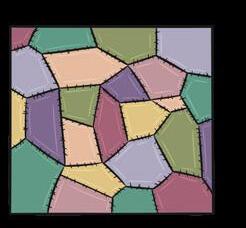
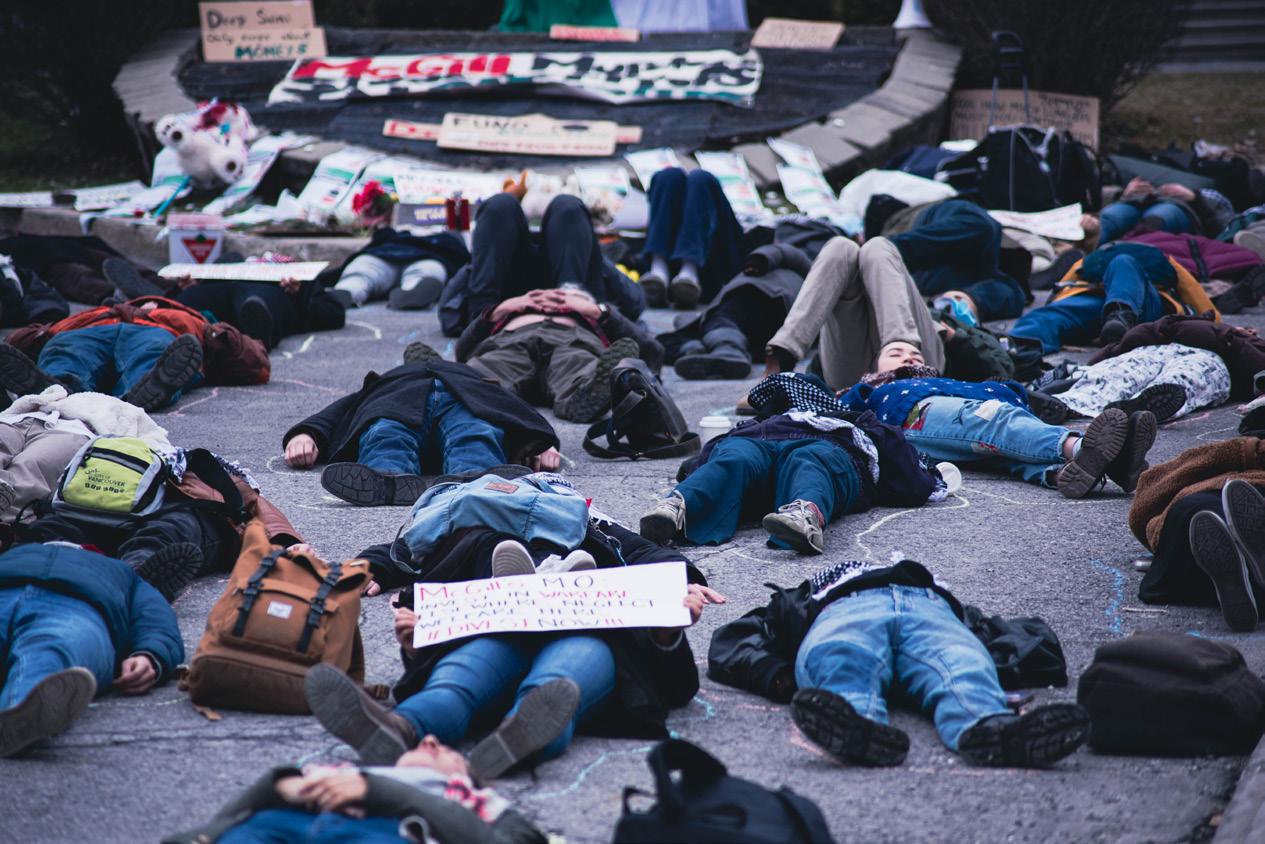
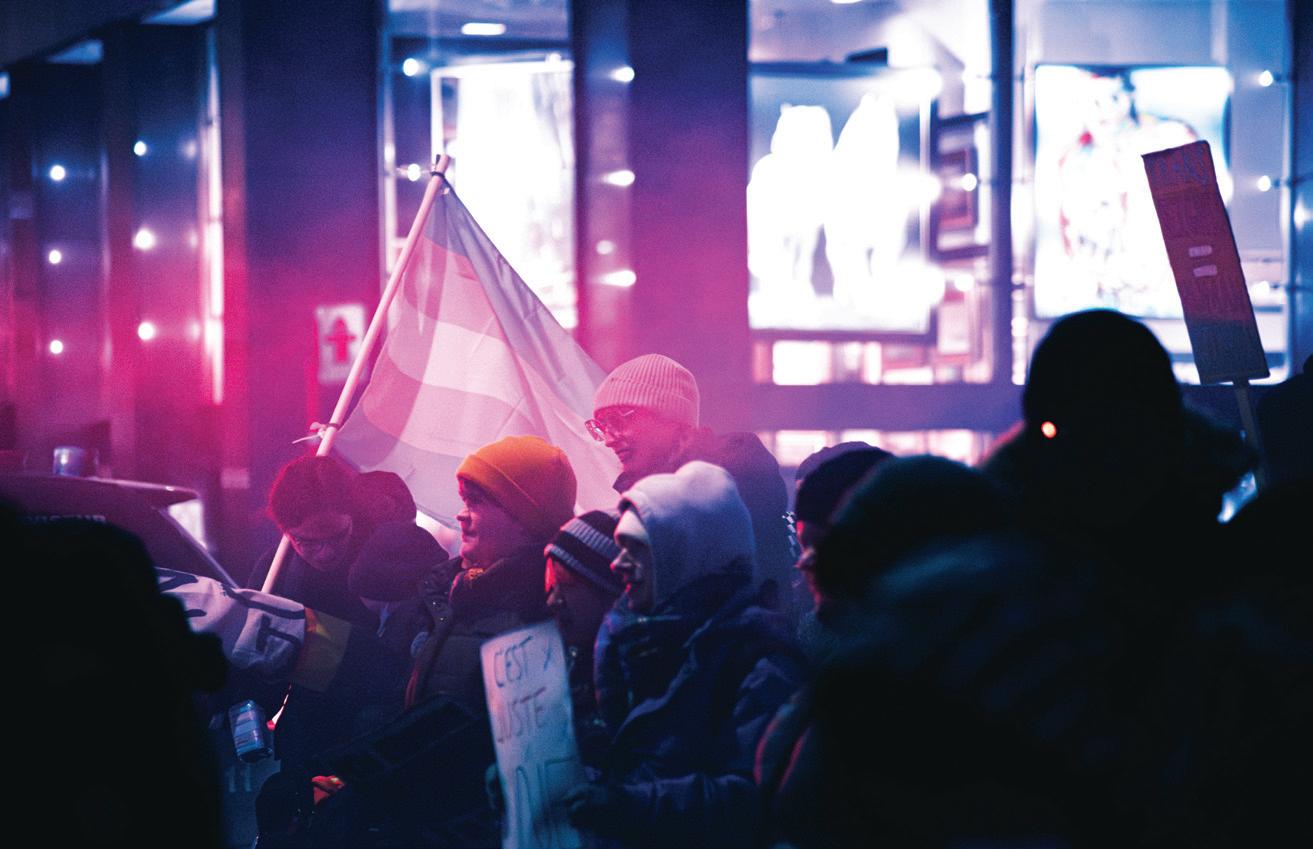





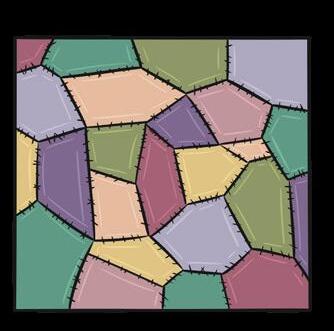



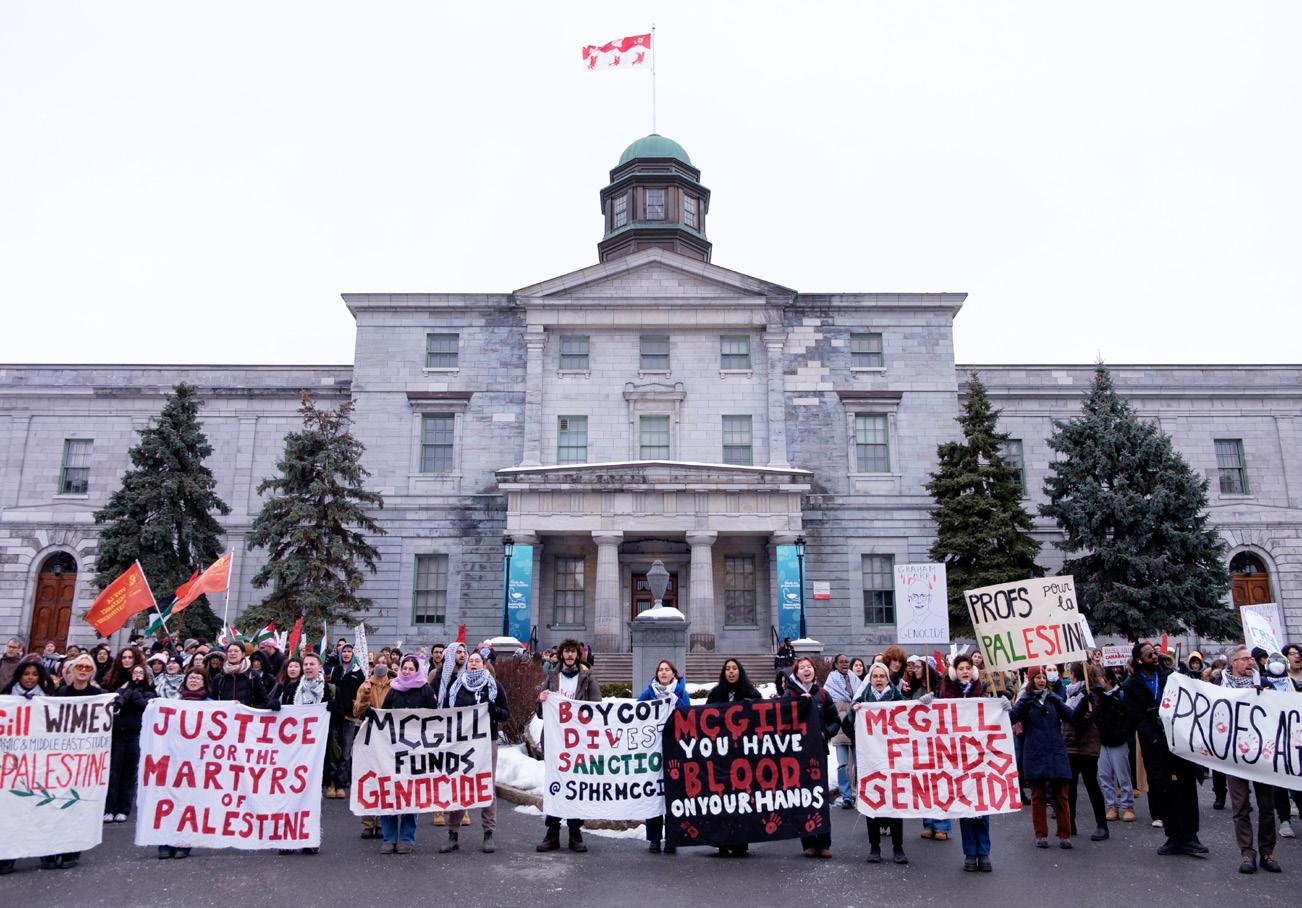
10 PHOTO | photo@thetribune.ca TUESDAY, APRIL 9 2024
Abby Zhu
Abby Zhu
James Knechtel
Mason Bramadat
Mason Bramadat
Mason Bramadat

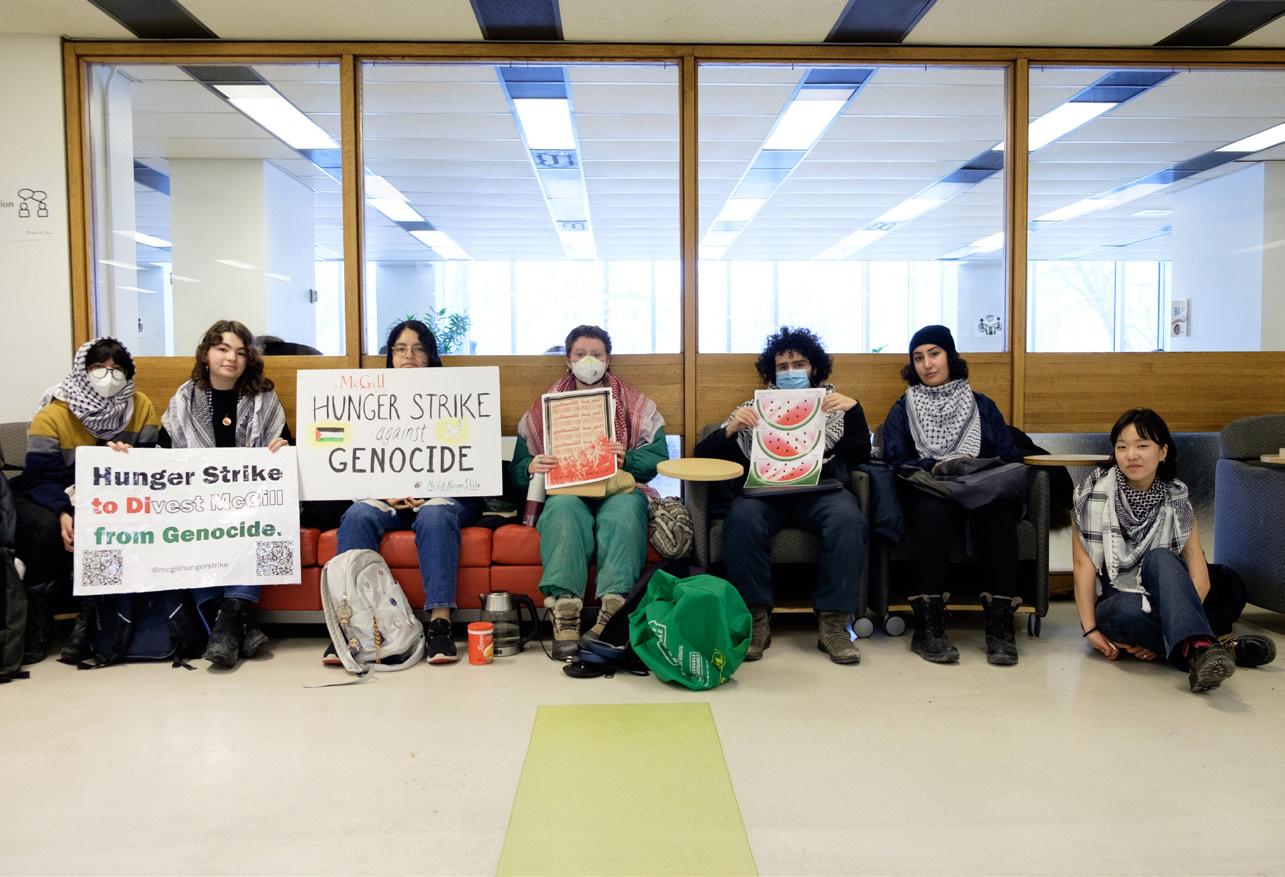
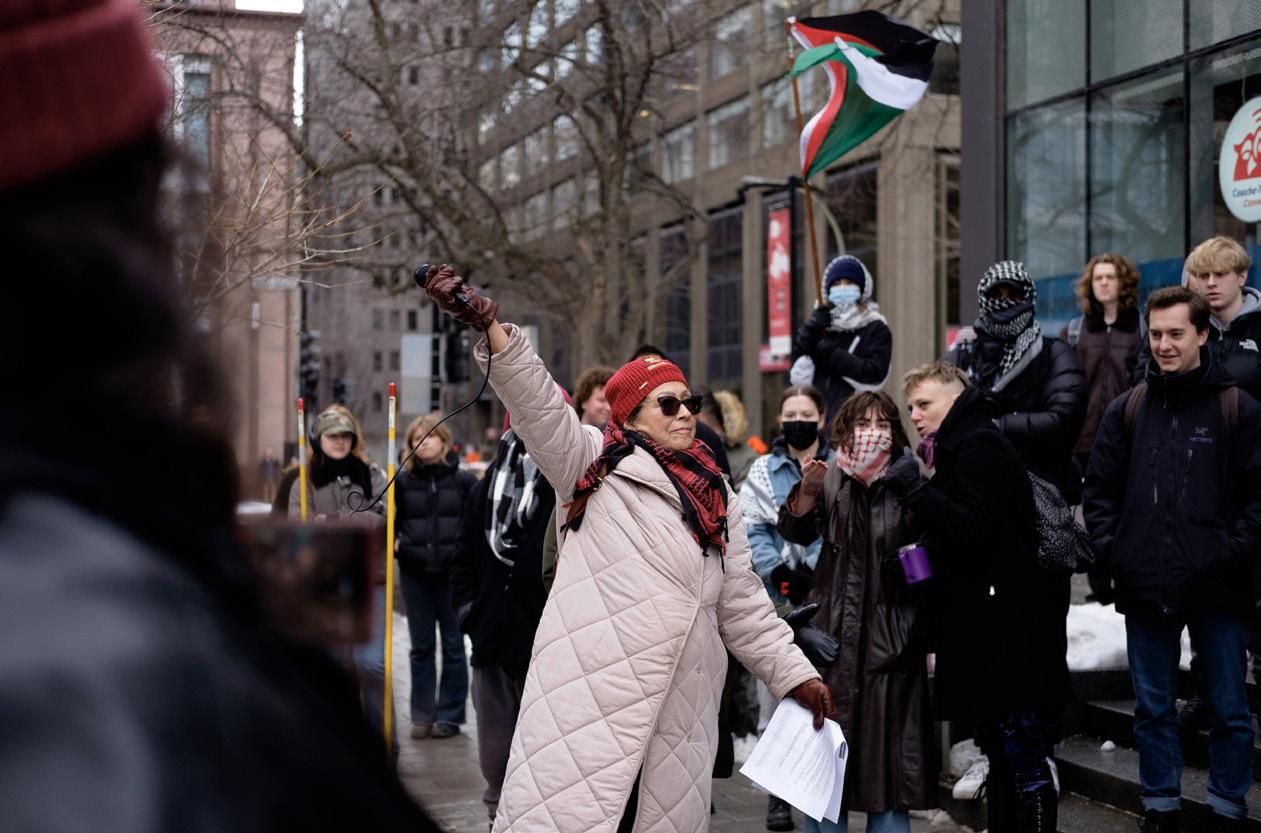



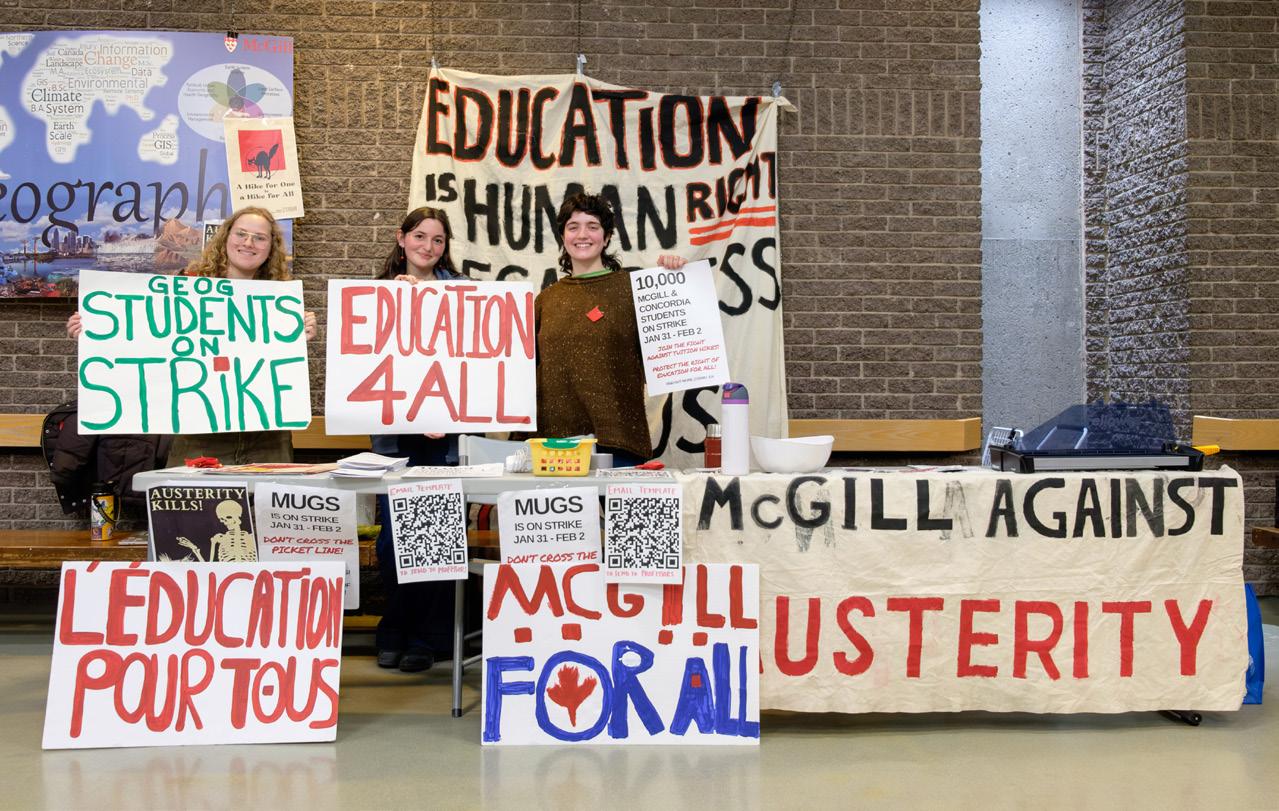


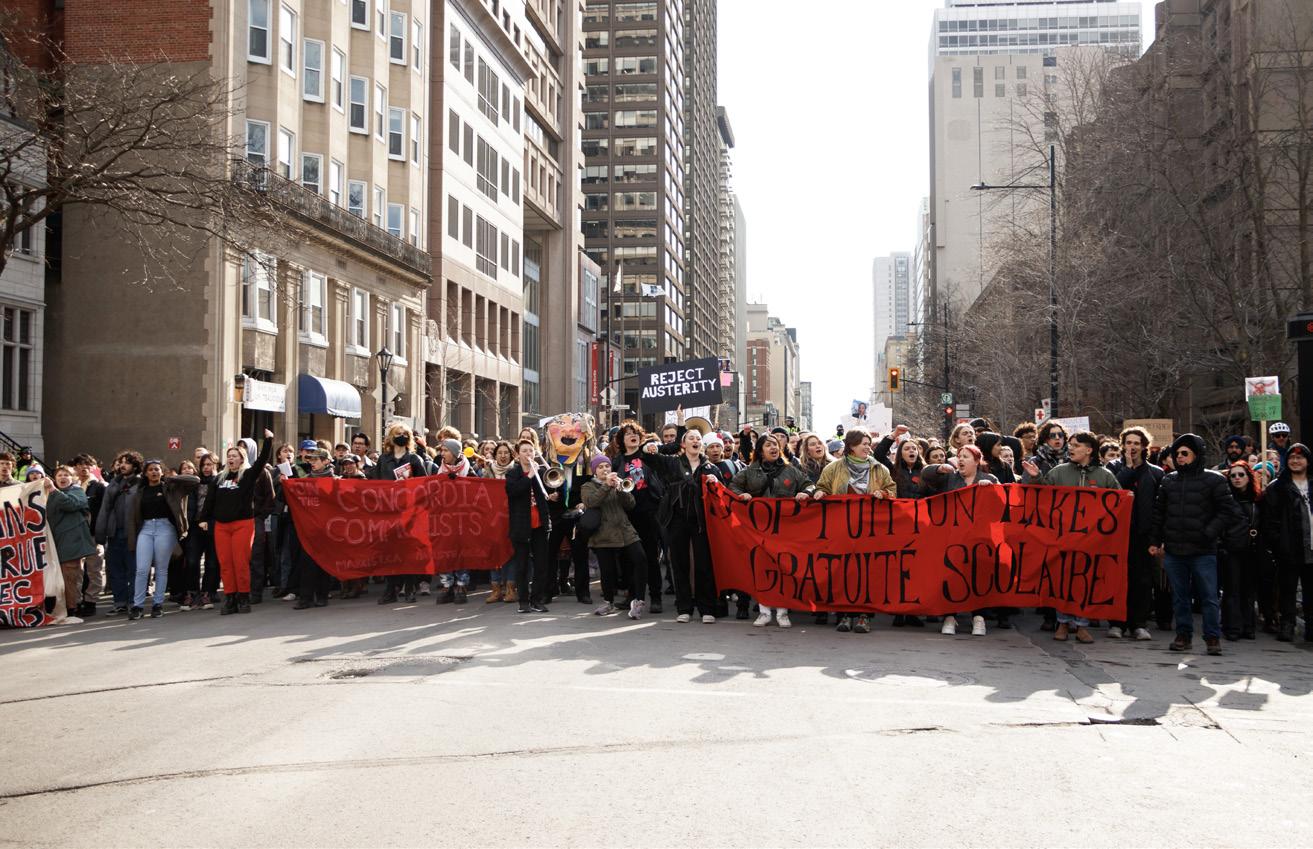

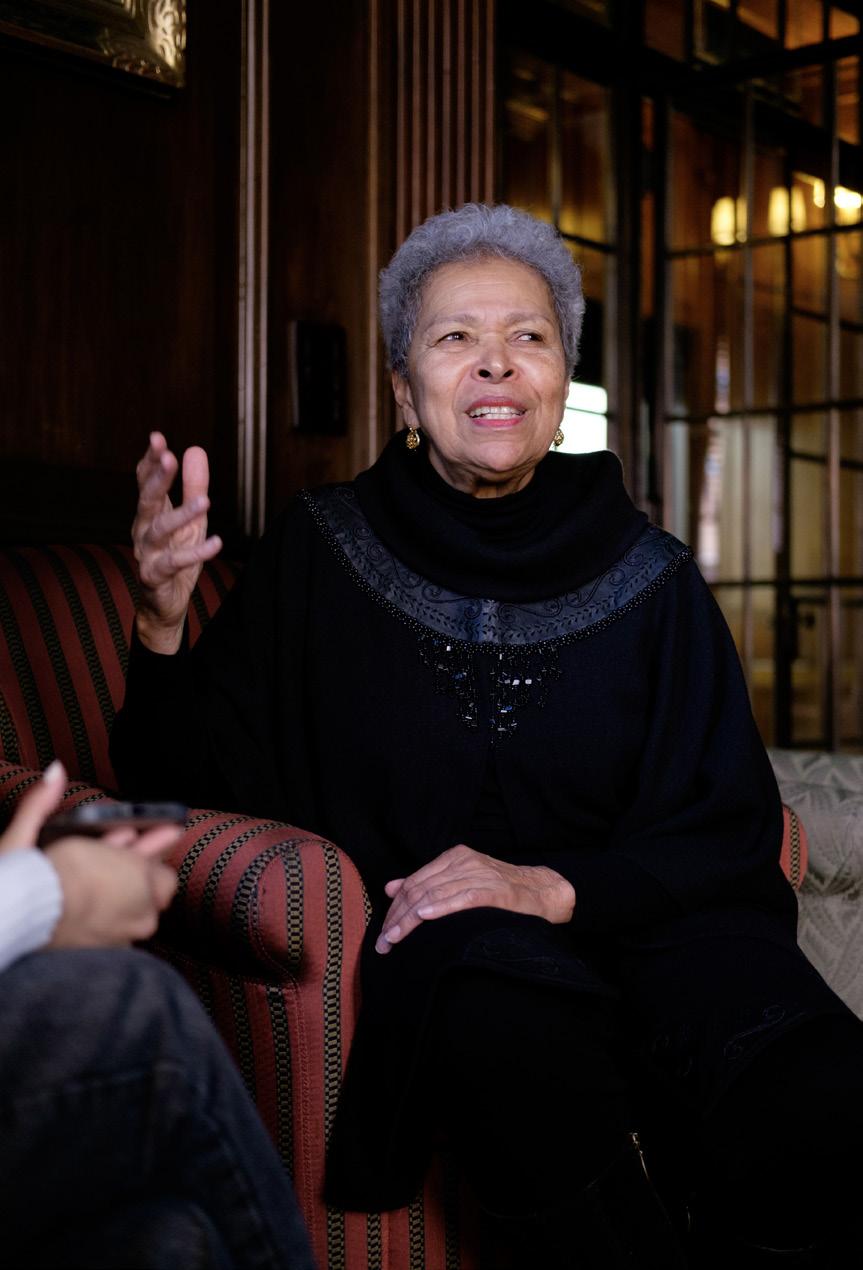

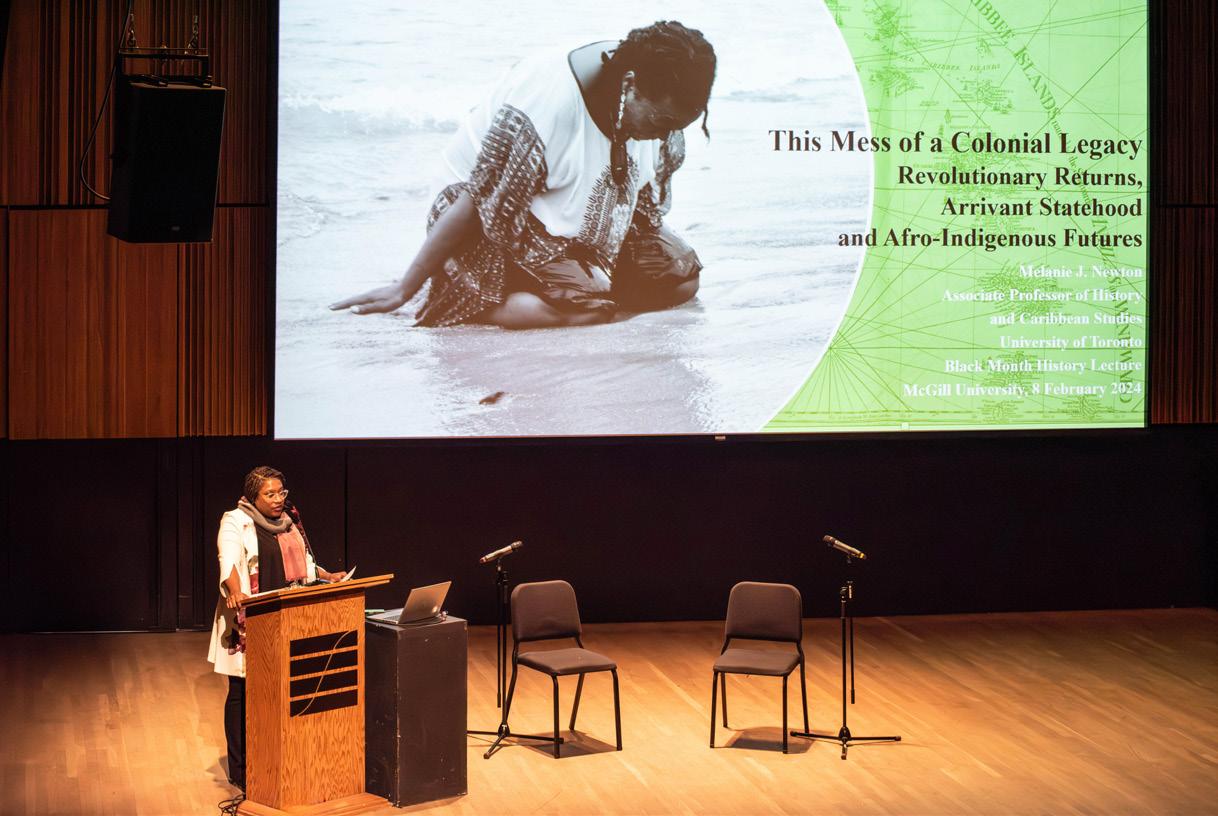
11 photo@thetribune.ca | PHOTO TUESDAY, APRIL 9 2024
Maïa Salhofer
Mason Bramadat
Mason Bramadat
Mason Bramadat
Maïa Salhofer
Mason Bramadat
Abby Zhu
A little taste of what it feels like to be: Pre-medical At McGill
The path to becoming a doctor has... vague guidelines.
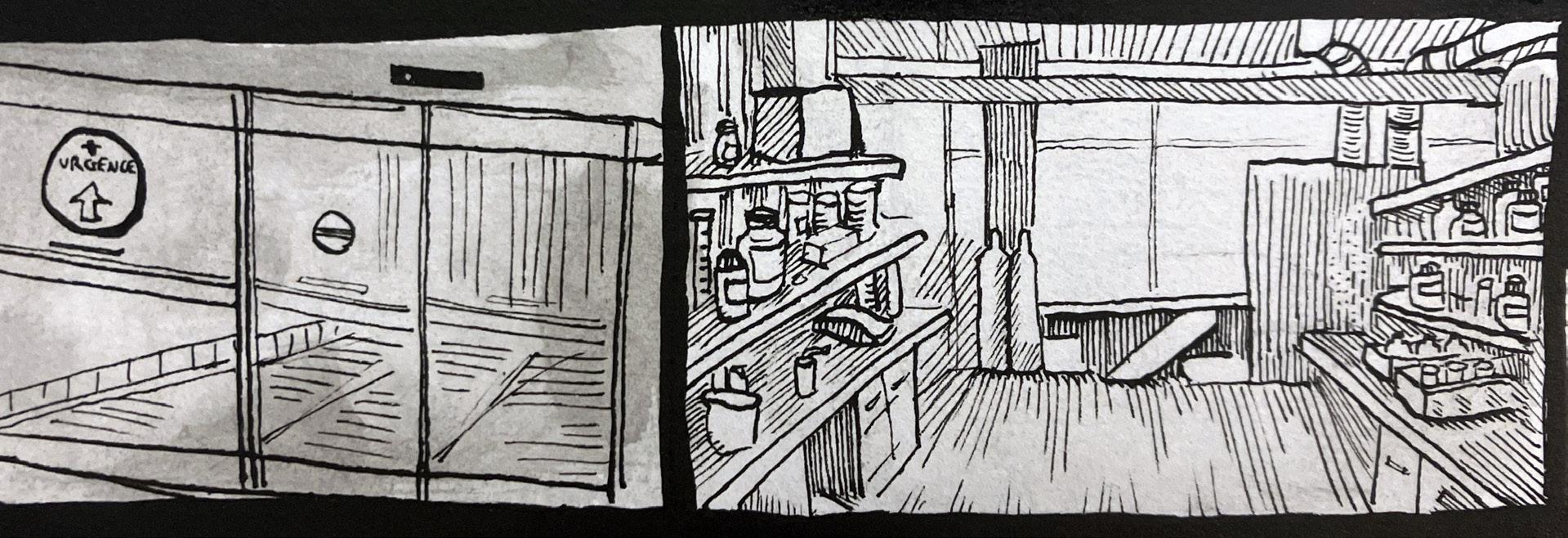
1. Do volunteer work to get hospital experience.
by Zoe Dubin, Design Editor
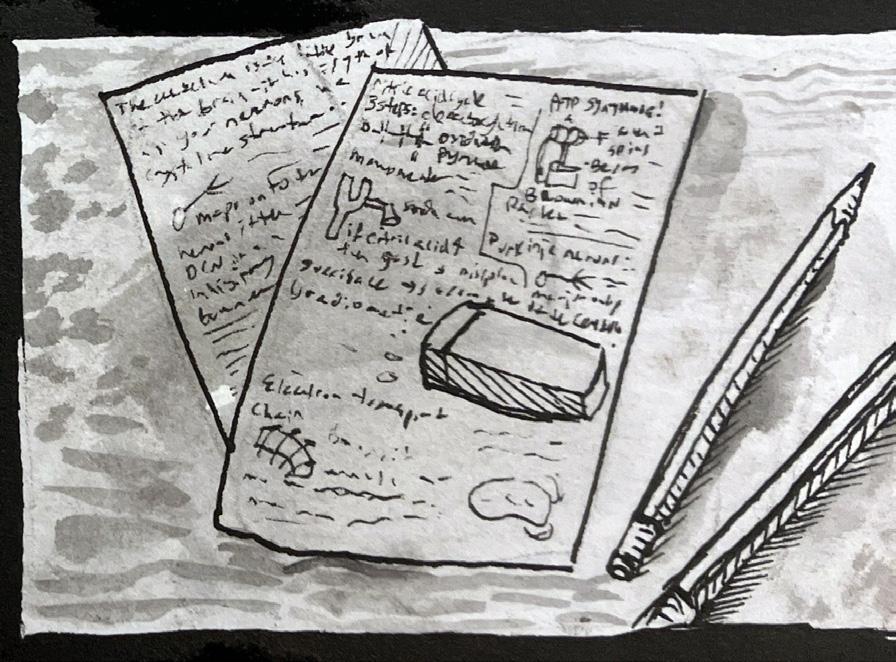
2. Work in laboratories to get a taste for the structures of research and a respect for controlled environments.
3. Do well in classes to prove your ability to play around with an overload of information.
All stories mentioned are from my own experience as a pre-medical student, or from anonymous undergraduates at McGill university.
“I volunteered at the Montreal Children’s Hospital, the night shift..”

“It’s hard to prepare yourself for being inserted into other people’s lives in such a deeply intimate way, but once you start your shift you just kick into action.”
“Because it’s the evening, babies need to be fed, and children who are alone need companionship before they go to sleep.”
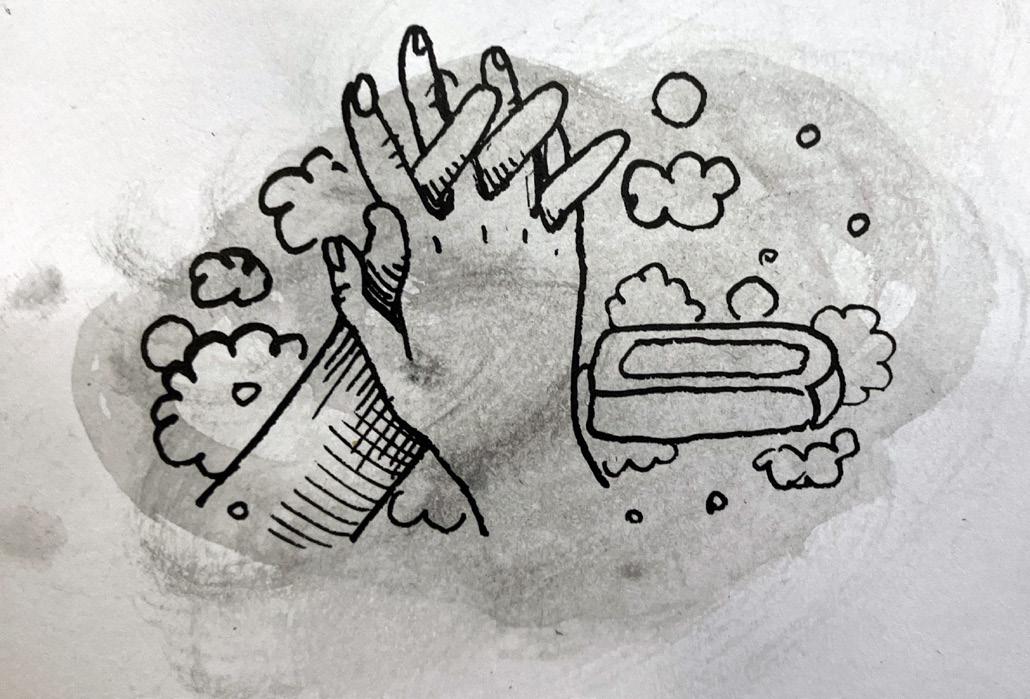
“They taught us how to wash our hands, to follow all sterile procedures when entering rooms. The emotional side, though, that was left to us.”
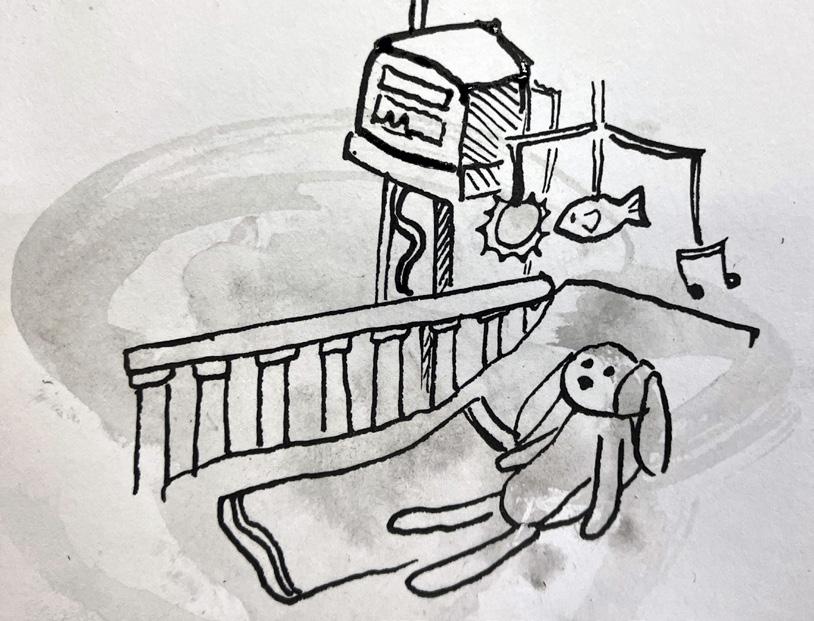
“Last summer I did an internship – I was matched with a PhD student and was helping her with her project.”
“It was the insect behavior department. Some people were doing bumblebees, some people were doing locusts, and our lab was doing fruit flies.”
“I was looking at the larvae, and doing social isolation of the larvae from birth and seeing if it affects how they act socially. To probe their social abilities, you put them in an arena. It’s a giant agarose plate. You track where they go in the arena.”
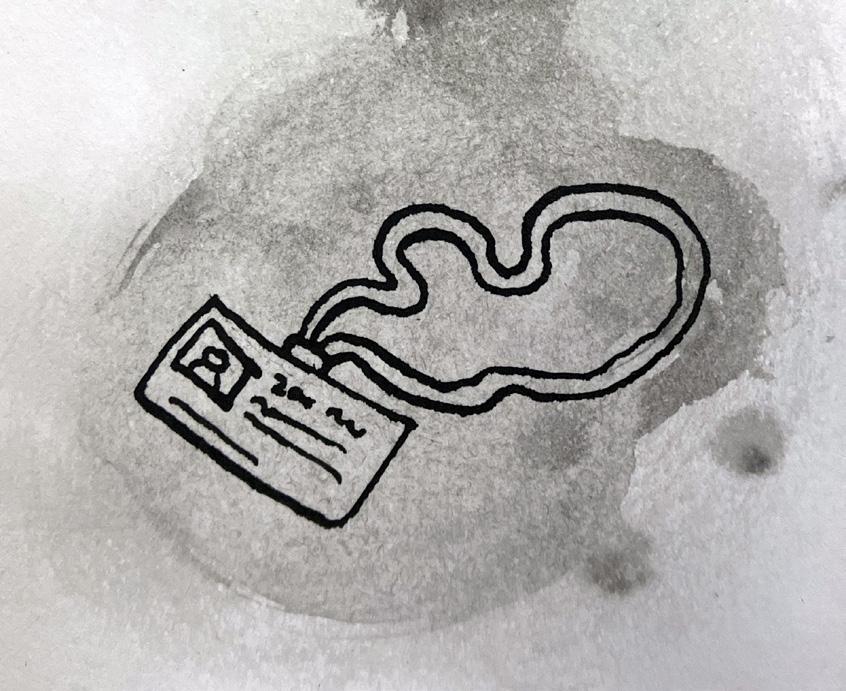
“Sickness is vulnerability, and it’s important to honor the person you’re with.”
“Usually, larvae live with a thousand other larvae all around, but the socially isolated larvae–the loners–would be more avoidant.”

“They do exhibit a lot of like complex behaviors even though they’re such a simple model organism.”

The kind of research lab you’ll find yourself in is variable.
“During the summer, I would wake up early at like seven or eight, and I would go to Redpath. I would be the only one in Redpath. I’d be in there and I’d see, outside, some dad’s brought his kid to the campus. And they’re playing catch.”
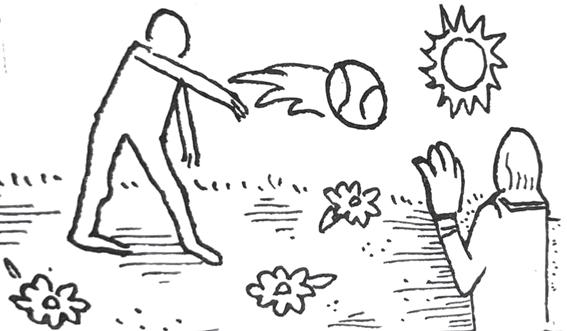
“And then I’d go into the lab.”
“[B]ut the issue is, even though I’m working there, my head’s still in the MCAT. So I’m not doing my best work.”
“After my work I’d be tired. And I’d want to fall asleep. But I would just go back to Redpath and I’d study.”
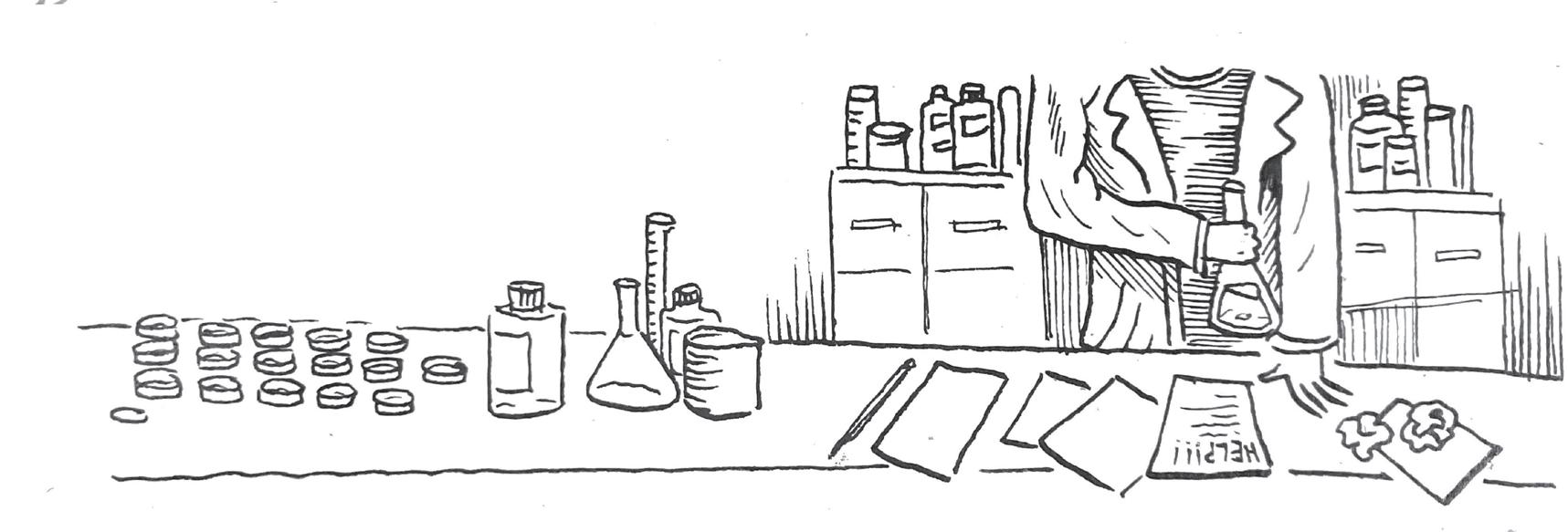
“I’m just overextending myself in a way. And I realized that if I were to continue that way, either my project would suffer, or my MCAT would suffer.”
“When you enter [the pre-med pathway], a lot of people are very prepared or do a lot of planning.”
“You create these kinds of schedules. And you know, you take steps towards [your goal]. You find some success, and you just keep building momentum. But after a certain while, it’s like, you don’t really know the reason why you’re doing things. You just know, it’s the next step.”
“You never really take a moment to breathe and think if you really want this or not.”
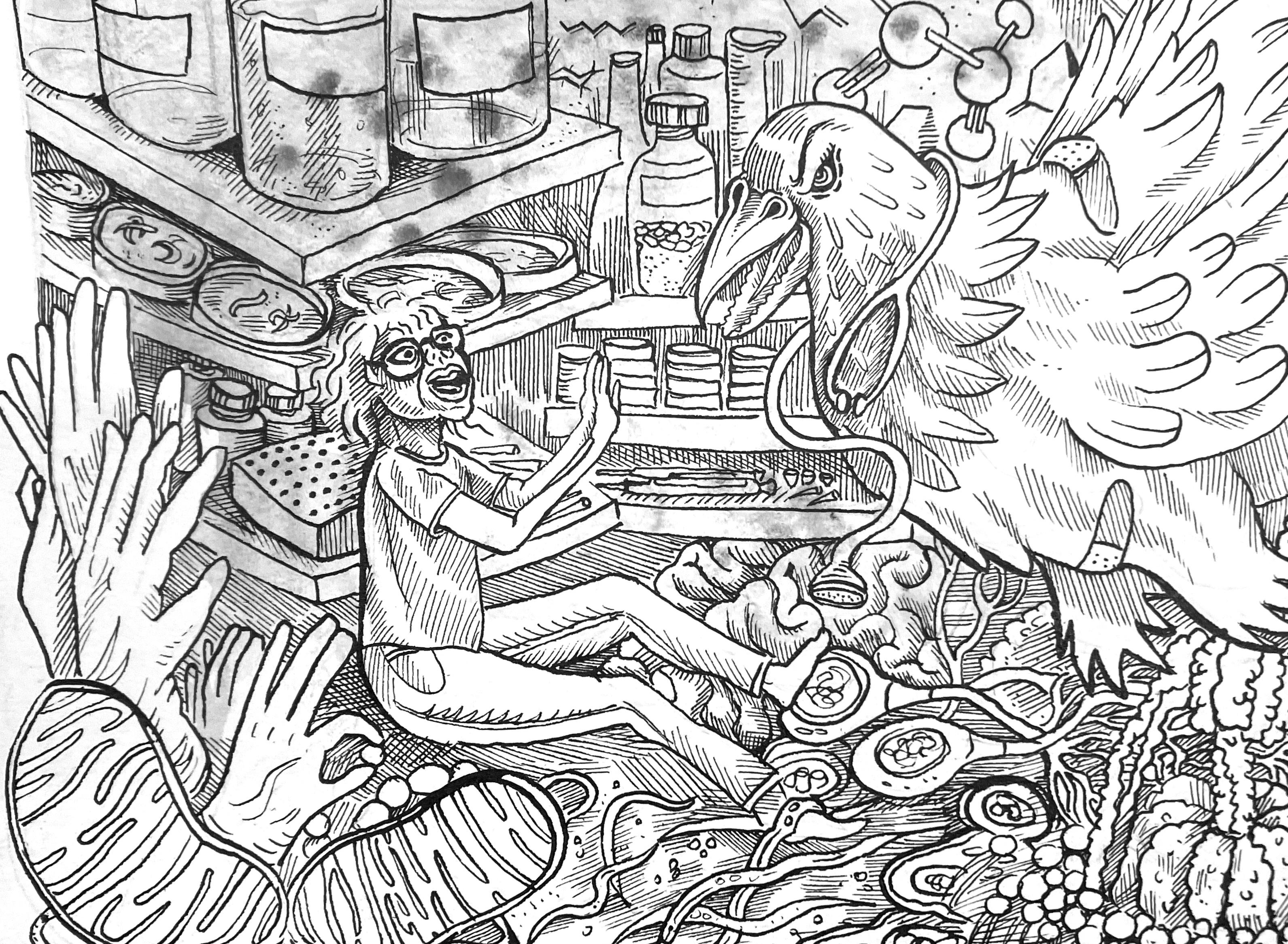
Thereare calm moments. Holdingthe hand of someone whoneedsit.Completinga perfect PCR fromstarttofnish .
“I shadowed my family doctor. I remember one time this guy came in there with his grandkid. And apparently, my family doctor had saved his life 10 or 20 years ago, and ever since he would drive an hour and a half and bring all of his family members to see her whenever anyone was sick. That’s what you work for.”
Sketches of the semester



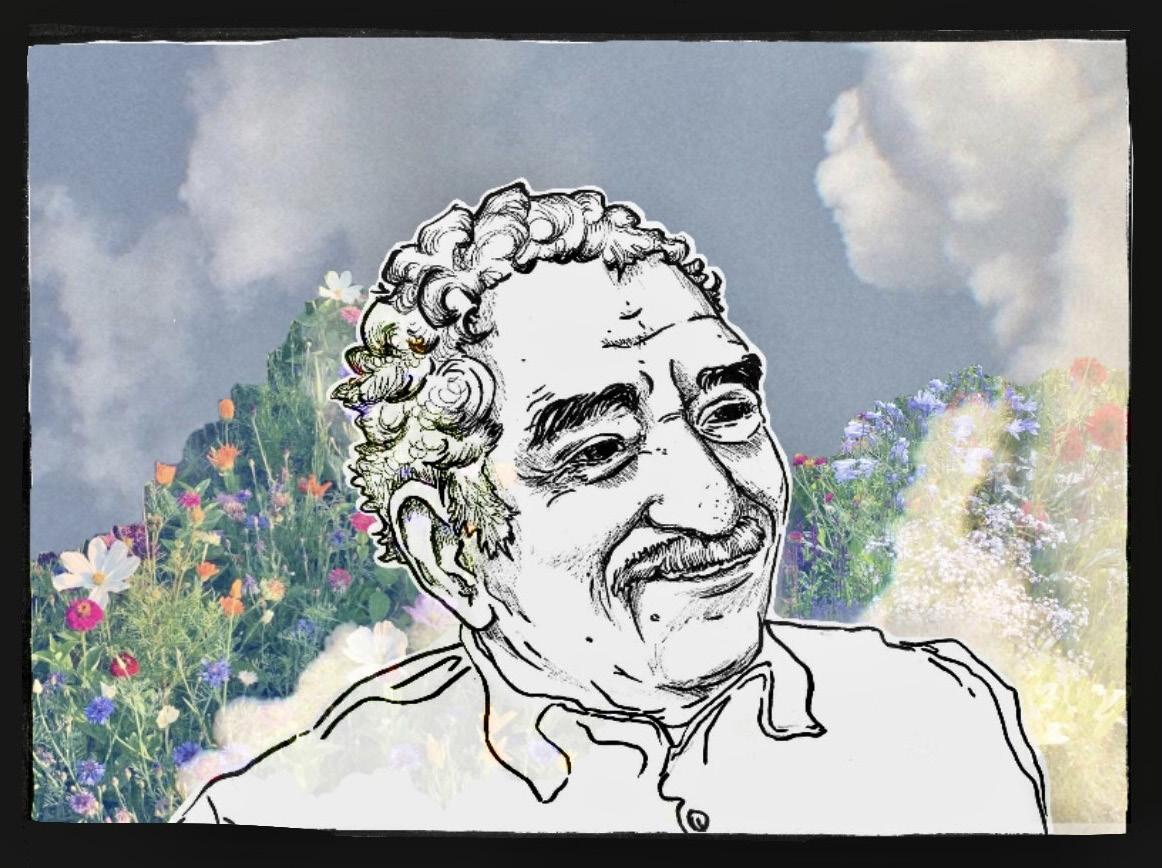

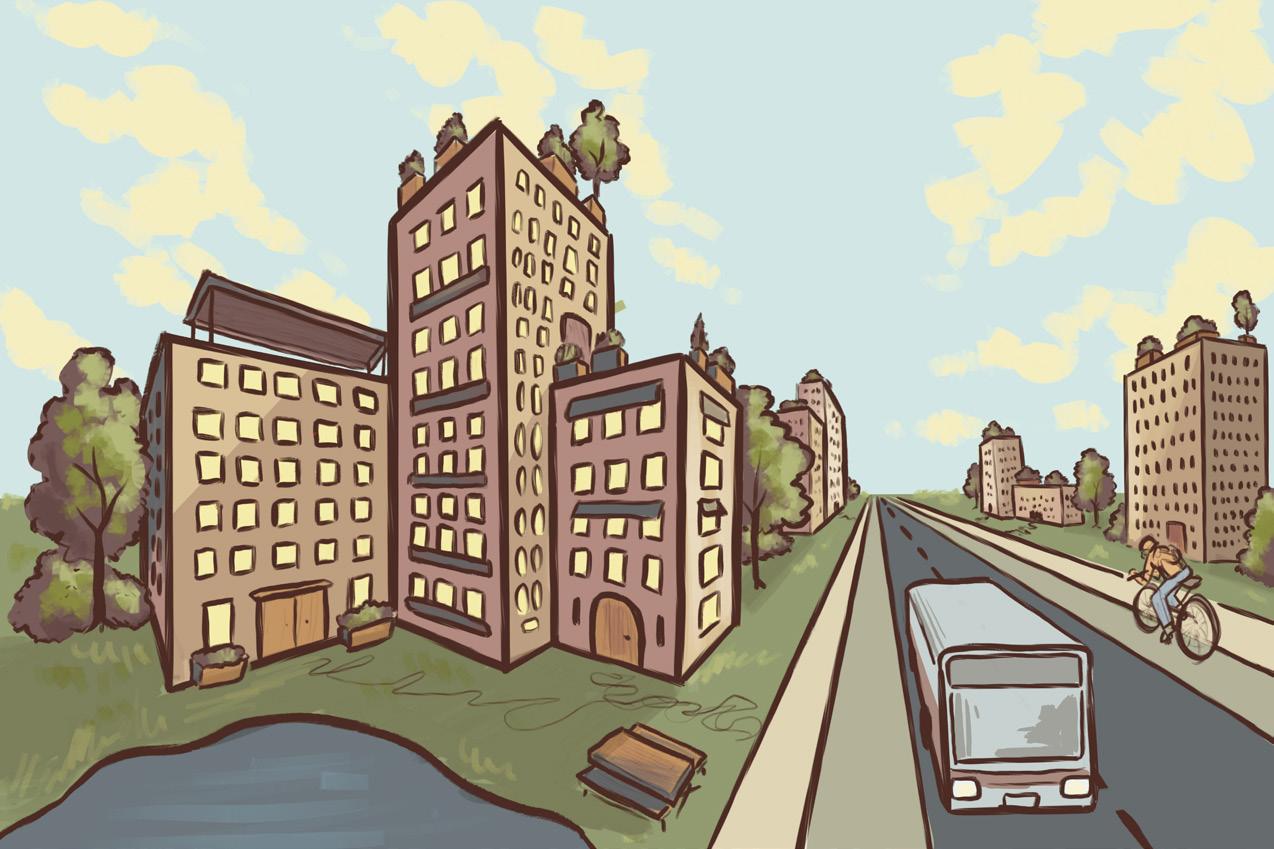
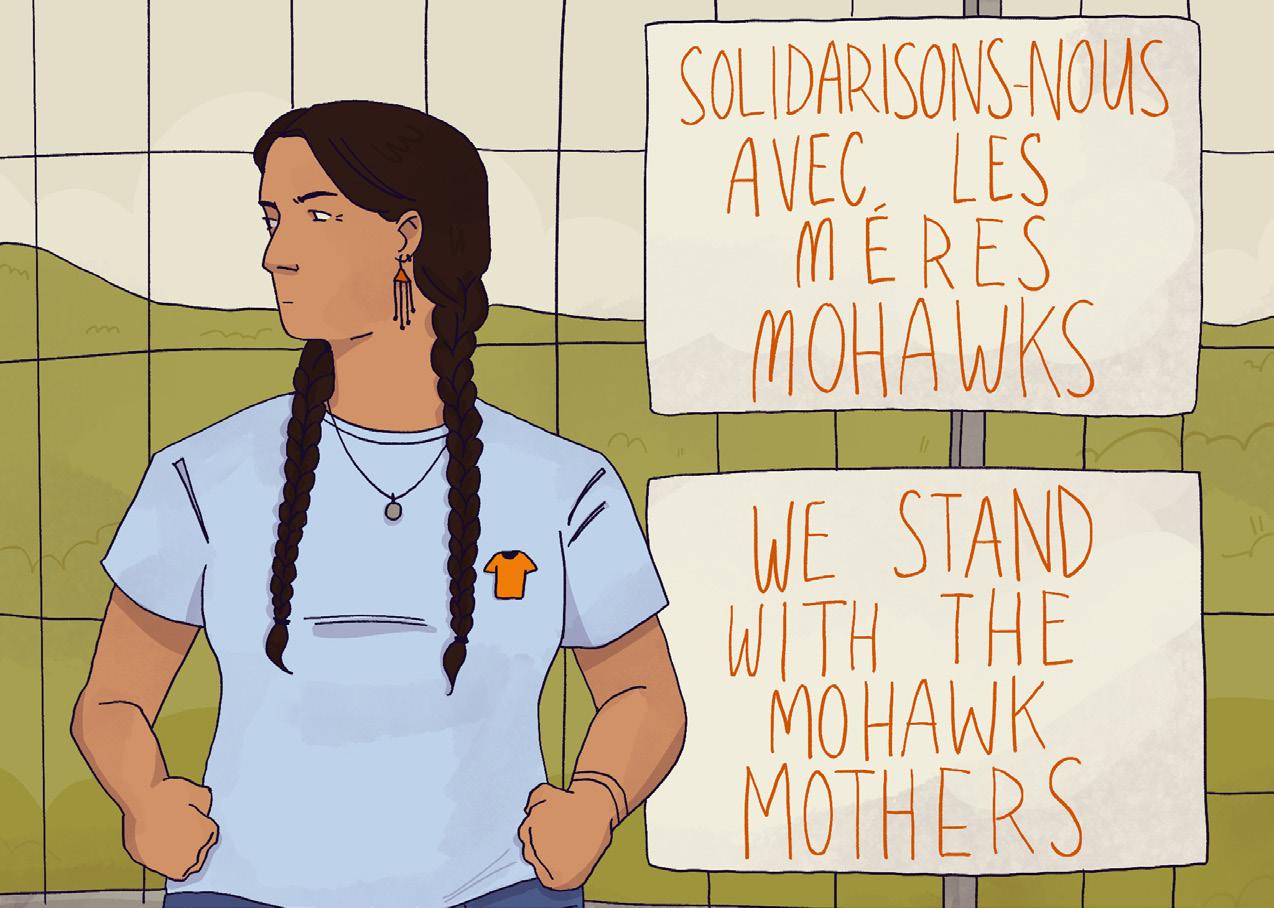
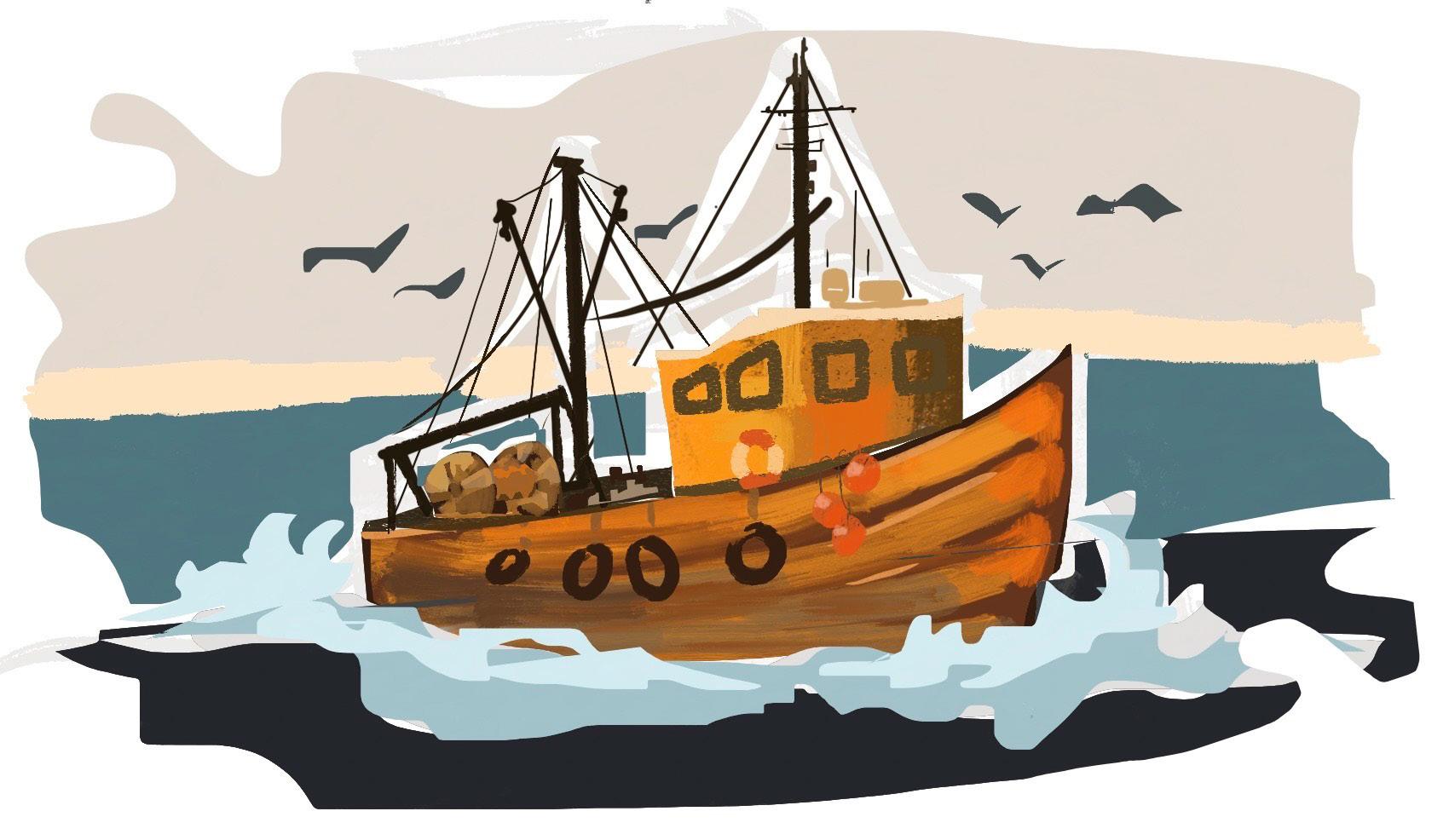
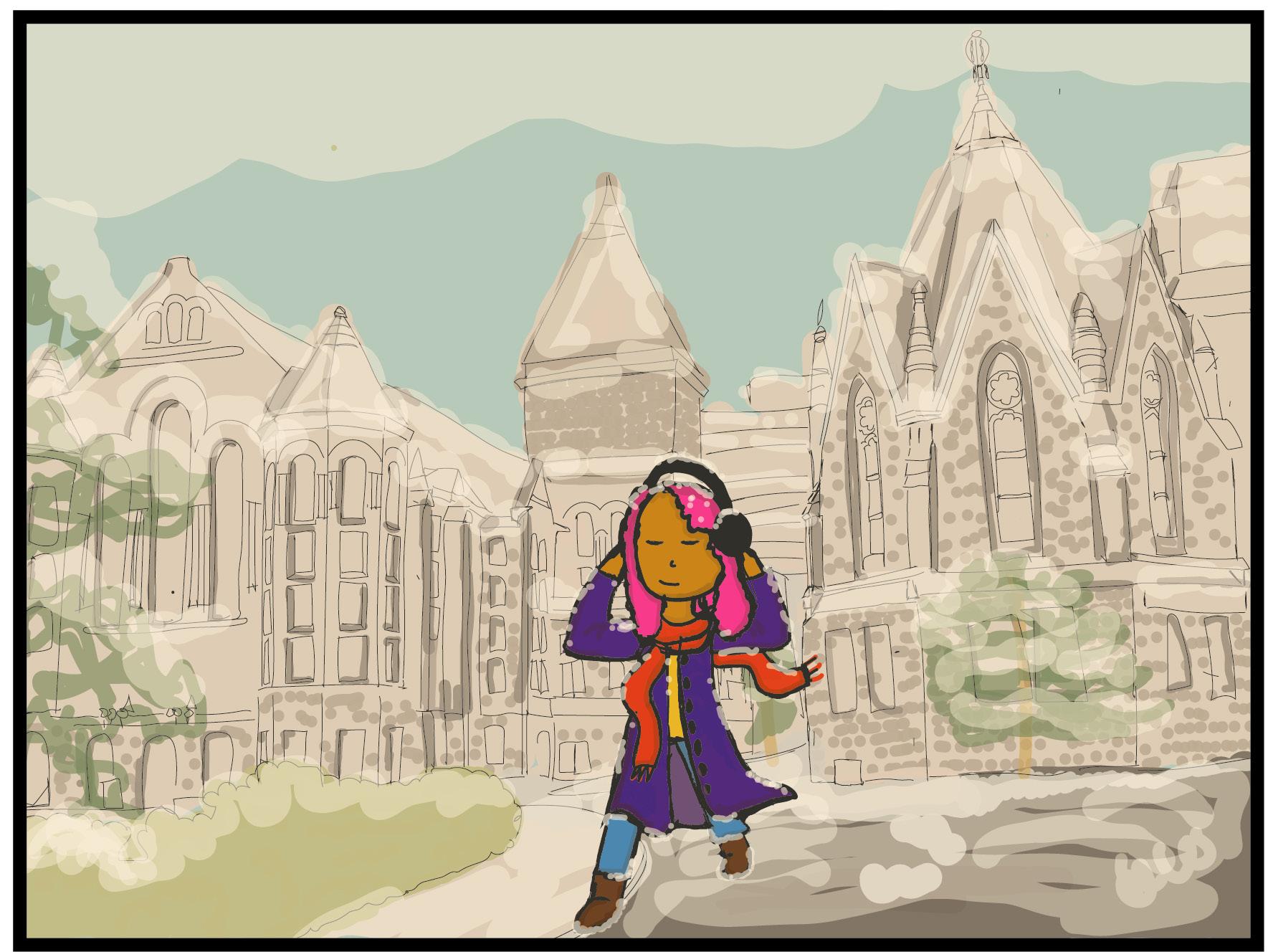
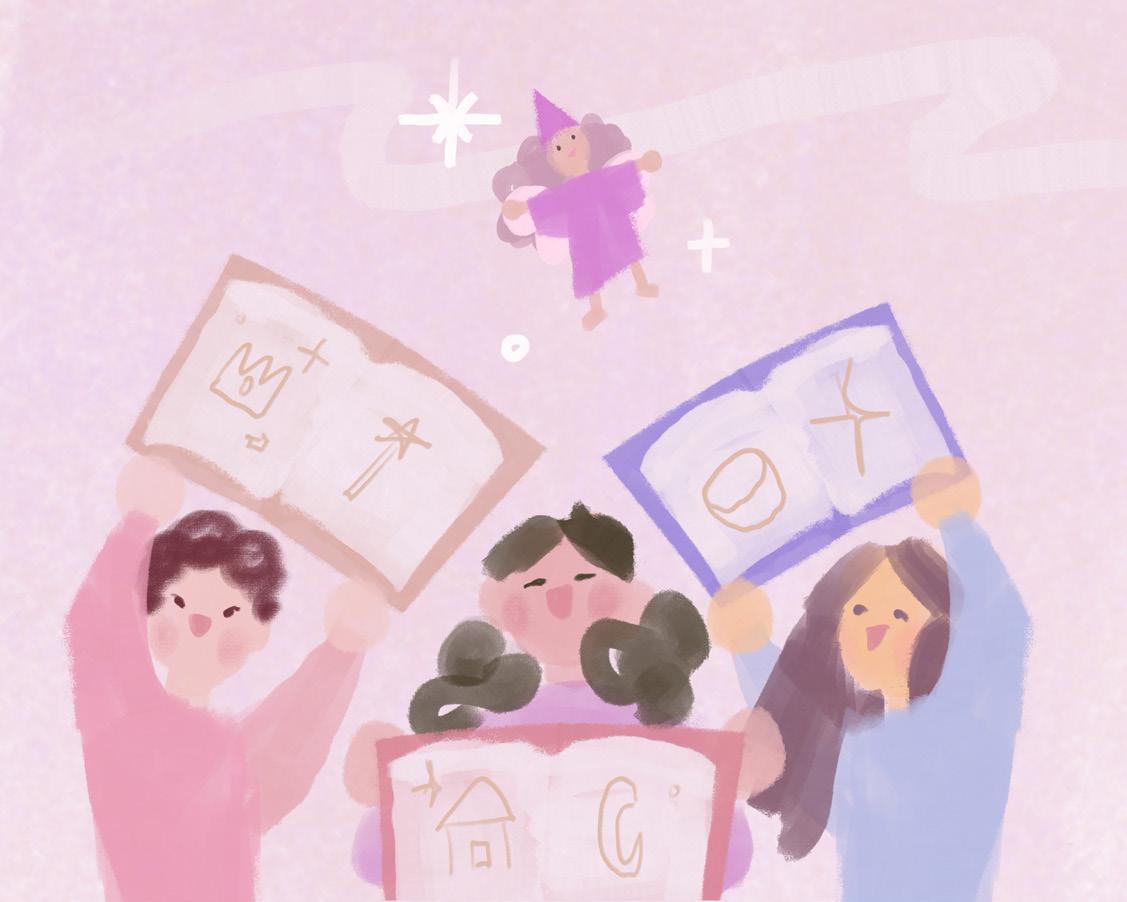
14 DESIGN | design@thetribune.ca
APRIL 9 2024
TUESDAY,
Zoe Lee
Drea Garcia Avila
Mia Helfrich Abbey Locker
Irina Zhang
Julia Buckle Abbey Locker
If these stalls could talk
What your favourite on-campus bathroom says about you
Simi OgunsolaContributor
As the year comes to a close, we at The Tribune have been reflecting, and one topic of our reflection has been the hallowed bathroom stalls across campus. But what does your go-to bathroom say about you?
Leacock basement bathroom
You’re an Arts student, but that’s just your part-time gig. Full-time, you’re breaking necks, dropping jaws, and slaying in your role as resident McGill fashion icon. People say that the school has a fashion culture because of you. Every class is a runway show, and every stride through the Y is a catwalk. If McGill has taught you anything, it’s that your suburban hometown held you back. You are a star. Now get that mirror fit-pic, baddie!
OAP Porta-Potty
SSMU basement bathroom
Not to be confused with the seasonal OAP-porta-potty regulars, you are committed to the celebratory lifestyle. Sessions in McLennan followed by a run to Gerts is your version of a Pomodoro timer. You’re not afraid of a 20-page essay, or problem sets so long as there are celebratory cheers on the other side of it. You embody McGill’s work hard, play hard spirit, and execute it with pride, and you know what? We salute you.
SSMU fourth-floor bathroom
If more than once, you’ve found yourself reaching for a nonexistent roll of toilet paper to wipe your tears, then you’re probably a club executive holding it together by a thread on the fourth floor of the SSMU building. Your ideas are incredible, obviously. You’re always right, clearly. You are the heart and soul of that team, and everyone there is lucky to have you! But right now, take
You are probably laughing while reading this, even though I haven’t gotten to any jokes yet. You’re here for a good time, not necessarily a long time (especially if your essay due at 11:59 pm has anything to say about it. Yeah, remember that?). Nonetheless, you are the lively spirit that we need here at McGill, reminding all of us that we’re only young once, everyone’s trying their best, and we need to take time and celebrate ourselves.
a breath, and take a moment. Whatever crisis needs averting will be solved, I promise.
McGill Gym bathroom
You are a beast. You are Thor. You are… hoping no one was paying close attention to your form during that last set of bicep curls. If the bathrooms down the hall from the gym are one of your favourite haunts, then you are a McGill gym baddie. You hit a question set in the AM and quads set in the PM. Day in, day out, you’re here grinding and getting better and praying not to have a surprise cameo on Spotted: McGill.
Stewart Bio fifth-floor bathroom
You are a STEM baddie and McGill’s resident Rapunzel, locked in your tower atop the hill, wondering when will my life beginnnnnn? You are the best of us; stay strong soldier.
McLennan third-floor bathroom
If you routinely find yourself in the third-floor bathroom in McLennan, then life is a cruise ship, and you’re the entertainment director. And the third floor is your lido deck. You and your huge group of friends regularly regale the entire floor with your gossip
and jokes, always making sure that everyone can hear you (wouldn’t want anyone to miss out on the tea, right?). You like to think of the library as both a place for studying and socializing. You know how sad the mood can get during finals, so you’re always there to bring the vibes up. Like, all the time. It’s a tough job, but you’re up to it. Besides, what would we all do without you?
McLennan sixth-floor bathroom
You are a soldier, you have nostrils of steel, and (I hope) shoes with thick soles.
McLennan-Redpath Complex first floor bathroom
If you often find yourself under the bright lights and endless stalls of the McLennanRedpath Complex first-floor bathroom, then you are… all of us. You’re clocking in and chasing that degree one day at a time. Maybe you know what your future holds, or maybe you’re just happy to be here. But either way, you’re showing up, learning, working hard, and looking amazing doing it (upholding our reputation as Canada’s hottest university). Keep going, kid. Good luck this finals season and go easy on the


Making the most out of your McGill degree
How to enjoy your very short time here
Maria Gheorghiu Staff Writer
In two weeks, I’ll be submitting my last assignment of my undergrad. In two weeks, it’ll all be over. I can’t help but think back to the anxiety and the stress I had at the beginning of my first semester, four years ago. I was worried that I wouldn’t make friends, or that I would fail. Two years ago, I almost dropped out. But through all my ups and downs, I think I’ve finally grasped what university is all about, and more importantly, what I could have done differently to make the most out of it.
There’s more to school than school
If there’s one thing I wish I had done, it’s saying yes to all the social events that came my way. The hardest pill I’ve had to swallow is that having a stellar transcript and a CV to match isn’t an entry ticket into my dream graduate program and that I might find myself thinking about the sacrifices I’ve made in my social life with sorrowful regret. If you’re starting your degree this fall, or even if you’re entering your last year, take advantage of the social scene at McGill. Befriend the people around you in class, and go to events in your department. It’s worth missing a few hours of studying.
Find joy in your time here
The only thing that makes time go by more slowly is thinking about how slowly it’s going by. We have all had to take courses we don’t like—personally, I hated most of my prerequisites—but that doesn’t mean that everything else has to be dull. It took me seven and a half semesters to learn to get creative with the classes I take and get out of my comfort zone, but it was the best decision I’ve ever made. Joining clubs and student societies in your department can also give you a way to truly enjoy going to school. Choosing my classes based on pure interest and being part of a community is the part of my time here that I cherish above all.
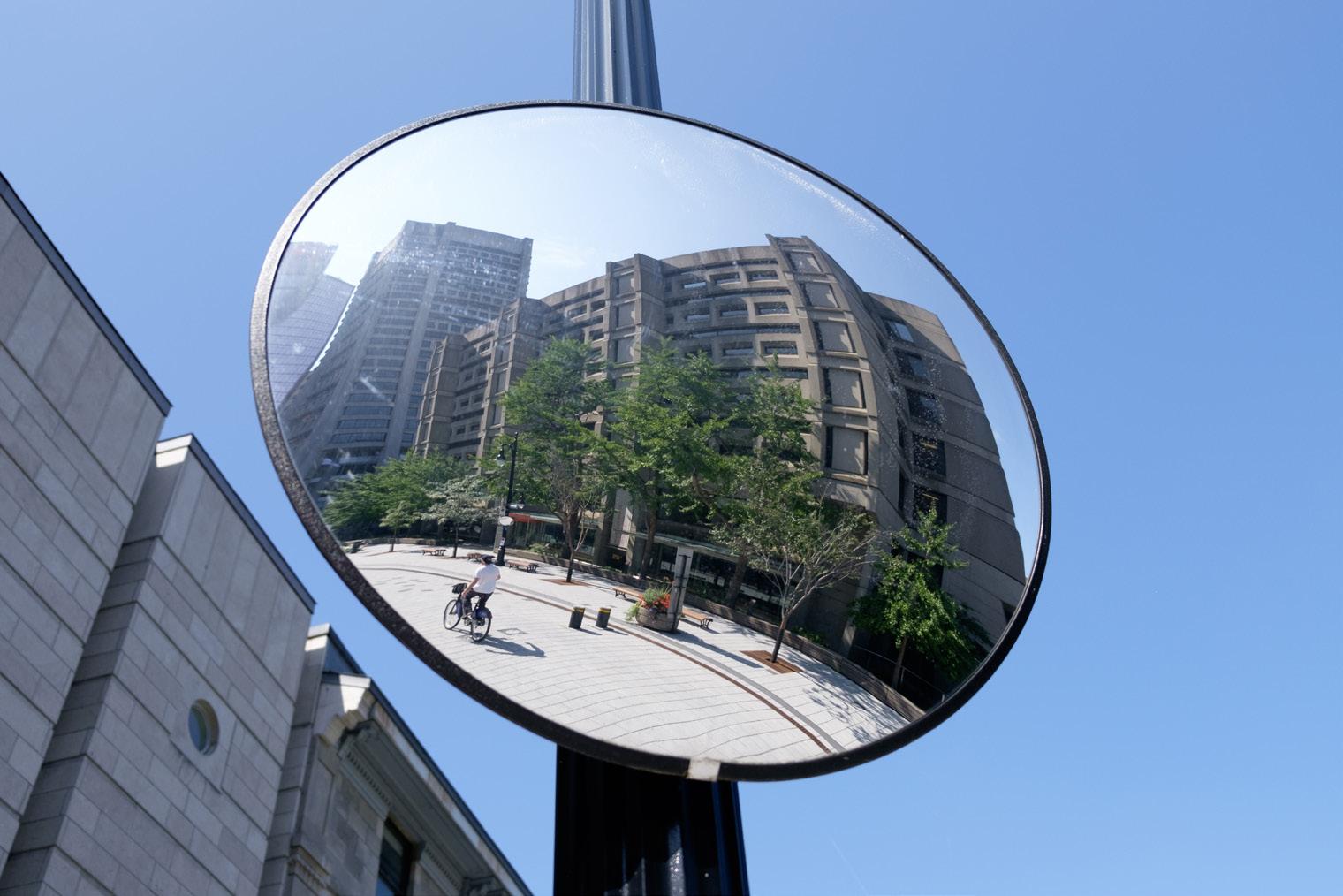
Your profs are your friends I’m a keener. I’ve gone to random lectures for the pleasure of learning, I’ve crafted all my schedules to maximize my enjoyment, and I’ve written an honours thesis just because I wanted to. Above all, I’ve loved going to office hours, mostly to discuss assignments or class material, but sometimes simply just to chat with my professors. I’ve formed a rapport with people who are experts in their fields, which has helped me to understand what aspects of my field of study I want to explore. You don’t have to bury yourself in your books to succeed in college; sometimes, talking to your professors every once in a while is enough to guarantee you’ll do just fine.
Find beauty in the mundane of your everyday life
Not every day is going to be good. Some mornings, you might wake up and feel like the last thing you want to do is go to your lecture. It’s normal to feel overwhelmed when you have to juggle the problems in your personal life, impending midterms, and assignments that won’t write themselves while the weight of the world feels like it’s resting on your shoulders. But sometimes it’s worth putting everything on pause if only to appreciate how beautiful life can be. I’ll miss walking around a foggy campus after leaving my 5:30 lectures in
the fall or looking out the window during an intense study session just to see the first snow peacefully drifting by. I’ll miss the relaxing feeling of repotting my plants just because I didn’t feel like thinking about my midterm anymore. I’ll miss the small things about McGill that I took for granted. Romanticize your degree–you’re only here for so long.

15
A Myers-Briggs-esque breakdown of the various campus thrones (James Knechtel / The Tribune)
Graduating in a few weeks has allowed me to look back on what I cherished the most about my degree. (Mason Bramadat / The Tribune)

How to deal with the end-of-semester blues
Tips and tricks to keep smiling in these rough times
Auxane Bussac Staff Writer
ibraries are filled to the brim and dark circles are beginning to set in around students’ eyes: Finals season is almost here. Should we start studying or take some time to rest? It seems that even the weather can’t pick a side. Here are some tips to help manage stress and build a healthy studylife balance.
Maintaining healthy habits
Taking a breath of fresh air
This time of the semester is particularly hard because there is so much on our minds, whether it be facing academic deadlines, deciding what to do for the summer, or dealing with how to sublet your apartment while you’re away. Whatever it is, letting go of the stress on your shoulders is important for your productivity and mental health. Going for walks has been shown to have many health benefits, including reducing stress. Your brain needs air to function, and so do you. You can also go jogging if raising your heart rate seems like it would help you let off some more steam. No matter if you’re running or walking, put on your favourite playlist and take your mind off of schoolwork for a little while. A healthy study-life balance requires doing things that are not schoolrelated—you might as well kill two birds with one stone by doing something good for both your mental and physical health.
During these tough times, it becomes tempting to eat whatever is most convenient— snacks, frozen meals, and take-out. But keeping your body healthy and happy is the first step toward better mental health. Filling your stomach to regain some energy is crucial, so eating frequently and enough should not be overlooked. Take time every day to have three consistent meals. One way to be efficient and save some money is to prepare meals ahead for the whole week so that you don’t need to spend time cooking every day. Budget Bytes gives wonderful tips on meal prepping. Sleep is necessary to be productive; so, though it’s tempting, don’t pull an all-nighter. Instead, try to organize yourself with clear daily objectives and consistent sleeping hours in mind so that you have a game plan and don’t need to drastically disturb your sleep schedule.
Thank
Engaging with fellow students
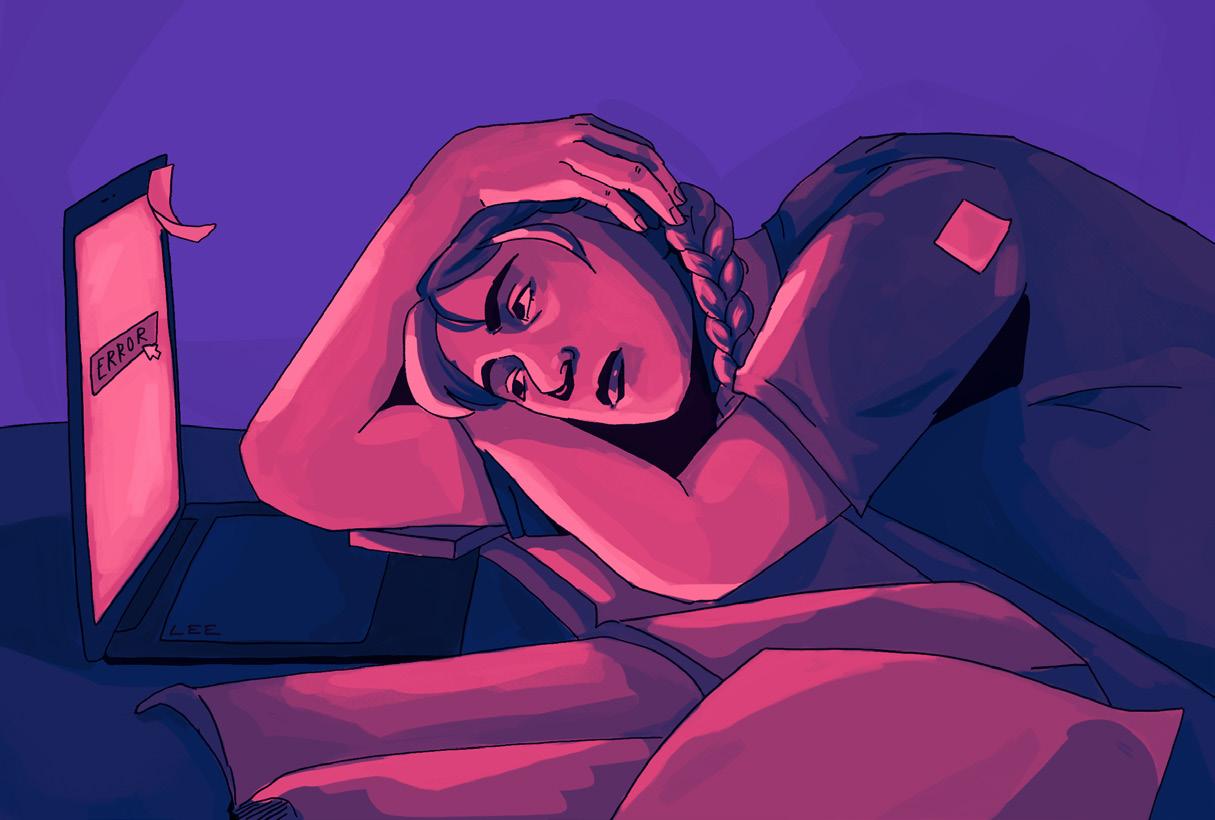
Even though it might feel like you are alone, plenty of other students are in the same boat. If you start feeling overwhelmed with the amount of work you have while you’re sitting in the library, just take a look around. Talk to your friends who are undergoing the same struggles— it might not take anything off of your to-do list but at least it will make you feel understood. Don’t forget to chat about topics not related to your studies as well.
If you’re feeling like talking to someone who you don’t know who has been trained to help, the Peer Support Centre offers confidential and nonjudgemental guidance from fellow students. Regardless of what you decide is best for you, don’t be scared to reach out for help and reassurance that you’re not alone—your mental health matters, and talking about it is not a weakness.
Looking ahead
The only thing you probably see on the horizon right now is finals. However, you might want to look beyond that. Even though the sun is shy and sometimes hides behind the clouds, it still makes the occasional appearance, reminding us of the arrival of summer. Whatever your summer plans are, the change in season will offer a new start, warmer weather, and hopefully. some much-deserved rest.
Students in crisis should contact Suicide Action Montréal at 1-866-277-3553. For an appointment with a doctor, wellness advisor, or mental health counsellor, students can contact case managers at the Office of the Dean of Students, call the Wellness Hub at 514398-6017 Monday through Friday, or go to the Hub’s website for more information. To consult with the SSMU mental health commissioner, email mentalhealth@ssmu.ca.
Morrice Hall Porter Fred Vardon retires after 44 years at McGill
Noor Bhaghani
Contributor
Ifirst got to know Fred Vardon in my second year at McGill, after seeing him every night at 8:55 p.m. in the Islamic Studies Library. Right before closing at 9 p.m., Vardon would empty the trash can by my adopted desk on the second floor, and that was my signal to pack up and head home. Those of us with an anxious attachment to Morrice Hall— its warm nooks, high ceilings, and that one comfortable couch—may also be familiar with Vardon’s famous friendly face. For those of you who don’t know the comforts of Morrice, Vardon is the porter.
After caring for the building for nearly ten years, he has become a part of its ecosystem, intertwined with every surface and wall that he wipes down.
Vardon is retiring this September. Before he retires, I thought we’d hear some of the stories he has to tell, and how he came to form the affinity he has for McGill. Vardon, a native Montrealer, has been with McGill for 44 years and has developed a unique relationship with the student body, and many hilarious accounts attesting to McGill’s wildest years.
In an interview with The Tribune , Vardon recalled that in the ’80s there was a skiing
race down McTavish and beach parties in Gerts—which, back then, occupied four floors. One morning, after a huge party, he got a call from his supervisor asking him if he had heard from the cops. When he said no, he was told that some students went into the vehicle he was working in the night before to smoke a cigarette, and lit the whole thing on fire.
“The wheel and dashboard were completely gone,” Vardon laughs.
It’s clear that times have changed. Vardon says McGill students today are more studious than back in the ’80s and ’90s; he used to have to pick them up off the floor after their pre-finals 72-hour cram because they hadn’t gone to school all semester. Although he was never a student at McGill, Vardon has had some wild times on campus. In 1997, he had his wedding reception at the Alley, the pub that used to be in the basement of the SSMU building.
“It was an open bar, and we got all the wine bottles for $5 [...] it was fun,” Vardon said. It was also catered by McGill Food Services, where he worked at the time, before becoming a porter in 1999.
Despite the roar of the late ’80s and early ’90s, one of Vardon’s most cherished memories is when a student he knew became valedictorian.
In her speech, she gave Vardon a shout-out, saying she couldn’t have made it without him feeding her and making her smile along the way. Vardon tells me that every year, he gets to know the ten students who run the theatre next to his office on Morrice Hall’s first floor. When his favourite barbeque place, Bar/B Barn, was still around, Vardon used to bring ribs for everyone on the closing night of the play.
Vardon’s memories reflect his fondness for the McGill community and the kindness he has shared with students throughout the years. His favourite spot in Morrice is the Islamic Studies lounge because that’s where he has said he has made many friends. Sumaria Nawaz, a Ph.D. student at the Institute who frequents the lounge, elaborated on Vardon’s connection with the student body.
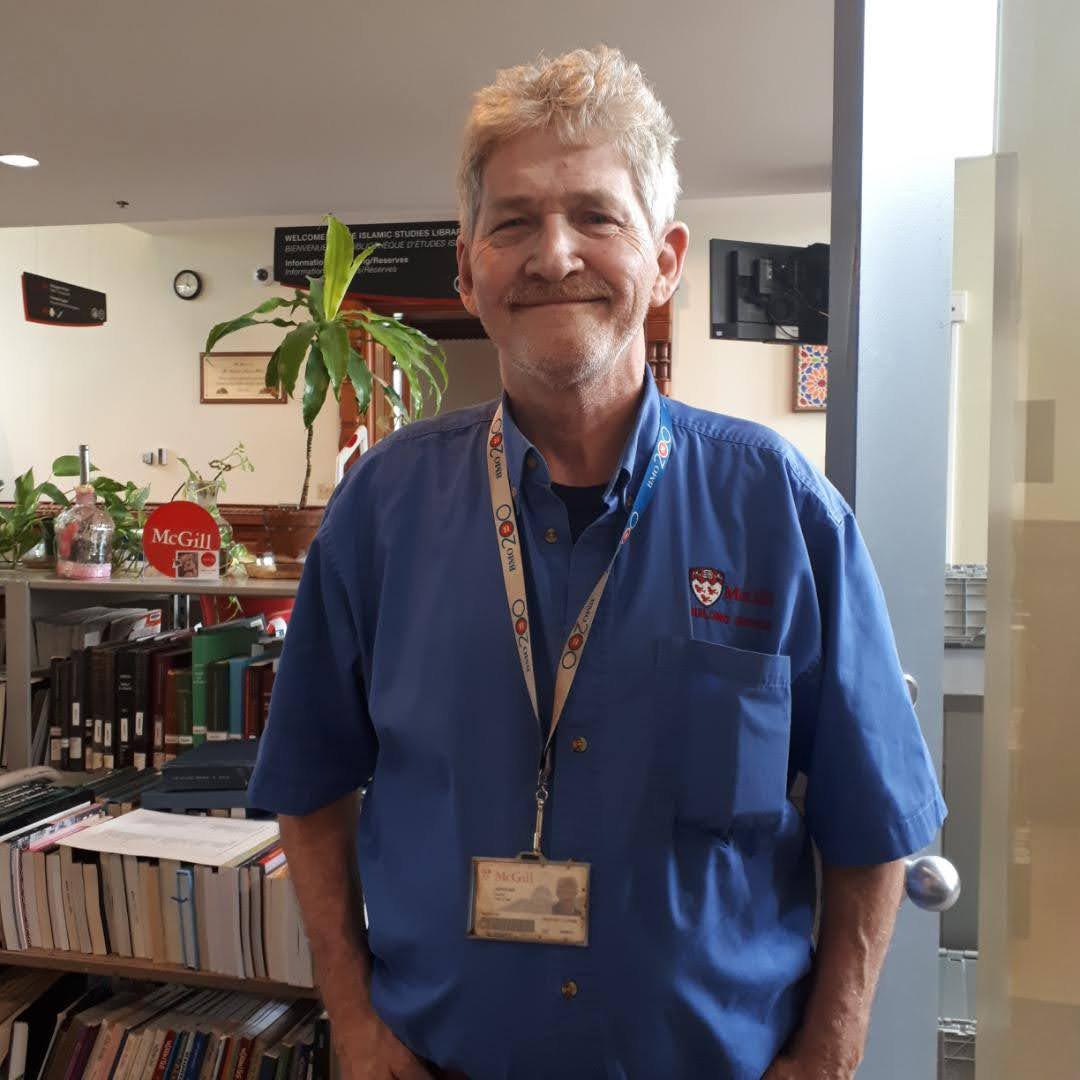
work, where the librarians, students, professors, and staff are all like one big family.”
“I can’t imagine a day [when] he didn’t beam at me and ask me how my day was going,” she told The Tribune
As his time at McGill comes to an end, Vardon reflected on how Morrice Hall has been a “pleasant place to
For Vardon, Morice Hall’s diversity, and the network of care it sustains, make it a great place which “the whole world can take […] as an example.” He feels that “if the world was like that one fucking building, it would be a better place.”
If it weren’t for his arthritis, Vardon says he wouldn’t leave.
Vardon’s love for McGill and its students reminds us all to cherish the memories we have made and are making at McGill. His message to the McGill student body is: “Keep studying, work hard, make your parents proud, and I am going to miss everybody.” On behalf of the McGill student body (especially us Morrice Hall regulars), I can assure you Freddy, we’ll miss you too!
16 STUDENT LIFE | studentlife@thetribune.ca
you, Freddy
Taking dance breaks while studying is a great de-stresser. (Zoe Lee / The Tribune)
Vardon in the Islamic Studies Library in 2019. (Fred Vardon)
Farewell to The Tribune: Messages from our graduating editors

Suzanna Graham, Arts and Entertainment Editor: Three years ago, I felt disconnected from McGill, Montreal, and my fellow students. In the last week of my first year, a friend of a friend suggested I write for a school paper. The second week of second year, I ran from class to make the Zoom pitch meeting on time. Amid a pandemic, The Tribune gave me a lifeline to ground myself in an unfamiliar world. I will forever be grateful for those who have edited my writing, those I’ve written alongside, and those whose writing I’ve had the privilege to edit myself. It’s been a wild ride. From writing about human-weighted blankets to organizing a journalism conference to crafting a two-page feature, I can confidently say I am so lucky to have had this experience. Arts and Entertainment is, for many, a gateway to writing for The Tribune. It’s accessible—everyone feels like they can talk about their favourite movie or concert. Then they realize it’s not so scary to cover a cool science paper they read or a basketball game they’re going to. And some of us? Some of us never left A&E. I discovered that writing can be vulnerable and political, solemn and satirical. It’s bittersweet to move on, but I’ll never forget what I learned here. It’s been a pleasure to write with you all.
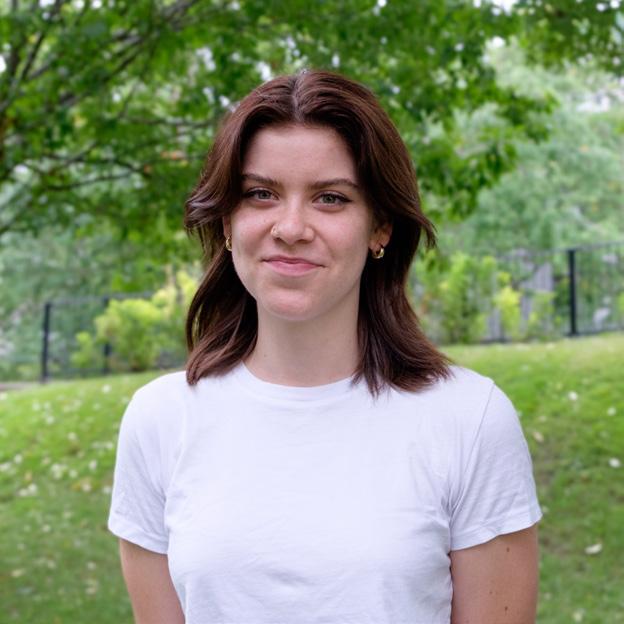
Lily Cason, Managing Editor:
I first started writing for The Tribune’s News section during my first year at McGill. It was during the pandemic, so I’d sit on my bed in my tiny first-year apartment and Zoom into the section meetings where the editors would have creatively figured out ways to continue pitching news stories despite the empty, quiet campus. Although it was hard to feel much of a sense of community that year, writing fostered a new sense of purpose and passion in me, which I needed more than I knew. Ever since then, The Tribune has defined my university experience; it’s been a place of discussion, a hands-on journalism school, and a site of community. The people who work here make it what it is: The dedication, care, and thoughtfulness that writers and editors bring is palpable, and it’s been such a pleasure
to get to work with this team—many of whom I now consider close friends— week after week. Our coverage is often heavy, and the past four years have been invigorating, exhausting, uplifting, disheartening, and wonderful all at once. I have seen The Tribune transform and am so proud of where it has ended up. I can’t wait to see how the paper continues to grow, and I have so much faith in the passionate, fiercely hard-working, and immensely kind people who will be running the show next year.
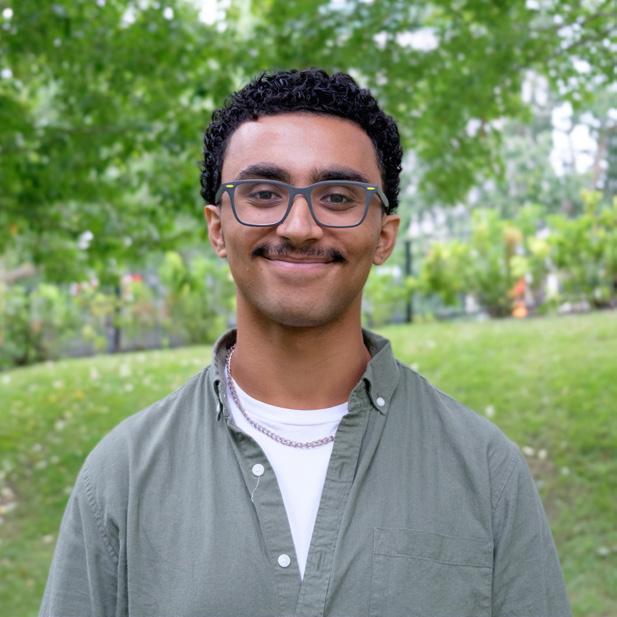
Matthew Molinaro, Editor-inChief: I cannot imagine my university experience without The Tribune. The lessons I learned here easily transcend the lecture hall. The people I met here shared my love for storytelling and embraced my memes, calls for punchier writing, and active disdain of the passive voice and certain words (myriad, plethora). From the lively A&E Zoom calls of 2020-2021 to the reckonings that led to our name change and anti-oppressive mandate, I have cherished this paper’s ability to forge community and conversation. My mentors and colleagues here inspired me, and I can only hope that I have lived up to their faith in me with each edit, piece, and issue. Thank you for inciting the fire under my feet. The collaborative improvisation in shaping a story, the post-production day debriefs, the glimmer in the eyes of someone newly marked by curiosity or an idea—the atmosphere electrifies and sustains our vision. It is an honour and a privilege to lead this dynamic team of writers, editors, and creatives. The struggle for justice and liberation on our campus and in our world continues, and we must be responsible to history and the demands of the present. Speaking truth to power remains the way forward.

Isaiah Albert-Stein, Opinion Editor: For most of my time at McGill, I would read The Tribune and tell myself that maybe one day I would submit an article—but probably not. I saw how much my editor and staff writer friends enjoyed working for the newspaper, but I couldn’t imagine why I would want to write more on top of all the essays
I was already writing for my classes. Then, in my second-to-last semester, I finally took the plunge and worked on an article. I realized how much I had been missing out on opportunities to write about something that felt immediate, personal, and important. When editor applications went out it felt like a nobrainer to apply, and I’m so grateful to the team at The Tribune, especially the Opinion section, because the work I’ve done here this semester has been one of my favourite parts of my university experience. It’s never too late to try something new, especially if that thing is working at the Trib!

Julie Ferreyra, Sports Editor: After months of suggestions from a friend (veteran Tribune editor and enthusiast Anoushka), I finally set foot in a Sports pitch meeting in September 2022 and found myself covering a doubleheader soccer game. I came to the paper desperately needing something to fill my time, and Sports coverage ended up electrifying me. I eventually applied to be an editor and found myself with a never-ending list of projects and ideas for the section I had grown so fond of, as well as an enduring passion for artistic swimming (check our team out; they’re really good!). The Tribune gave me the space to grow and evolve as a writer and person—for that, I will be eternally grateful. As someone who always preferred the social, community aspect of playing sports to the competition, the Sports section was a safe haven. I hope to have helped foster, even on a small scale, a school spirit, or at least to have helped people rally behind our teams and athletes. To the Editors, Staff Writers, Contributors, and silent enjoyers of the Sports section—thank you for your time and passion and for making the Sports section what it is. To my fellow Sports Editors and Tillie, thank you for your patience in dealing with a recurrently broken keyboard and making this year incredible.
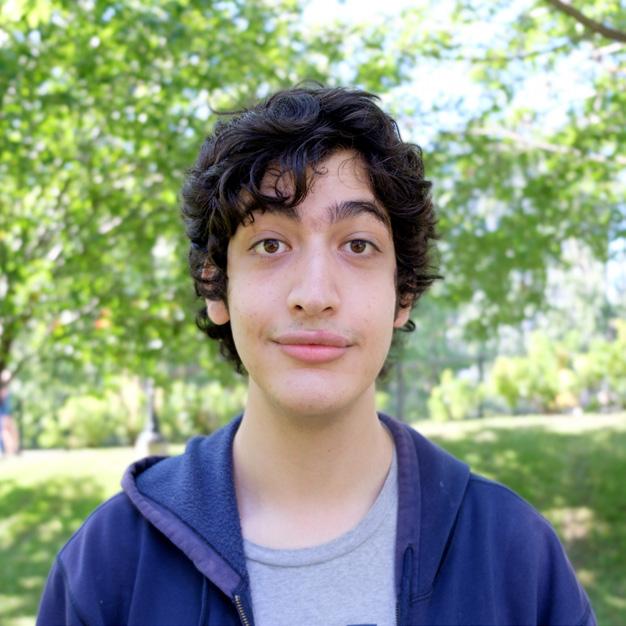
Ahad just arrived in Montreal, tired from rescuing my family from the wreckage of a destroyed sinking battleship, and knew I wanted a fresh change of pace. And that’s exactly what The Tribune gave me, a place where I could drop my bag and spend hours talking to some of the loveliest people I’ve ever met, each with their own unique set of passions and dreams, as deep as my love for nonsinking battleships.
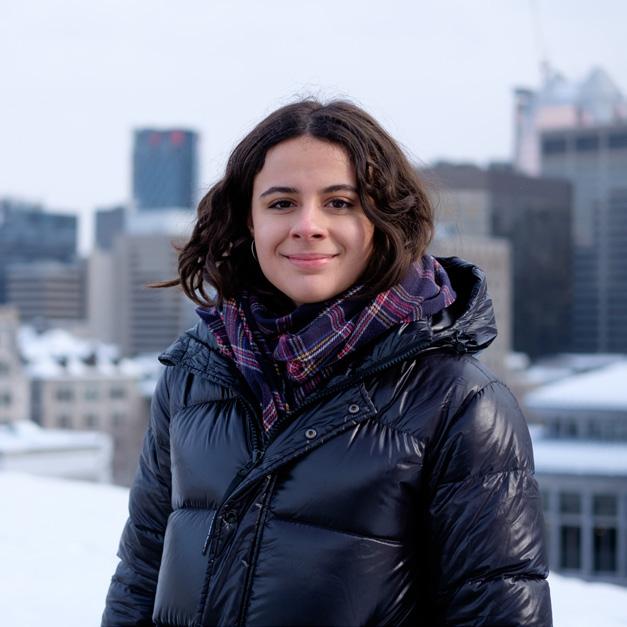

Sara Escallon, Sports Editor: It had never occurred to me to join The Tribune before December. I had never written an article, rarely picked up a copy, and never truly thought about engaging in student journalism. I was so focused on school and my varsity sport that I could not envision possibilities beyond it on campus. When my world was turned upside down, I was devastated and utterly lost. Eventually, I realized that I needed to do something: I needed to tell people what had happened, why it had happened, and advocate for the well-being of student-athletes everywhere. It took me over a year to find the words and the mental capacity to write my story. I ended up here totally by accident, thanks to Tillie’s support and persistence, and the Editorial Board who took a chance on me. Joining the paper proved to be the best possible way to round out my final semester at McGill. I am deeply grateful for the community I have found here, including my fellow sports editor Julie and the whole team at The Tribune who put out powerful, passionate work week after week. Thank you for the platform you have given me. Thank you for the community. I love soccer and I love writing about soccer. Each year at McGill has been totally different than the last one for me. I am so grateful that The Tribune has capped off my undergraduate experience.

Zoe Dubin, Design Editor: I am forever indebted to Arian Kamel for reaching out and asking if I had the availability to join The Tribune . I had just crashed quite a large boat into what seemed to be a family-oriented cruise ship and was simply looking for a place to hide out for a bit. I’m very grateful for my time here, however short. 17
I
up
rian Kamel, Managing Editor:
honestly don’t know how I ended
joining The Tribune. I
STUDENT LIFE | studentlife@thetribune.ca

The surrealism of ‘Problemista’ elevates its poignancy
Comedian and writer Julio Torres makes his jaw-dropping directorial debut
Annabella Lawlor Contributor
Scored with futuristically unsettling synth melodies and interjecting choral staccatos, narrator and famed arthouse actress Isabella Rosellini relays the complicated and costly process of acquiring a sponsored visa in the United States in Problemista. What begins visually as a cramped, two-room equation expands into a maze-like structure of trapdoors, fluorescent lights, obscured keys, and stairs of beige file cabinets. Protagonist Alejandro (Julio Torres), or “Ale” for short, steers aimlessly through this dreamlike sequence in a desperate search, traversing through the maze of the American immigration system. He finds himself in a miserable catch-22: The system demands he pay immense fees to be allowed to work, yet he must work to acquire the necessary funds to settle these payments. As Rosellini simply states, “The maze is impossible to navigate.”
Screenwriter and director Julio Torres’s surrealist comedy Problemista, released worldwide in cinemas on March 14, poignantly explores the narratives of the contemporary American Dream through a humorous lens brimming with fantastical elements—both understated and absurd. The film was partially inspired by Torres’s experiences as an artist immigrating from El Salvador; Alejandro travels to the States in hopes of becoming a world-famous toy designer for Hasbro. In his application to the company, Alejandro monotonously details a few of his ideas, including a Barbie whose fingers are covertly crossed behind her back, creating intrigue and drama in the dreamhouse, and a snake that bungees
out from its can with a sign that reads, “I’m sorry, I was trapped in this can and scaring you was the only way out.”
The absurd specificity of this dialogue, though delivered lifelessly via Alejandro’s webcam video, is only a minuscule drop of this film’s unabashed hilarity.
As he waits for Hasbro’s response, Alejandro begins working in the archives of FreezeCorp, a lab caring for cryogenically frozen corpses. But Ale finds himself in a limbo between visa sponsors after being fired for presumed medical malpractice; onscreen, the grains of his metaphorical 30-day hourglass begin seeping out in the vast backrooms that stack thousands of these looming timers in their dank shelves. Eccentric art critic Elizabeth, played
by the magnificently commanding Tilda Swinton, dominates the screen in every scene she’s in. She looms over everyone with her crimped and dyed red hair, avant-garde clothing choices that seemingly caricature every New York art enthusiast, and intimidating attitude and verbal assaults on everyone she encounters. Elizabeth enlists Alejandro’s help in curating a show dedicated to the legacy of her artist husband, now cryogenically frozen but once known for his beautifully tragic and emotionally transcendent egg paintings. In return, she promises to be his sponsor after the show’s success.
Alejandro soon learns how to navigate the intricacies of the contemporary art world, while
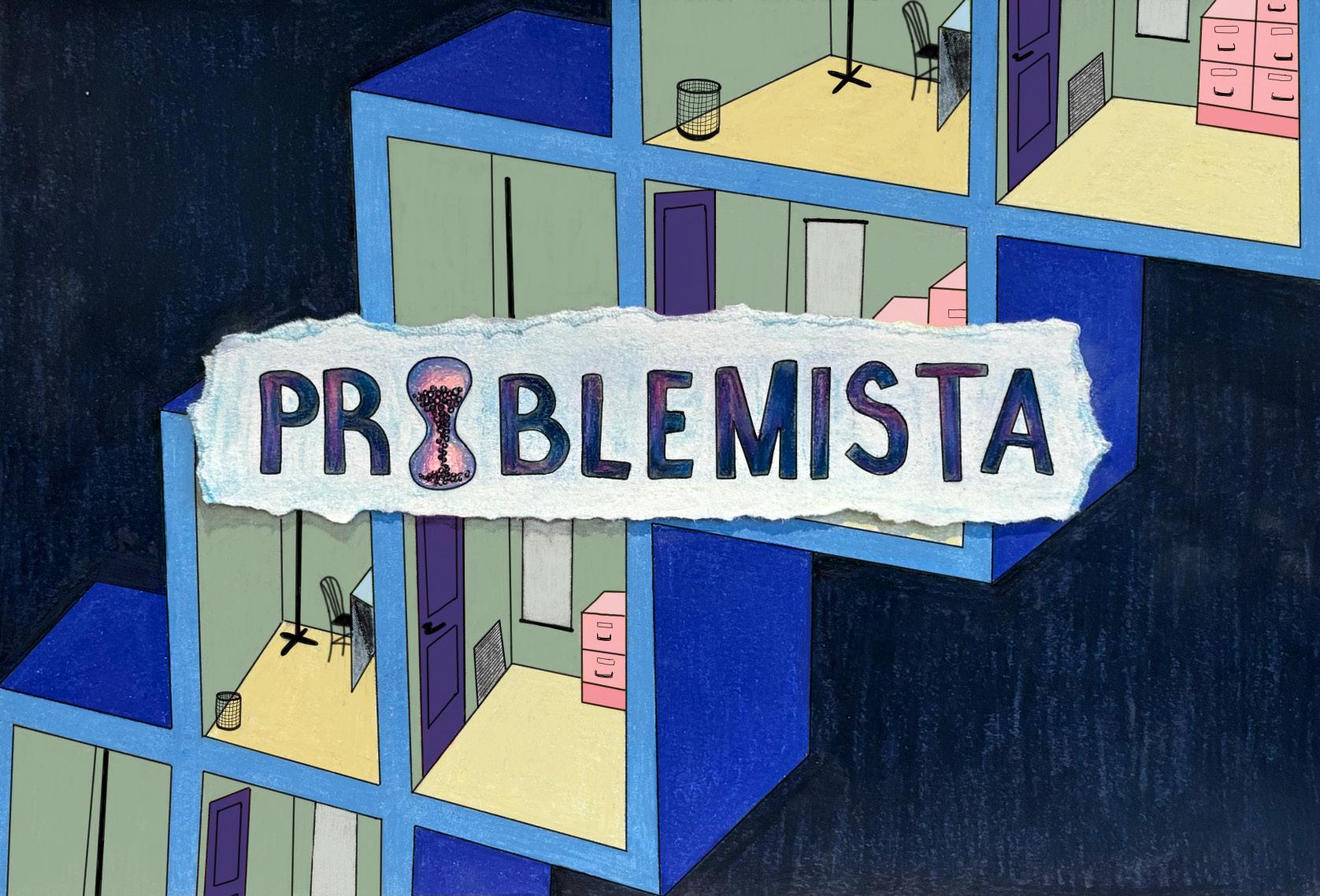
These unnecessary editions reveal lapses in artists’ creativity
Lily Dodson Contributor
Typically as an artistic or stylistic choice, deluxe editions of albums are released a few months or so following the initial album drop, expanding upon the original record with the inclusion of more songs. With (relatively) recent examples such as Olivia Rodrigo’s GUTS (spilled) (2024) and Tyler, the Creator’s CALL ME IF YOU GET LOST: The Estate Sale (2023), deluxe albums are becoming an increasingly common fixture in the music industry. But are deluxe albums truly necessary?
Personally, I find deluxe albums pretty pointless. While I understand the financial or artistic appeal of releasing new music in this format, the songs often render the album less cohesive as a whole. Almost like an afterthought, the songs from deluxe editions of albums usually stick out and don’t feel like a necessary part of the original. Even though the songs can sometimes be great, it is hard to tack new songs onto the end of an album, especially after most albums have a distinct final song that signifies the end of an album. Attempting to add more songs after a strong closer makes the album feel more confusing, especially as most deluxe editions generally don’t close in the same manner.
Furthermore, the songs on deluxe editions are often of a lesser quality
than those on the standard tracklist. For instance, on Taylor Swift’s 2010 album
Speak Now, the songs released on the extended edition were, in my opinion, notably weaker, particularly in terms of the slightly boring songwriting. Lately, Swift has been rerecording her old music and adding “from the vault” tracks to her albums as an excuse to further extend the already deluxe edition. Bloated with these extra songs, her 2021 rerecording of Red (Taylor’s Version) clocked in at a
whopping two hours and ten minutes. As someone who mostly enjoys listening to music by playing through a full album, when would I ever have time to listen to this in one sitting?
Most of the time, deluxe editions feel like an unimaginative cash grab rather than the result of an artist’s genuine creative impulse. The attention surrounding a deluxe album release can be almost as big as that of the initial album rollout, helping to raise
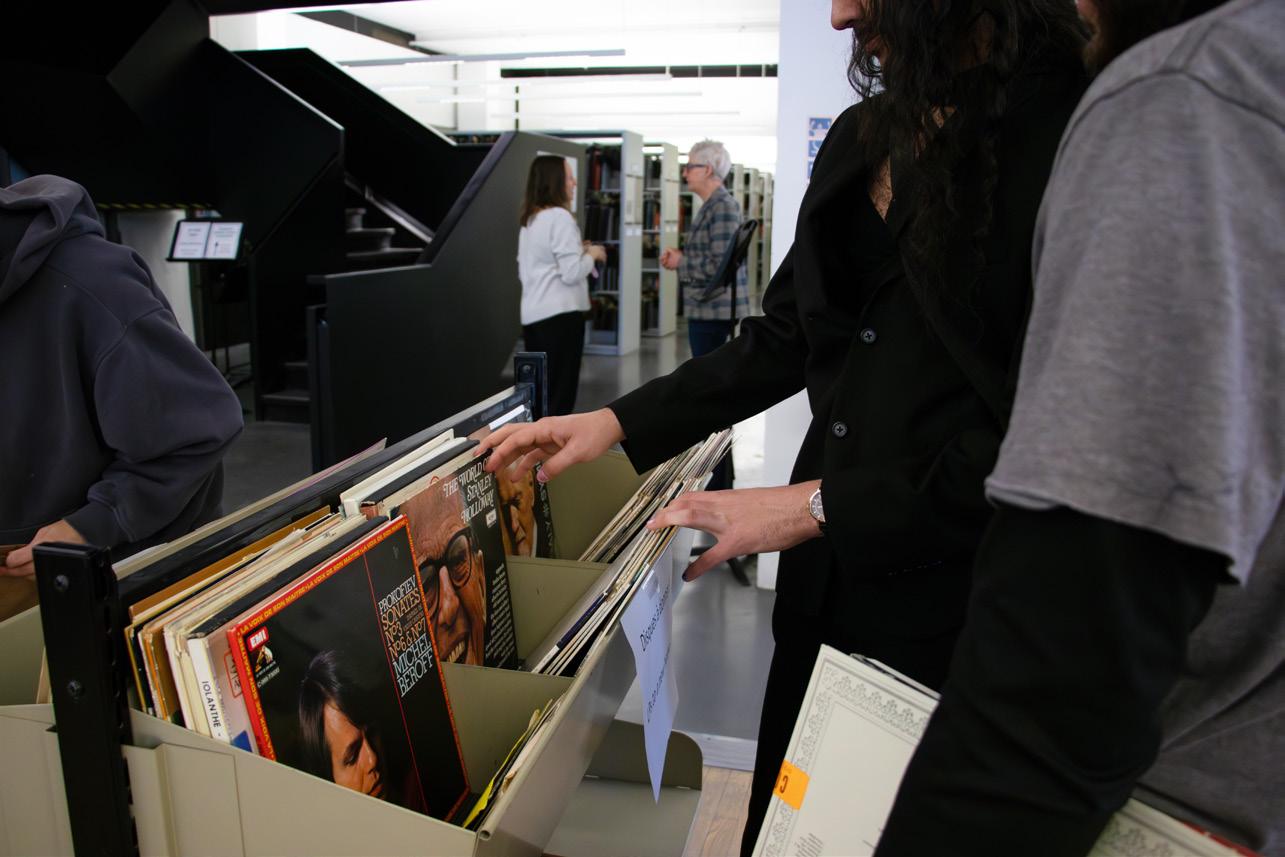
simultaneously taming Elizabeth’s temper as he organizes her late husband’s show. With Elizabeth’s reluctance to sponsor him and the departure of her paid intern Bingham (James Scully), who leaves after receiving a Guggenheim grant for “being cute in the arts,” Alejandro turns to Craigslist for cash. The menacing Craigslist (Larry Owens) is a personified tentacled Ursula-inspired creature who offers jobs inspired by Torres’s actual experiences: Handing out hair salon promotions on the street or being a “cleaner” for a man who wishes to watch him.
Problemista achieves all that it sets out to, presenting pointed critiques of both the modern art world and the American immigration system. It parodies a world in which legacy is commodified and art becomes a product. While Torres’s narrative serves to highlight the injustices of the visa process, the film also embraces and celebrates the strengthening solidarity of the immigrant experience. Alejandro is only one of the many who risk their lives each year for opportunity in a new country, and this portrayal of the contemporary American Dream calls into question the term’s legitimacy in the first place. He presents his story through this absurd humour, because the world is absurd: It’s unforgiving, unjust, and arranged such that power is permanently reserved for those who already have it.
It’s incredibly rare that a film can be so simultaneously hilarious and moving. Problemista’s surrealist elements transcend comedic tradition, becoming a memorable film from its authenticity and uniqueness.
Problemista is now playing in select theatres.
the artist’s profile and bolster their streaming numbers. With streaming platforms like Spotify keeping the original album addition available, deluxe editions also expand the album’s outreach, thus further increasing its potential for streams. If a deluxe edition is just going to include one extra song, like Swift’s folklore (deluxe edition) (2020), why not just include it on the original album in the first place? Similarly, if a deluxe edition is going to be upwards of five songs, why not just release an additional EP or a full-length album instead? It feels like a lapse in creativity; instead of taking the time to craft a new album to satisfy their fans, an artist is just repurposing songs that purposefully weren’t included on the album in the first place.
Deluxe albums certainly aren’t going anywhere, but that doesn’t mean we have to enjoy them. In an ideal world, artists would take a cue from Lana Del Rey; the (former) indie artist extended her 2012 album Born to Die by releasing Paradise as both a deluxe edition of the former album and as a standalone EP. If an artist feels like an album is unfinished when it’s released, they shouldn’t release the original album in that state. But if there is a dire need to release songs that didn’t make it onto a record, an artist should at least try to separate it and release a new EP or album with those songs.
The film’s distribution under A24 was delayed until 2024 due to the SAG-AFTRA strike. (Sylvie Bourque / The Tribune)
SZA’s semi-recent CTRL (Deluxe) is one of many unessential releases. (James Knechtel / The Tribune) 18 TUESDAY, APRIL 9 2024
Cash grab or uninspired choice? Deluxe editions of albums are both
Melodies of a lifetime with Claude Dubois
A night of memories and emotions with Québec’s musical icon
Serena Sautter-Léger Contributor
As I pulled into the parking lot of Théâtre Hector-Charland on March 29, eager to see a Québecois musical legend perform, I noticed a bus transporting residents from a nearby retirement home had beat us there. This moment hinted at the crowd that I would find sitting inside, waiting for the imminent arrival of Claude Dubois, a ’70s and ’80s star of our province.
After we spent a few minutes of fidgeting in our seats, the 76-year-old singer arrived onstage, walked straight to the microphone as the crowd applauded, and sang as though it was as natural to him as breathing. He started with his composition “Le Labrador,” followed by a string of his sometimes groovy,
sometimes melancholic classics, such as “Femme de rêve,” “Le mangeur d’étoiles,” and “Besoin pour vivre.” After a few songs, he took a few gulps from a bottle that he promised was filled with water, eliciting laughter throughout the whole audience.
Dubois isn’t a stranger to substances, having a complicated past with alcohol and heroin. While some of his less-thanresponsible decisions may have sent him to jail a couple of times, nothing could stop the old man from singing his heart away—not even the cancer diagnosis that brought his career to a halt in 2016.
Halfway through the show, an elderly woman shouted, “We love you, Claude!” To which he answered, “I love myself, too.” Sometime later, the same woman exclaimed, “We’ve been following you for over 40 years!”

He responded that he was impressed, as even he had a hard time following himself all those decades ago.
A talented band accompanied Dubois—a drummer, a bassist, a pianist, and a guitarist—with whom he shared the spotlight on more than a few occasions. They harmoniously combined their individual strengths like pieces of a musical puzzle to complement Dubois’ work with jaw-dropping musical solos.
It was impossible not to feel nostalgic when he sang “J’ai souvenir encore,” a song in which he revisits his childhood growing up in the Old Port of Montreal. The artist expressed a common homesickness felt when thinking about those memories time has painted yellow— childhood feels like the happiest time of our lives, even when, looking back, it wasn’t always perfect. Notably, he mentioned the rats living in his house, and the sex workers waiting on the neighbouring streets. But the sweet, innocent melody that accompanied these lyrics made it clear that no amount of rodents could change the warmth with which he reflects on these golden memories.
Claude Dubois received three standing ovations, one of them for his performance of “Si Dieu existe,” which he dedicated to all our lost loved ones, especially those who left us too early. The song describes a dying person’s soul slowly floating up toward the sky, seeing the world from above. In a room full of retirees, it not only stirred emotions but also highlighted a sense of solidarity among the audience. It was not difficult to spot more than a few wet pairs of eyes. When the crowd stood up from their seats to applaud the singer, there was a collective recognition of our interconnectedness, especially in moments of loss, and it was clear he had touched our hearts.
Many have an insatiable love for art that society often encourages us to set aside to pursue more professional, corporate careers. “Blues du businessman” perfectly describes
HOT TAKE
“Artist 4 Ceasefire” pins are not enough
Charlotte Hayes Staff Writer
At nearly every major awards show this year, a number of (American) celebrities, like Billie Eilish and Quinta Brunson, have attended red carpets donning a small red pin on their lapel. The circular metal brooch showing an extended hand and a black heart is a symbol of the organization “Artists 4 Ceasefire,” a group of musicians, filmmakers, and actors urging the U.S. government to call for a ceasefire in Gaza. While raising awareness is a good start, it is only one small part of showing solidarity and cannot be where activism ends. Very few artists seen wearing these pins have spoken about a ceasefire on red carpets and even fewer in acceptance speeches—it is crucial that those with a platform actually, tangibly use it to advocate for Palestinian liberation.
this sentiment. It is an anthem of sorts for those who aspired to be artists, singers, or actors—for those who always feel like they could have been more, and who spend a few hours between nine to five daydreaming about who and where they would rather be. Though the feeling might be melancholic, the crowd found solace in the idea that Claude Dubois did become an artist—and a wonderful one at that.
‘Été’ paints a portrait of a livable, walkable, and lovely Montreal Creativity is at the forefront of this Montreal-based video game
Dante Ventulieri Student Life Editor
For many, thinking about video games elicits images of shooters, strategy titles, stressful levels, and intense gameplay. Été isn’t that. Developed by Montreal-based indie studio Impossible, the new PC game is all about relaxing. The player assumes the role of a budding painter who has just moved to Montreal for the summer and explores the city, paints watercolours, sells artwork, and decorates their apartment. The Tribune sat down with Lazlo Bonin, Founder and Creative Director at Impossible and a developer of Été, to discuss how the game came about.
Été’s origins
Bonin’s inspiration for Été didn’t come from other video games; instead, he drew on some unlikely sources.
“One thing that has been inspiring me a lot is the I Spy books,” Bonin explained. “I just love the whimsy of Walter Wick, the photographer [.…] There’s such a joy in finding all the elements in those pages. And I think that’s kind of what was the inspiration for this [game].”
By the time development started in early 2020, Bonin and the initial team had already invested years of effort in creating a proof-of-concept and securing funding.
“The first prototype for this game was in 2016, maybe even 2015. [….] There was a long period between 2016 and 2020,” Bonin
explained. “Trying to get funding basically and pitching to different investors or public funds to get someone interested in this weird, poetic wandering game where you’re a painter [in] Montreal. [They] didn’t bite so much for a little while.”
A calm atmosphere
Été has been designed from the ground up to create a relaxing and inviting atmosphere. Unlike other games, there’s no way to fail, and the progression system lacks any rigidity. The main goal is to explore the city and create paintings you’re proud of.
“We don’t want people feeling like they have to work towards a specific goal,” Bonin elaborated. “What you’re really getting out of making all your paintings [and] selling your artworks at the auction is money. And money buys you decorations at various little shops you find toward the city. And you can use those to decorate your apartment and your studio space. So that’s like the ultimate goal—which is also just like a very openended and creative goal.”
It’s a simple life. Far from finals and schoolwork, Été is an escape to a world where people can make a comfortable living, interact with their community, and make art.
“Video games are often power fantasies that will give you guns or superpowers or whatever else. And obviously, that’s not what we’re doing. But we are still creating some kind of fantasy,” Bonin explained. “What is the ideal life of a wandering painter in Montreal? Cheap rent, walkable cities,
people who pay you for your art, [and] you’re right next door to the coolest cafe in town and the cutest market.”
Showcasing Montreal
Having grown up in the Mile End, Bonin felt that Montreal would be the ideal backdrop for the game.
“I just love the city,” Bonin said. “I absolutely love the architecture, and […] I love the scale of Montreal as a city. I love the density; the duplexes and triplexes create these small pockets of space and community.”
Bonin mentioned that if he had not become a game developer, he would have considered pursuing urban planning. With Été, he’s able to blend both passions. Inspired
by planning principles from books like A Pattern Language, Bonin’s focus is always on creating a human-scale, lively, and cozy version of Montreal.
“The scale of the city and the locations we make have very little room for cars. It’s very bike- and pedestrian-oriented,” he said. “If we would make streets to scale, we would realize that our playtesters, and ourselves, would just be kind of anxious while standing in the middle of the street, even though there were no cars coming.”
Été is slated to come out in 2024 on Steam, though no specific release date has been confirmed. The game will be available in both English and French. Currently, the gamecanbeaddedtousers’wishlists.
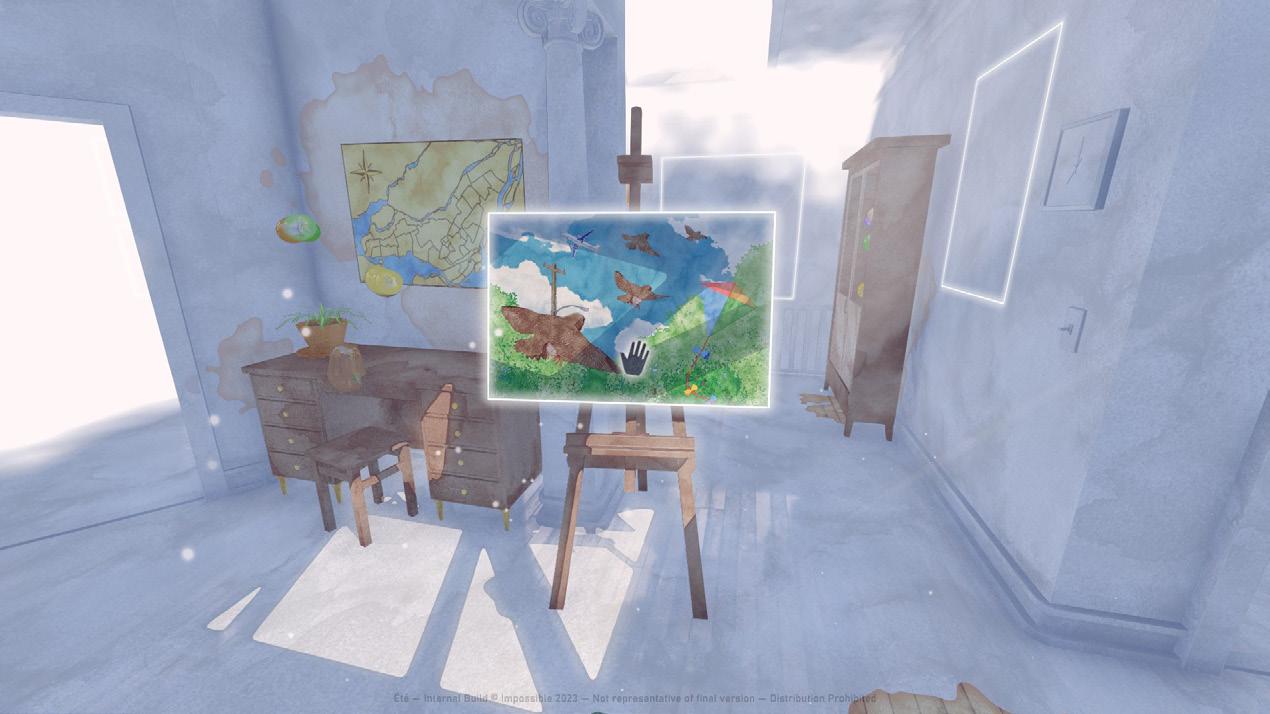 Claude Dubois thanked his fans repeatedly while receiving his third standing ovation of the night. (Alexa Vasilakos / The Tribune)
Claude Dubois thanked his fans repeatedly while receiving his third standing ovation of the night. (Alexa Vasilakos / The Tribune)
19 arts@thetribune.ca | ARTS & ENTERTAINMENT TUESDAY, APRIL 9 2024
Painting is as simple as arranging stamps you collect from exploring the city (Impossible)

Digitizing African studies: The technical and ethical considerations McGill doctoral student creates online databases to teach and research African history
Zoe Dubin Design Editor
Computers have become essential to how we work and live. Digital humanities, a new and expanding field, takes on the challenge of rethinking the traditionally paper-based operation of storing, processing, and accessing research materials.
Kartikay Chadha, a McGill doctoral student in Information Studies and CEO of Walk With Web Inc., sat down with The Tribune to discuss the challenges and successes with helping researchers of African history digitize their databases.
“Information Studies [...] is a longstanding [field],” Chadha said. “There is so much work out there to know how to create these databases, how to organize them, how to manage them. All of this work is already done in library sciences [but] is missing in digital humanities.”
As research projects receive funding and start to grow, researchers frequently make new websites to contain their collected information.
“Independent researchers [...] go to different archival sources. They will go to courthouses, they will go to all these repositories, and they will do their own research. Eventually, they build these smaller data sets that are proliferated all over the place,” Chadha said.
The technological support needed to keep these websites going is often either underestimated or unattainable once a research grant runs out.
“Technology is evolving. There are versions that get upgraded, plugins that get upgraded. You need somebody to take care of those things down the line,” Chadha said. “That’s where Walk With Web is situated. We collaborate with many researchers and universities. I’m trying to centralize [datasets] together so that we can provide a collaborative platform for people to work.”
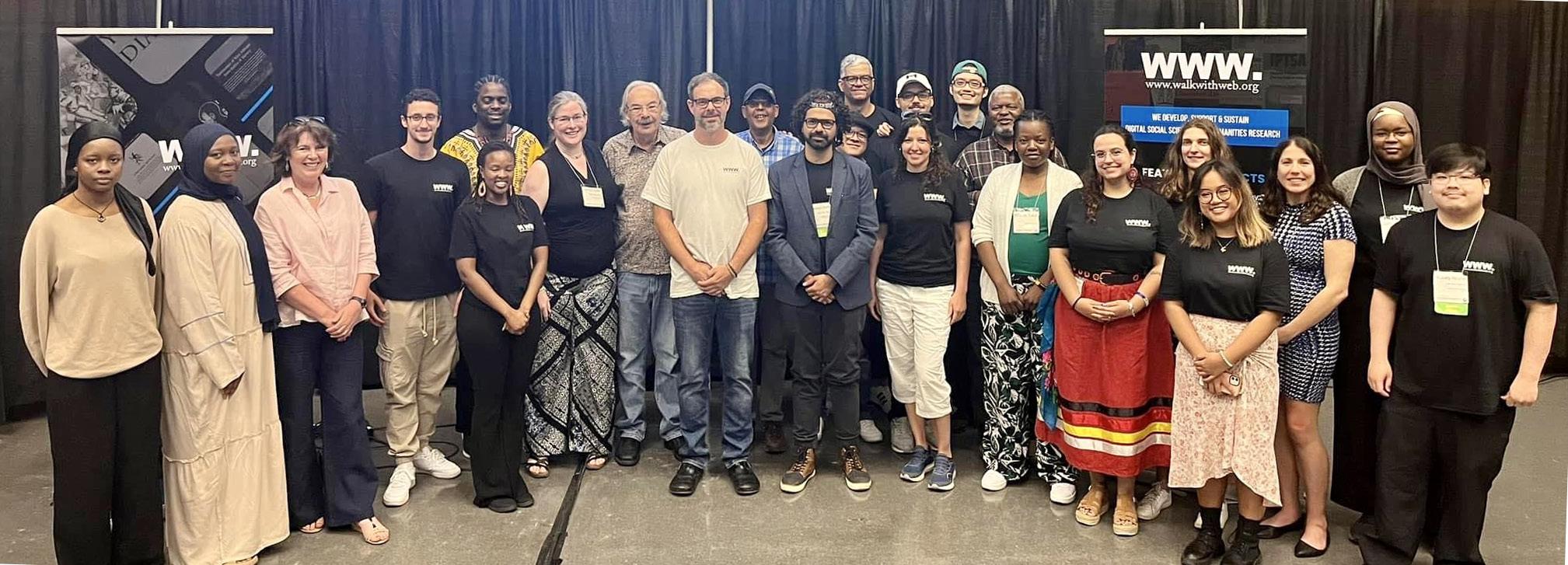
Chadha’s research focuses on the African diaspora and slavery, helping to launch and sustain websites that provide researchers with access to crucial documents and imagery. Throughout this work, he considers both the technicalities of running a credible website and the ethical implications of digitizing African history.
A major concern in both traditional and digital African history is the tendency to sideline Black voices.
“Why is African Studies so white? I recall there was a conference that was cancelled a few years ago because there were no Black individuals on any panels for an African studies conference. This is not a new discussion in the discourse—It’s time to walk the talk,” Chadha said. “I’m interested in understanding how historians, specifically of African origins, interact with multimedia websites, because it’s a lot of their data that is being put online. How are we presenting
it? Are we ethically sound about it? Are we morally sound about it?”
By keeping African historical data easily accessible online, the data’s relevance as part of the historical canon is honoured. Recently, Chadha helped to relaunch Slavery Images—a platform that allows researchers and professors to access historical imagery of slavery.
Slavery Images, originally created in the 1990s, contained around 2,000 images. It was also in desperate need of revitalization.
Chadha’s team worked on creating an intuitive interface and a usable website. Simultaneously, other researchers were responsible for verifying the historical validity of the catalogued images.
“Henry Lovejoy is the principal investigator of the project. He is the director of Digital Slavery Research Lab at CU Boulder. He conducted the historical research on this project including data collection, making sure
How AI unlocks the secrets of proteins
that the content is historically accurate, that [we’re] using the correct terminologies while organizing and tagging documents for the development of the website,” Chadha said. “That is the blend of digital humanities—he has the humanity side; we have the digital side.”
The relaunch of the Slavery Images platform was highly successful.
“It’s fantastic. We have recorded over 20,000 unique users since the relaunch in January 2024,” Chadha said.
Walk With Web and its 22 projects’ success comes from the team Chadha has put together, along with his strategic approach to programming.
“[Programmers] have to think about error handling, right? What will my user click and break? The thought process goes towards the negative side. The approach needs to be that this [project] is possible, so let’s figure it out.”
Unraveling folding prediction and streamlining medicine development
Maxwell Goldstone Contributor
Proteins are the workhorses of our cells, responsible for a vast array of functions that keep us alive and healthy. From building muscle to fighting disease, their intricate shapes determine their specific roles. Although the task has so far eluded scientists, they hope to ultimately incorporate lab-designed proteins into personalized medicine that anyone can take for any condition.
For decades, scientists have been grappling with a fundamental mystery: How to accurately predict a protein’s folding pattern based solely on the string of amino acids that comprise it. This challenge, known as the protein folding problem, has long been a hurdle in developing new drugs and therapies, as experimentally determining shape costs labs considerable time, money, and effort.
However, a revolution in proteinfolding prediction is underway, driven by the power of artificial intelligence (AI). Pioneering tools are making significant strides in predicting protein structures with unprecedented accuracy. These tools include AlphaFold, developed by Google DeepMind, and RoseTTAfold, developed by the Institute for Protein Design (IPD) at the University of Washington. They use a combination of deep learning algorithms and advanced statistical methods to analyze vast databases of known protein structures, allowing for the identification of patterns and relationships that can then be applied to predict new proteins. This streamlines the initial process of developing protein-based medicines.
For a more in-depth look at the software, Sebastian Kenny, a postdoc at
the IPD, wrote about integrating different predictive software they have developed in an email to The Tribune “We start with RFDiffusion generating protein backbones around a hotspot of our choosing,” Kenny wrote. “Following that, ProteinMPNN assigns amino acid sequences to the generated backbone. This sequence is inferred from other structures of proteins that have been studied in the past. Finally, we validate and score our designs using RoseTTAfold or AlphaFold to see the likelihood of our designed protein forming the complex we expect.”
Kenny explained that using this technique dramatically shortens the process of protein design and integration, as it now requires only a few weeks to a month to model and validate.
Paul Harrison, associate professor in the Department of Biology at McGill, highlighted the time-saving potential of programs like AlphaFold by explaining how predictive algorithms can accelerate experimentation.
“Firstly, predictive algorithms can cut costs, and secondly they help in generating experimental hypotheses, for example, structures predicted by the AlphaFold algorithm are often as good as an experimentally determined structure derived from X-ray crystallography,” Harrison wrote in an email to The Tribune
Lucas Elliot, U1 Science, is excited to see how these techniques could be integrated into the university’s curriculum.
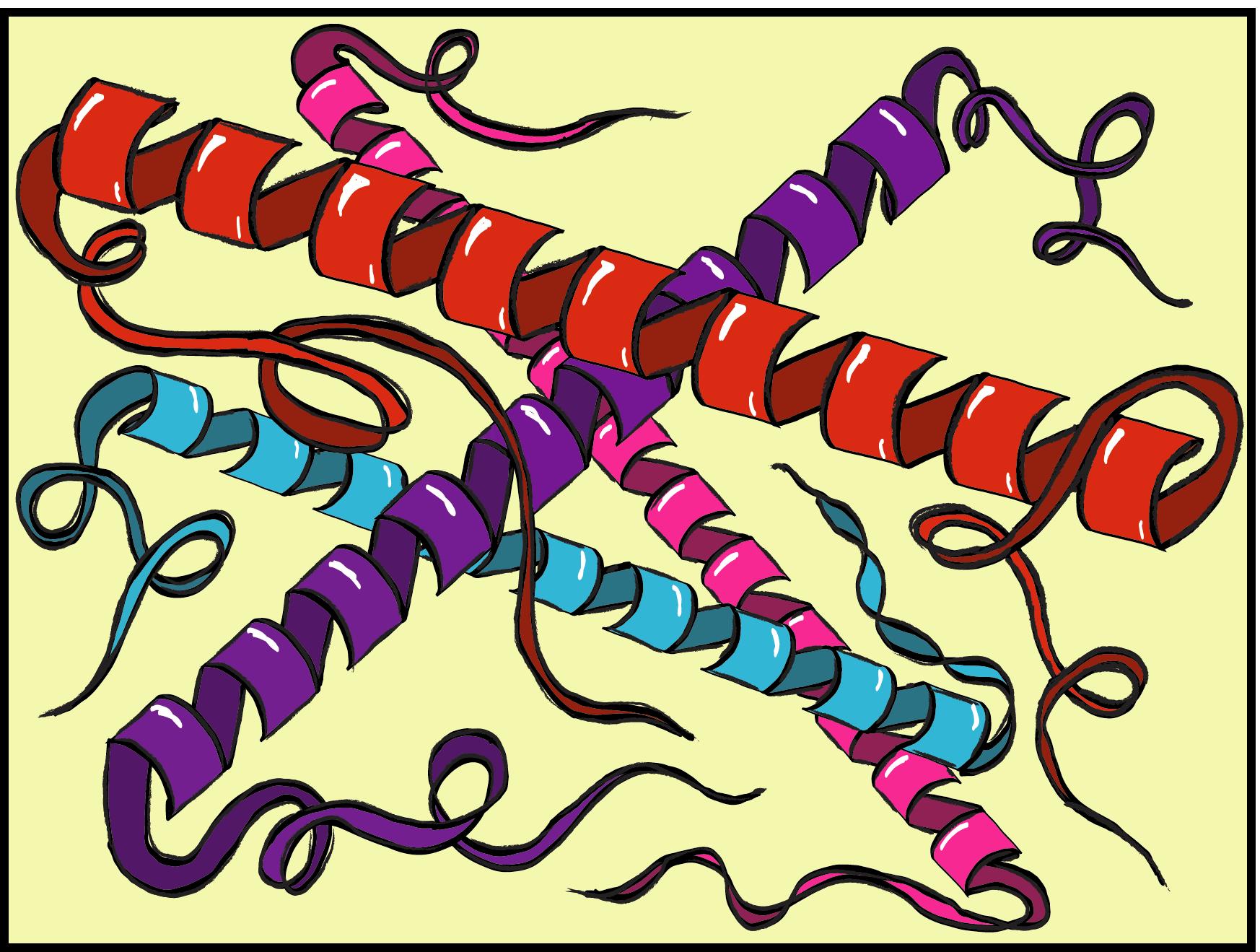
Achievement and intrinsic motivation are known to be important determinants of academic success, as they energize and direct behaviour. (Mia Helfrich / The Tribune)
“Computer science is something we’re now learning younger and younger, but it’s not standard yet. But I think it will become standard,” Elliot said in an interview with The Tribune. “That makes the way for understanding AI. And I would love to see work with AI tools in my curriculum, as soon as possible. I do think it’ll be a little slow. Especially with very established universities, everyone loves these new tools, and I’m sure all the professors are using them. But then incorporating them in a teaching class is slower.”
It would be beneficial for McGill to strengthen its teaching by integrating open-source tools like AlphaFold and RoseTTAfold into the curriculum. Learning how to use these innovative techniques could significantly accelerate the development of life-saving medicines as graduates contribute to the world as new scientists and engineers.
“It’s a catalyzer. It allows you to explore combinations, and [the] mixing of things you already know much faster, based on current knowledge, but it doesn’t replace human supervision,” Waldispuhl said in an interview with The Tribune
Waldispuhl emphasized that these algorithms need to have their findings validated by scientists. AI in biology could shave off years of work with faster designs for potential medicines, but we need critical minds to make the best use of it.
Jerome Waldispuhl, associate professor in McGill’s School of Computer Science, acknowledged the usefulness of tools like AlphaFold but highlighted the need for analytical thinking.
Walk With Web Inc. also runs the platform Liberated Africans, which records the lives of over 700,000 people under involuntary indentured servitude contracts between 1800 and 1920. (Kartikay Chadha / Walk With Web)
20 TUESDAY, APRIL 9 2024
Bored in Leacock 132? Professor explores student motivation at McGill
McGill study points toward practical strategies for educators
Jenna Durante Contributor
Navigating the dynamics and behaviours of a 200-person lecture hall presents an inherent challenge: How can profs effectively promote student motivation and academic success? As we approach the end of the semester, it is important to explore strategies that can increase student motivation and performance in higher education.
Jessica Flake, assistant professor in McGill’s Department of Psychology, explored student success and motivation in university settings. In her recent paper,
“Using Motivation Assessment as a Teaching Tool for Large Undergraduate Courses: Reflections From the Teaching Team,” Flake looked at the challenges of teaching large-format introductory psychological statistics courses, using motivational assessments as a teaching tool, and finding different ways to implement motivational assessments.
“It’s a very non-traditional kind of paper to write as a research professor because it’s more about teaching and what we’ve learned about it,” Flake said in an interview with The Tribune. “It’s not a very formal kind of scientific study. It’s about our experience and sharing what works or doesn’t work for teaching.”

Achievement and intrinsic motivation are known to be important determinants of academic success, as they energize and direct behaviour. (Mason Bramadat / The Tribune)
Teaching PSYC
204: Introduction to Psychological Statistics for her first time at McGill, Flake quickly learned about the course’s reputation. As a mandatory class for students majoring in psychology, this course is often at the bottom of the department’s popularity list. With the course’s dense and challenging content, students frequently find it dry and uninspiring, resulting in low motivation
levels across the board. Flake examined the various factors shaping achievement motivation to gain deeper insights into the students’ motivation within the Expectancy-Value-Cost (EVC) model—a psychological framework designed to model motivational factors.
Rooted in individuals’ subjective evaluations, the EVC framework treats motivation as a function of expectations for success, subjective task value, and perceived costs associated with engagement.
Prior research has consistently linked expectancy for success and value with academic achievement, highlighting its critical role in promoting performance and engagement. By using the EVC scale, Flake assessed the students’ expectancy for the course, their perceived value of the content, and the perceived costs associated with participation.
To learn more about student motivation levels, Flake created a questionnaire to track students’ behaviour throughout the semester. She administered the questionnaire at several points during the semester, which included questions such as: Did students expect to succeed in the course? Did they think that the material was interesting and valuable? Did they have psychological costs, burdens, or barriers they were worried about?
Using this data, Flake reflected on teaching and evaluation methods used in class settings. She also reflected on the specific techniques that can boost students’
motivation and reduce their anxiety, such as using a means of evaluation that allows students to accumulate grades over the course of the term rather than having their grades determined by only midterm and final exams. This could be achieved by having students complete small weekly assignments, adding to their participation grade, or taking part in group projects.
Flake emphasized the importance of reassuring students and creating a positive environment during stressful times in the semester, such as during the exam season. She also recommended other professors to check in with students, ask them if coursework is too overwhelming, and consider granting extensions or pushing back due dates to aid those in need.
“I think there’s this aspect of just being a person and seeing students where they are at. I don’t do the whole motivational survey anymore. But I do say, how are you feeling at this point in this semester? And just showing that you’re a person and understand that it’s stressful to be a student,” Flake explained. “I think those little things help, even if they’re just classroom announcements. They help students feel recognized.”
In navigating the challenges of promoting student motivation and academic success, Flake’s research offers valuable insights and practical strategies for educators teaching in high-volume classes. Her emphasis on providing empathy and support to students illustrates the potential for simple gestures to enhance student wellbeing and positive academic outcomes.
A potential powerhouse for curing mitochondrial diseases
The Neuro’s annual George Karpati Lecture explores neuromuscular disorders and mitochondrial medicine
Yejin Lee Staff Writer
On March 26, 2024, the Annual George Karpati Lecture invited Dr. Rita Horvath from Cambridge University to speak on mitochondrial medicine—to share her expertise on everything from mechanisms to treatments. Horvath has spent over 25 years studying genomics and biochemistry for the diagnosis and treatment of rare neurological disorders.
The lecture series focuses on recent developments in neuromuscular disease research and treatment, honouring George Karpati, who was a wellrespected clinical neurologist at The McGill Neuro. Horvath commenced her presentation by reminiscing about her first encounter with George Karpati in Montreal, which happens to have been almost exactly 30 years ago.
The mitochondria, often referred to as the “powerhouse of the cell,” perform a large array of crucial cellular functions such as calcium ion storage for cell signaling activities and regulation of cell growth and death. Mitochondrial medicine is an umbrella term for mitochondrial diseases, including mitochondrial disorders and syndromes, along with their biochemical treatments.
The deletions or low amounts of mitochondrial DNA (mtDNA) have a variety of causes, such as simply a low production of mtDNA, or other rare genes. The deletion mechanisms of mtDNA in mitochondrial diseases have been studied, including mitochondrial
nucleotide salvage pathways, to better understand the causes. Dr. Stefanie Bulst, a Medical Centre of Genetics researcher, discovered alongside her research group that the supplementation of deoxyguanosine phosphate and deoxyadenosine phosphate (dAMP/ dGMP)—DNA’s building blocks— leads to partial rescue of mtDNA copy numbers, to make up for its low supply, a potential treatment to mitochondrial depletion syndromes.
Alpers’ syndrome is an example of a genetic neurodevelopmental disorder that Hovarth works with, caused by the depletion of mtDNA and which may appear without any genetic history. More specifically, the syndrome occurs as a result of mutations in the polymerase gamma gene (POLG), which encodes mitochondrial DNA polymerase. It typically manifests between the ages two and four, or between ages 17 and 24, causing symptoms like seizures and stunted growth.
Surprisingly, “not only the deletions or lacking of genes but also an excess of mitochondrial DNA can lead to issues, or develop symptoms,” Horvath mentioned in her lecture.
Mitochondrial neurogastrointestinal encephalomyopathy, MNGIE in short, illustrates an example of diseases that arise from an excessive number of genes. As the name of the disease suggests, it is characterized by symptoms spanning the degeneration of muscles, affecting a variety of physiological systems, from the patient’s digestive tract to eye movements. The disease is progressively degenerative and has an average life expectancy of 37.6 years.
Treatment approaches for mitochondrial diseases as well as the diseases themselves vary widely. Current research findings suggest that bacterial endonucleases, which are bacterial enzymes, can be used for mtDNA gene editing, meaning that they can cleave mutant mtDNAs.
“They can robustly eliminate mutant mtDNA allowing the wild type [the normal form of the gene] to repopulate the cell. Using cytosine base editors, you can also edit mtDNA to correct mutations,” Horvath said.
Another effective treatment is through using cytosine base editors, which has enabled correcting the mtDNA mutations. Moreover, nextgeneration sequencing has been found to aid the diagnosis of mitochondrial diseases, with wholegenome sequencing offering insights into individual mitochondrial diseases.
An experiment conducted at Horvath’s lab, led by research associate Denisa Hathazi, grows brain organoids—a labgrown 3D tissue resembling human brain—with patient stem cells to study disease characteristics.
“Though limited to 200 days of growth [and] thus not fully representing deep brain neurons, these organoids are still a
valuable model for investigating various neuronal cell types together,” Horvath explained.
Because of the rarity of mitochondrial diseases, there are challenges in research such as recruiting participants for clinical trials for treatment developments. However, some significant progress has been made in the past decade. Specialized clinics such as the LifeArc Centre in the UK are emerging to continue research on diagnosis and identification of disease progress for mitochondrial diseases. Horvath’s aspiration to establish a clinical database for rare neurodegenerative diseases emphasizes the unwavering efforts to improve patient outcomes.

Primary mitochondrial diseases affect around 8,700 adults in the UK, and almost 5,000 adults in Canada. (Julia Buckle / The Tribune

21 scitech@thetribune.ca | SCIENCE & TECHNOLOGY TUESDAY, APRIL 9 2024
)

Positive symbols are aplenty at Olympic Park
The Olympic Park is home to much more than the Olympic Stadium
Marco Zeppilli Staff Writer
ast October, Premier François Legault expressed his desire to transform Montreal’s Olympic Stadium from a purported negative symbol stemming from its legacy of corruption and cost overruns into a positive symbol of Montreal’s future.
While some already consider the stadium to be a positive symbol given its undeniable contribution to sporting and entertainment history, it has its detractors, myself among them. The announcement of a new roof and technical ring costing $870 million was a head-scratcher, for numerous reasons previously outlined. But the decision has been made. The contract for the roof replacement is already signed and the work will proceed whether I like it or not. And with that, I turn my attention to everything else going on in the area––one that is full of valuable and highly useful community assets.

While many consider the Olympic Park and the Olympic Stadium to be one and the same, the park and its partner organizations occupy a vast trapezoid in
the Mercier–HochelagaMaisonneuve borough that includes more than just the stadium. The provincial entity known as Société de développement et de mise en valeur du Parc Olympique governs the stadium itself, the attached inclined tower, the sporting facilities at the base of the tower, and the outdoor esplanade. Also on site is the Biodôme, the Planétarium, a movie theatre that will soon be reduced in size making way for a hotel, a community centre, an arena, and Stade Saputo, home of CF Montréal.
Much to the chagrin of its architect Roger Taillibert, the Velodrome built for the 1976 Olympic Games was transformed into the Biodôme in the 1990s. A trip to the Biodôme is undoubtedly time well spent, but Taillibert long insisted that we should kick the penguins to the curb and instead use the space for sporting events as intended. Taillibert passed away in 2019, but I wonder if he ever had the opportunity to tell the penguins how he truly felt about them.
At the base of the world’s tallest inclined tower, you will find a world-class sporting facility, equipped with gymnasiums, Olympic pools, and diving boards. Elite athletes use the space for their training, but the space is also open to locals. If one of the long-term objectives of hosting the Olympics was to promote health and physical activity with the facility, we can say mission accomplished. The tower itself now holds 14 floors of office space and was vacant until 2018 when the Mouvement Desjardins and human resources software company SIGMA-RH rented the available space, making the tower fully occupied. The funicular is currently closed for renovations, but when it reopens the roof of the tower will be accessible to visitors for the first time in its history. On a visit to Olympic Park last November, I had the opportunity to visit one of the tower’s upper levels. The view of the city and surrounding areas from that vantage point is nothing short of breathtaking. I hope to be one of the first in line to take the trip up the funicular once it reopens. Unfortunately, a fire broke
Julie’s hot takes

out at the base of the tower on March 21. It will remain closed for four to six months. In a testament to the value of these facilities, their temporary closure has proven challenging in the buildup to the 2024 Paris Games as Canada’s Olympic and Paralympic swimming trials were scheduled to take place at the sports complex in May.
In all this, it would be impossible for me to write an article about the Olympic Park without mentioning the centrepiece itself—the stadium. That ellipticalshaped bowl, reminiscent of a
space vessel from the world of science-fiction. The optimist in me still struggles to accept that there was no better option than to inject $870 million of public funds into the stadium to replace its roof. However, that decision has been made, and I am choosing to view the situation positively. I sincerely hope the roof replacement contributes to the rebirth of the stadium, giving Montrealers a sporting and entertainment facility worthy of our wonderful city—a community asset that, like the infrastructure surrounding it––is full of positive symbols.
Sports Editor Julie Ferreyra takes you through her hot takes of the 2023-24 sports year
Julie Ferreyra
Sports Editor
The PWHL Trophy should have a different name Fans of the Professional Women’s Hockey League (PWHL) may have followed the unveiling of the new prize that will crown the team that wins the playoff, the best of the best of that year: The Walter Cup. Designed by renowned jeweler Tiffany & Co, the trophy is named after Mark and Kimbra Walter, the owners of the Mark Walter Group, who played an important financial role in backing the launch of the PWHL. The suggestion to name the trophy after Walter came from sports icon and PWHL advisory board member Billie Jean King. However, many were disappointed by the cup’s name. Despite the good intentions, the Walter Cup enshrines the corporate, financial side of the PWHL instead of honouring previous women’s ice hockey trailblazers who are the real reason for the league’s creation. While there is no doubt that the Mark Walter Group played a massive role in the creation of the PWHL, the decision not to honour women’s hockey players was a missed opportunity.
This naming also breaks with trophy tradition in professional women’s
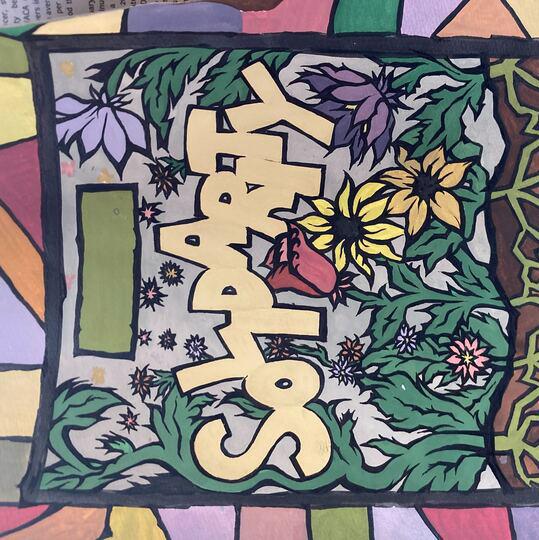
hockey. In the Premier Hockey Federation (PHF), the predecessor of the PWHL, teams competed to win the Isobel Cup, named after Lady Isobel Gathorne-Hardy—one of the first women known to play ice hockey and daughter of Lord Stanley––the namesake of the National Hockey Leagues’ Stanley Cup. Teams competing in the Canadian Women’s Hockey League (CWHL) fought to win the Clarkson Cup, named after its commissioner, Governor General Adrienne Clarkson. Many optimists hope that names paying homage to women’s hockey trailblazers will be given to conference trophies or other awards, but regardless, the Walter Cup is not what we hoped PWHL teams would compete for. While it is understandable to celebrate and pay respect to a family that supported the PWHL’s creation, naming the trophy after them put an abrupt end to custom appreciated by fans and players alike. The Walter family could be honoured with another trophy or prize to celebrate their good deeds or generosity more akin to the Walter Group’s role in the PWHL.
There’s an abundance of outstanding women’s hockey players throughout the sport’s history: Figures such as Manon
Rhéaume, Angela James, or even Canada’s beloved MariePhilip Poulin easily could have inspired the name of the championship cup. After all, there is no reason a women’s hockey team should have to compete for a trophy named after a man.
Rooting for loser teams
Coming to a new country, and delving into a new sports environment, people are often faced with a unique opportunity—choosing who to root for. While some might take the easy way out by bandwagoning onto the dominant teams at that time or choosing to support their local team; others may take the road less travelled and root for whichever team seems the most pathetic.
After moving to Montreal from France, I had the unique opportunity to consider the pros and cons of rooting for each NHL team. As a lazy person, I would not want to go the extra mile and root for teams geographically inconvenient—bye-bye Anaheim, Colorado, and Seattle. We could have been a good pairing, but I will not stay up that late to follow games every week. With the Western Conference teams out of the running, I established my preference for Eastern teams—hello Metropolitan
and Atlantic divisions. Could I choose to root for the Montreal Canadiens, for not only being in the city I live in, but also the only francophone team in the league––unless you count Ottawa? Yes, but I wanted to feel special and didn’t feel particularly drawn to the team. So, my devotion and support went to the nextbest team, with the perfect ratio of competitiveness and charm—the Toronto Maple Leafs. The story of the firstround curse striking yet again the hopeful and passionate team during the 2021-22 season convinced me that this team deserved my devotion. The deep folklore surrounding
the franchise sealed the deal for me. Supporting a seemingly hexed and forever unsuccessful team brings a new sense of camaraderie between supporters––having to constantly endure losses, and experiencing the highs and lows of having incredibly talented players yet overwhelmingly disappointing results.
I encourage others to follow in my footsteps and find community in supporting not the most successful, or local team, but the one that promises to pull on your heartstrings as you tell your similarly deluded friends that this is our year.
 Montreal’s Olympic Park is more than just the Big O. (Maïa Salhofer / The Tribune)
The Toronto Maple Leafs were knocked out in the first round of playoffs for seven years straight. (Tillie Burlock)
Montreal’s Olympic Park is more than just the Big O. (Maïa Salhofer / The Tribune)
The Toronto Maple Leafs were knocked out in the first round of playoffs for seven years straight. (Tillie Burlock)
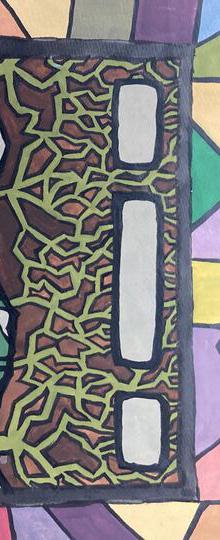
Breaking up with university sports: How I learned to love soccer again Rediscovering the joy of sport by playing pick-up
Sara Escallon Sotomayor Sports Editor
From the moment my parents first put me into house league soccer at five, I was hooked. Growing up, I never thought about how my relationship with the sport would change. Girls my age seemed to follow a set path from elite youth development teams to university soccer. This path became more than a set of destinations to checkmark: It was an identity.
I committed to McGill for soccer in the fall of my grade 12 year. My time playing for McGill was anxiety-inducing. I loved practicing and the thrill of game days but did not know how to stand up for myself against coaches who did not treat me with respect. In spite of this, my love for soccer only grew. I became a superfan of Liverpool Football Club; I was as obsessed with watching and reading about soccer as playing. I became even more determined to succeed, to recreate the happiness I used to feel every time my foot touched the ball.
On my way to practice, I noticed men on the soccer fields near my house playing pick-up. I envied the fun they were having.
Here I was, playing for a varsity team, yet the team brought me no joy. Although there were never any women there, I mulled over the possibility of approaching and asking to join in a game.
After a particularly negative practice, I impulsively decided to go and play, promising myself I would play for an hour at most.
I ended up playing for three.
On the lighter days of the gruelling McGill pre-season, I began to play additional hours of pick-up soccer. The environment was a stark contrast to that of the McGill women’s soccer team. Most players were young men from North or West Africa, and the language of choice on the field was French. My years of French immersion came in handy, and my French improved rapidly. I was almost always the only woman and one of the few who had grown up in Canada. When I was abruptly cut from McGill soccer at the start of my third year, I was devastated. Yet, this moment was the catalyst for rediscovering joy in my sport. Instead of crying to the coaches, I played pick-up soccer for two hours.
For the rest of the semester, I would go to the field and play from whenever my last class of
the day ended until 10 p.m. I felt totally lost, but I found solace in playing. Although my body ached from playing so intensely every day, I couldn’t resist the pull of the field.
Certainly, some days were difficult. When my team would lose and have to wait on the sidelines for long stretches of time, I would question myself and what I was doing. Being the only woman on the field also wasn’t easy. Those who hadn’t seen me play would avoid being on my team and blame me if we lost. At first, I felt like an outsider, but I slowly gained everyone’s respect and affection, as they did mine.
Eventually, I found a futsal team, Underdogs FC, that introduced me to the world of Quebec women’s soccer outside of the university sphere. Last weekend, we even won the Coupe de Québec, a trophy which eluded us by one goal in last year’s finals. But this year, we won against our arch-rivals, and I scored the winning goal in the last minute.
While my journey has not been conventional, I would not change it for the world. It was painful to see the scores of Martlet soccer’s matches. Yet if
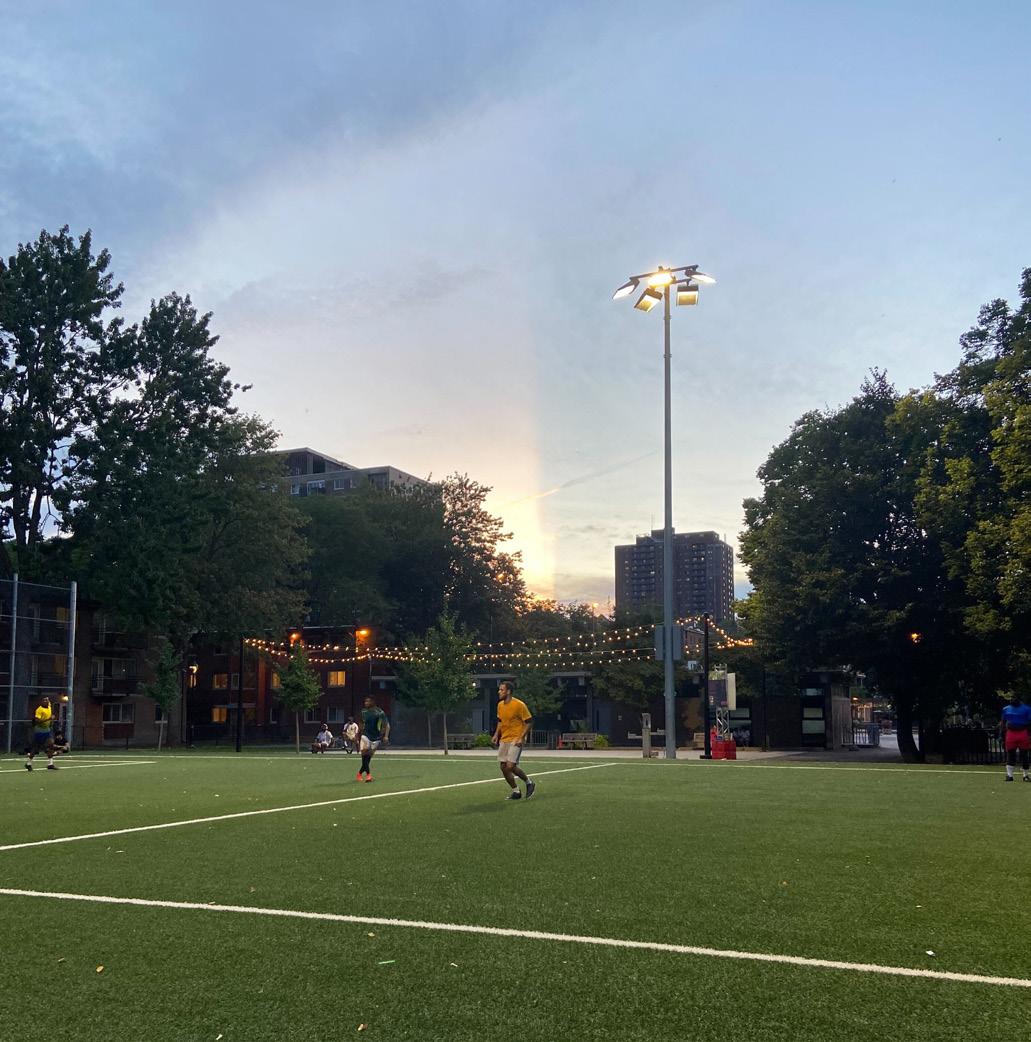
I was still on that team, I would never have found this wonderful world, full of people very different from those at McGill.
I would have never played futsal, or for Simcoe County Rovers, and I certainly would not have had the opportunity to be a Sports Editor at The Tribune. Now, I know how to set boundaries with coaches and recognize harmful behaviour. I
Know Your Team: McGill’s Women’s Lacrosse

know that mistreatment doesn’t have anything to do with how good you are: It is a failure of the individuals in power. I know that no journey is linear: There will always, always be avenues to play your sport if you just look hard enough. At the heart of all sports, there must be joy and respect. More than anything, I am grateful for the spaces where I have rediscovered my joy.
The team discussed lacrosse’s Indigenous roots and excitement for their move to the OUA
Lialah Mavani and Ava Bicknell Contributors
Given its Indigenous origins and role as the national sport of Canada, lacrosse holds great significance for many, including players on McGill’s women’s lacrosse team. Cocaptain Rachel Anderson and teammates Gemma Hauser and Olivia Maracle-Hill sat down with The Tribune to discuss their connection to the sport and the importance of its Indigenous history for them as Indigenous players.
The 2023-24 season was filled with great improvements for the team, both on and off the field. They raised over $4,000 in their McGill24 campaign, received their first sponsorship deal with EY consulting firm, and earned a spot playing in the Ontario University Association (OUA) lacrosse league next season.
The Martlets’ entrance into the OUA was largely due to their on-field performance throughout the 2023-24 season. The team played against universities in Ontario and the United States. One of their competitors, the Queen’s University Gaels, recognized the Martlets’ improvements during a match-up against McGill this season, indicating that they, as a club team, could
compete with the best.
“We actually got praise from the Queen’s lacrosse coach, which was huge, because they won the OUA last season and defeated all the other teams in Ontario,” Anderson told //The Tribune//. “When we heard this praise, I think [it] was a turning point for us.
The team attributes much of their success to head coach Duncan Lovell. Lovell grew up playing lacrosse, eventually playing forat St. Francis Xavier University. Given his experience with the men’s game––despite its different style of play and greater physicality––Lovell provides the team with a competitive edge while adapting to the women’s game. Outside Lovell’s expertise, Anderson and Hauser explain that much of the team’s improvement stems from their sheer dedication and willingness to show up and compete at every practice.
“[Compared to last season,] it just feels like everyone relies on each other more, and it’s less like you’re dragging yourself to practice because it’s an obligation,” Hauser said.
Lacrosse is more than just a game for the Martlets team. The sport holds a deeper historical and personal significance for many players.
“My own experience
as an Indigenous lacrosse player has been marked by the profound connection I feel to my heritage through this sport,” Anderson said. “Lacrosse is not just a game, but a means to express our identity and honour our ancestors.” Anderson reflects on the knowledge of her community, emphasizing the ingrained significance that lacrosse holds for many Indigenous peoples. The three teammates explain that the origin and significance of lacrosse lay deep within Indigenous history. MaracleHill describes lacrosse as divinely gifted by the Creator to the Haudenosaunee, which is ancestrally played and used for healing purposes. At the game’s best, players use the sport to honour the land and their ancestors’ legacy: Acting as a way of establishing Indigenous sovereignty and upholding Indigenous ways of life and being.
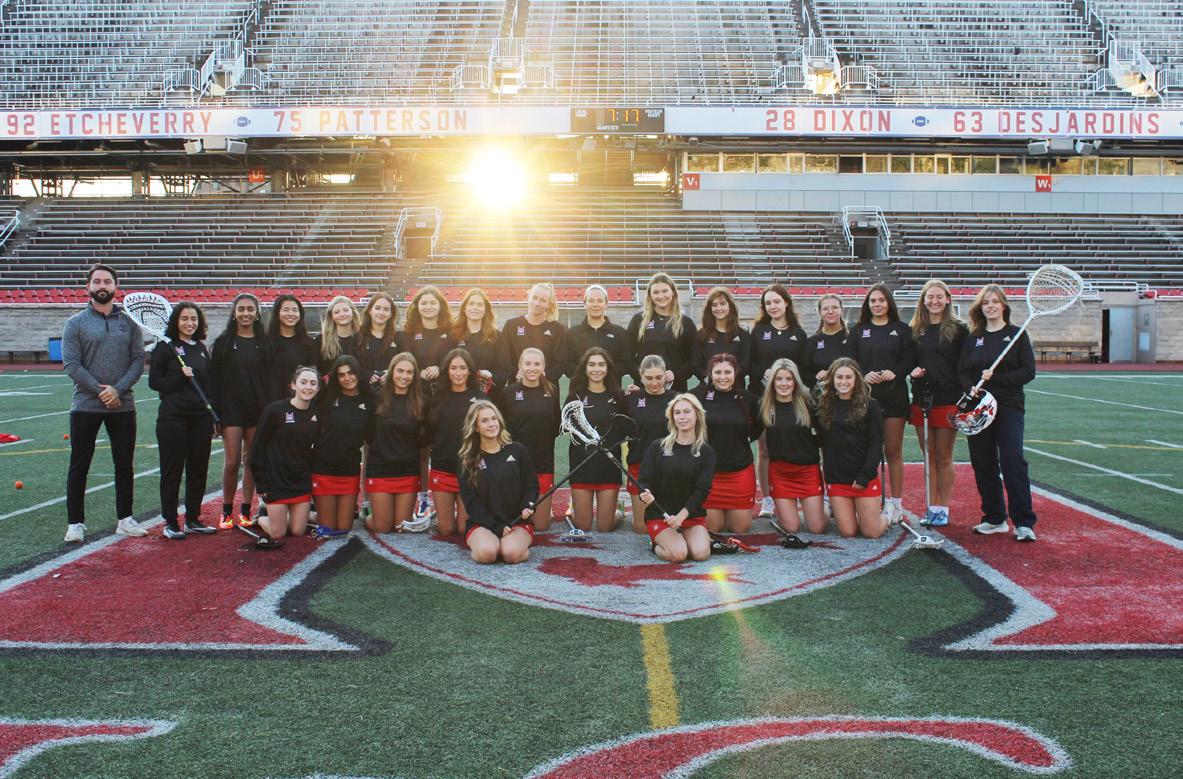
men’s and women’s lacrosse plays in moving toward this goal.
“The men’s [Redbirds] lacrosse team having their heritage night and having dancers and speakers and a lot of Indigenous involvement in this one game, working towards truth and reconciliation [was amazing, but] I don’t even think it would be feasible for us to do something like that,” MaracleHill said.
The players expanded on not only an issue of gender inequity within lacrosse, but also a disconnect between McGill’s stated mission of truth and reconciliation, and the role that recognizing both
With the lack of funding and support from both the McGill administration and McGill Athletics, the Martlets feel as though the university is doing them a disservice. The team emphasizes that McGill
has the opportunity to work on their stated mission to “establish McGill University as a global leader in postsecondary institutions for reconciliation with Indigenous peoples” through the game of lacrosse, particularly with the sport being played on unceded territory of the Kanien’kehá:ka (Mohawk) territory. The team hopes that if the university were to bring greater awareness to the Martlets lacrosse team––through advertising and funding––they would not only be able to thrive in the OUA but demonstrate the significance of their sport because as Anderson says “[lacrosse] is more than just a game to us.”
 During the summer, I play for Simcoe County Rovers, where I had the opportunity to work with wonderful players and amazing coaches who have helped heal my perspective on soccer. (Sara Escallon)
During the summer, I play for Simcoe County Rovers, where I had the opportunity to work with wonderful players and amazing coaches who have helped heal my perspective on soccer. (Sara Escallon)
23
The co-captain alongside Rachel Anderson is Amelia Waters. (Patricia Brisebois)
NEWS
Students demand McGill divest from companies supporting Israel’s siege on Gaza in national week of action
Fabienne de Cartier

STUDENT LIFE
Podcasting with BSN’s Soul Talks
Claudia Efemini
OPINION
The real value of a McGill degree
Kiran Gill
EDITORIAL
Divestment from fossil fuels was the first step; divestment from genocide is the next The Tribune Editorial Board
HIGHLIGHTS
Design by Mika Drygas, Zoé Dubin, Drea Garcia Avila
ARTS & ENTERTAINMENT
In Montreal, public art is its own form of architecture
Charlotte Hayes
SCIENCE & TECHNOLOGY
Trib Explains: A guide for viewing the total solar eclipse
Jenna Durante
FEATURES
Canada’s housing crisis has been decades in the making Dante Ventulieri
SPORTS
Thegrowthunstoppable of sports betting must be met with education
Marco Zeppilli



















































































 Claude Dubois thanked his fans repeatedly while receiving his third standing ovation of the night. (Alexa Vasilakos / The Tribune)
Claude Dubois thanked his fans repeatedly while receiving his third standing ovation of the night. (Alexa Vasilakos / The Tribune)









 Montreal’s Olympic Park is more than just the Big O. (Maïa Salhofer / The Tribune)
The Toronto Maple Leafs were knocked out in the first round of playoffs for seven years straight. (Tillie Burlock)
Montreal’s Olympic Park is more than just the Big O. (Maïa Salhofer / The Tribune)
The Toronto Maple Leafs were knocked out in the first round of playoffs for seven years straight. (Tillie Burlock)




 During the summer, I play for Simcoe County Rovers, where I had the opportunity to work with wonderful players and amazing coaches who have helped heal my perspective on soccer. (Sara Escallon)
During the summer, I play for Simcoe County Rovers, where I had the opportunity to work with wonderful players and amazing coaches who have helped heal my perspective on soccer. (Sara Escallon)
